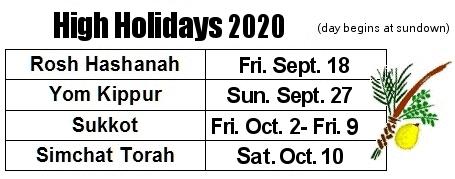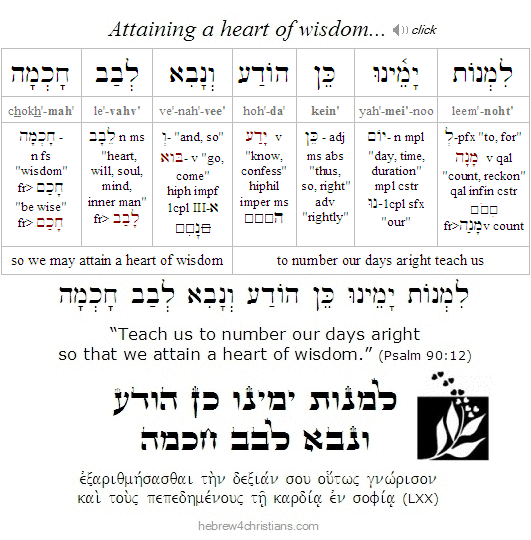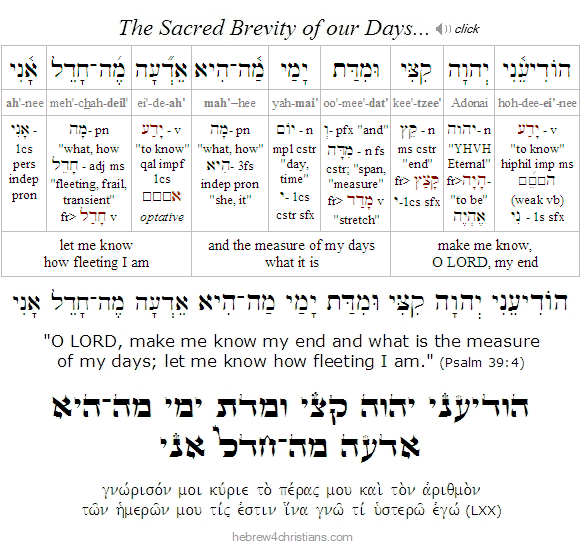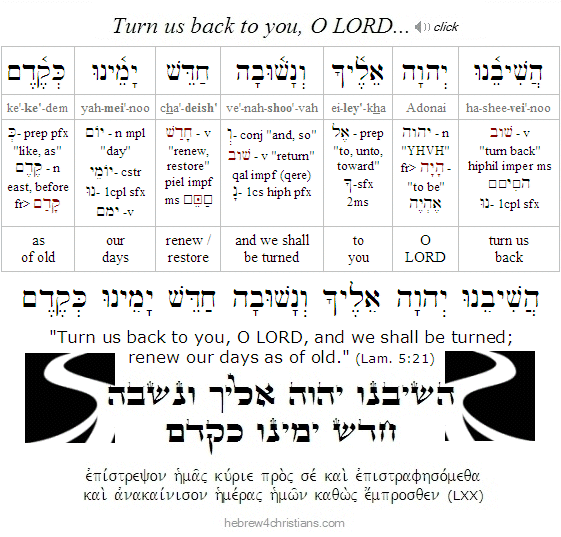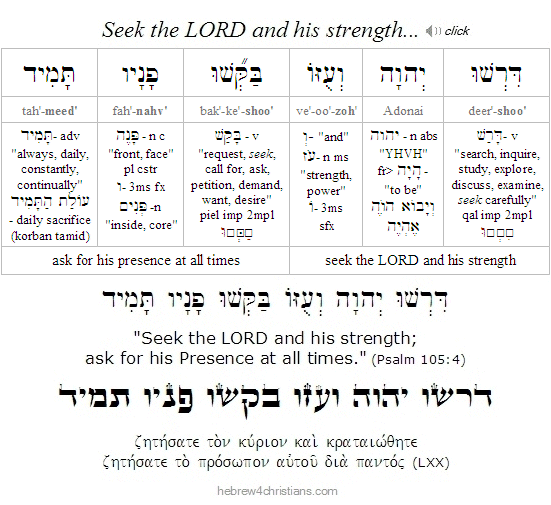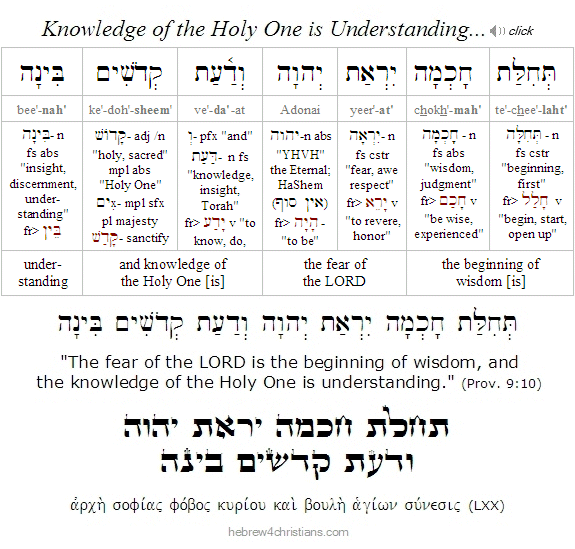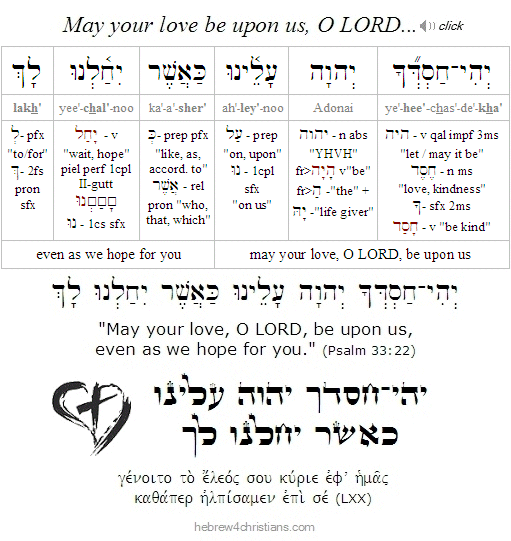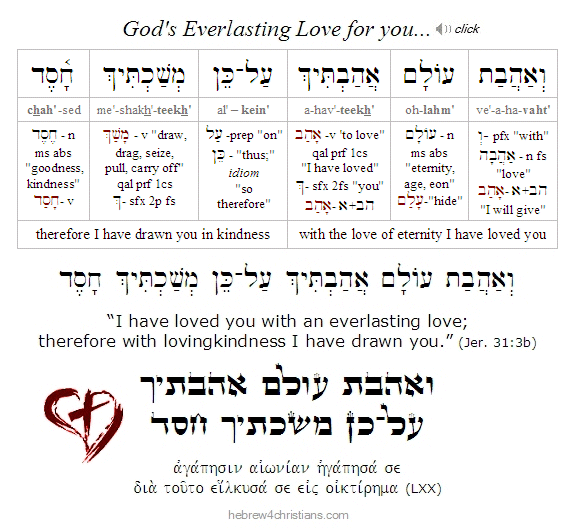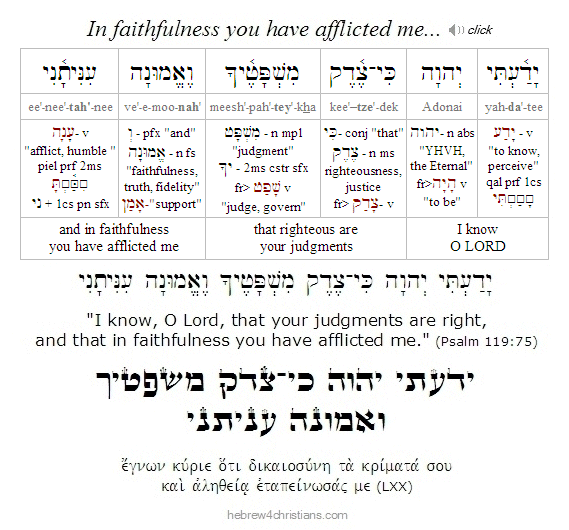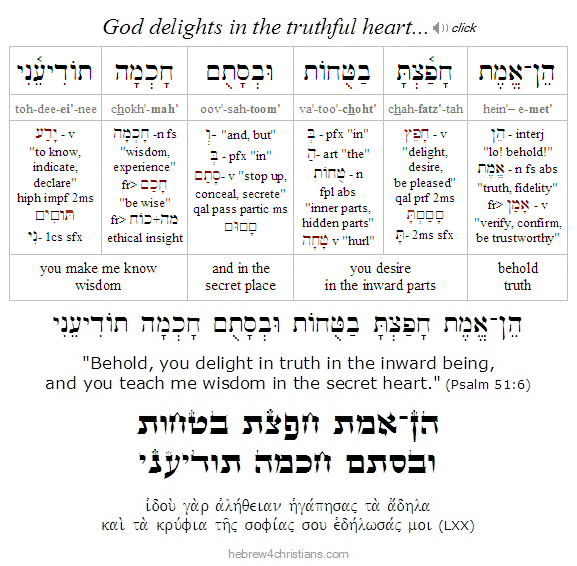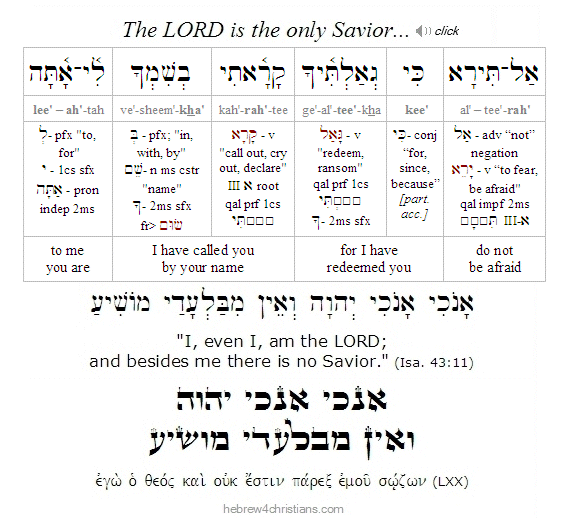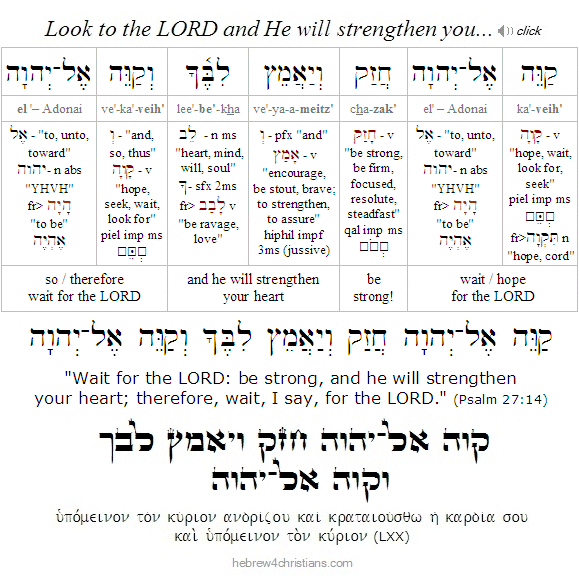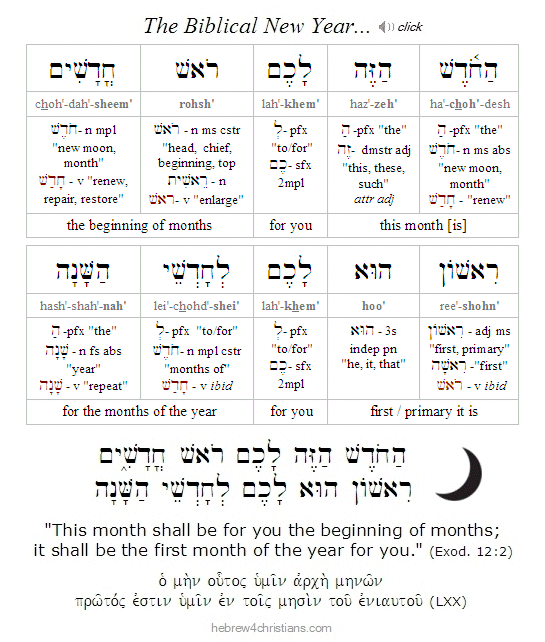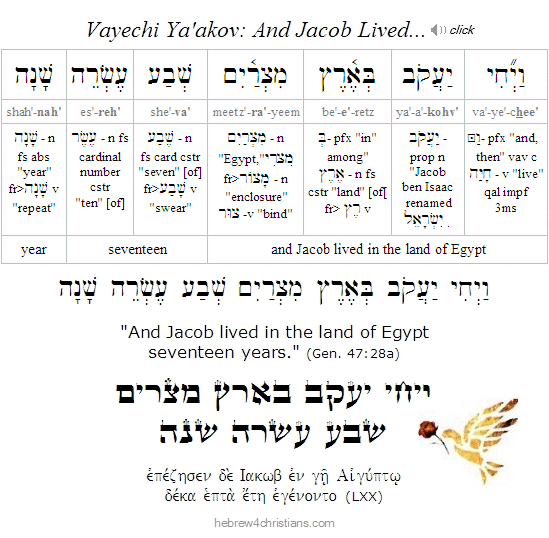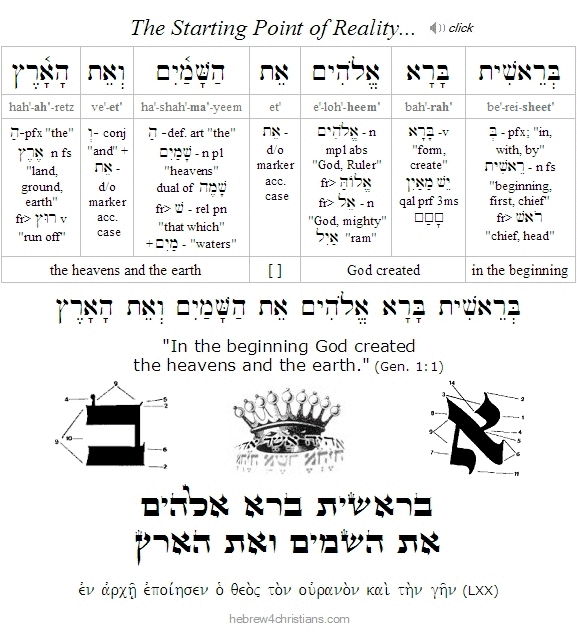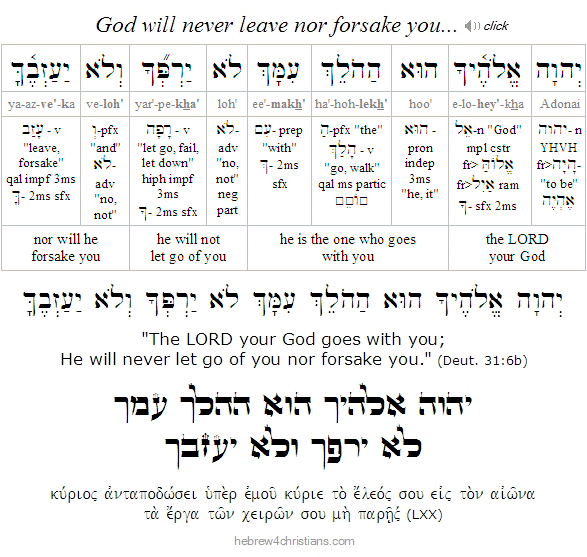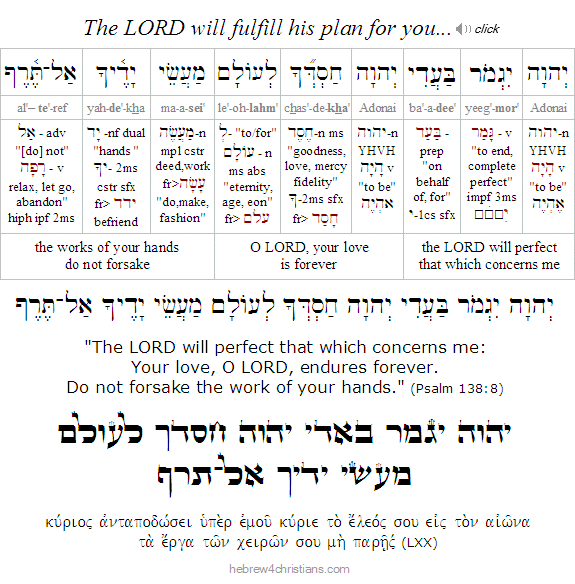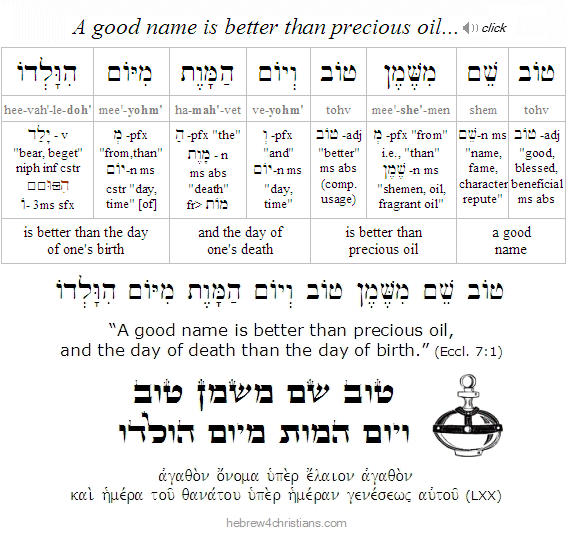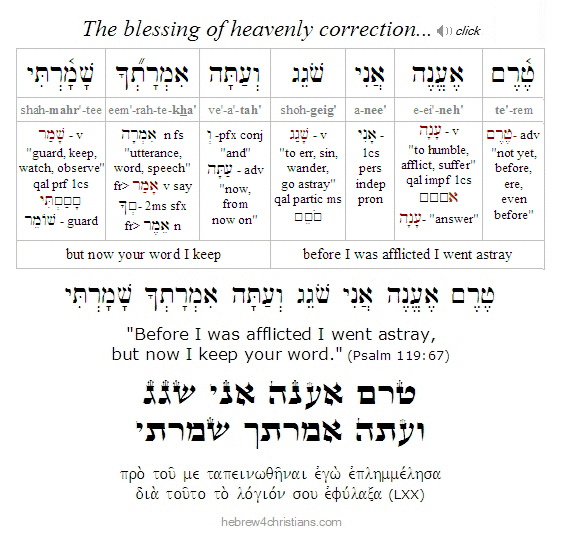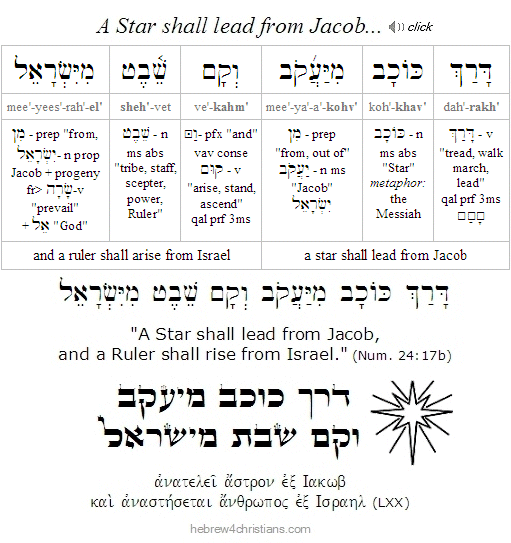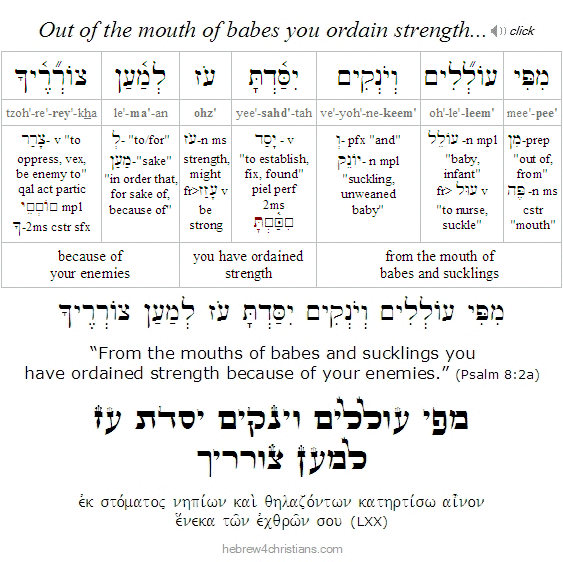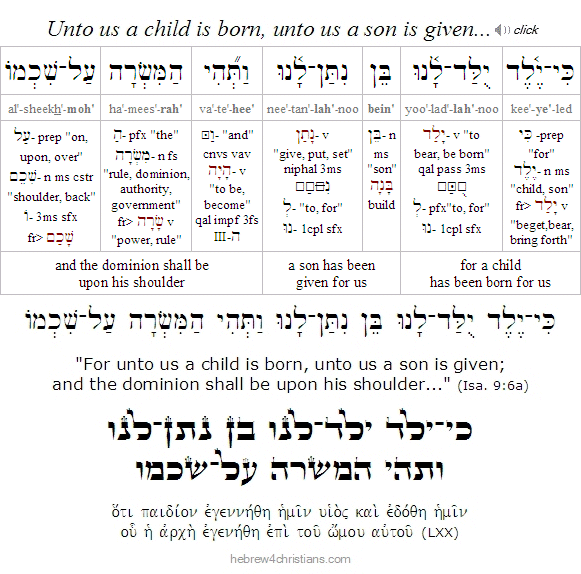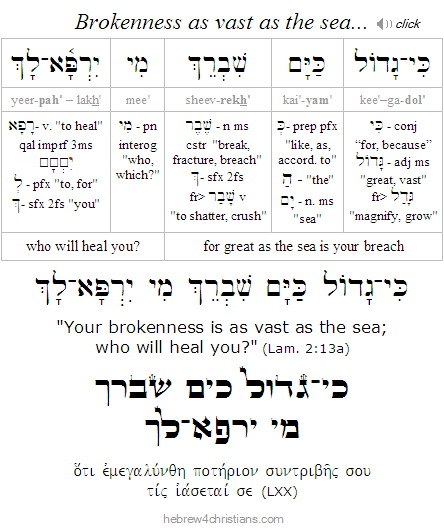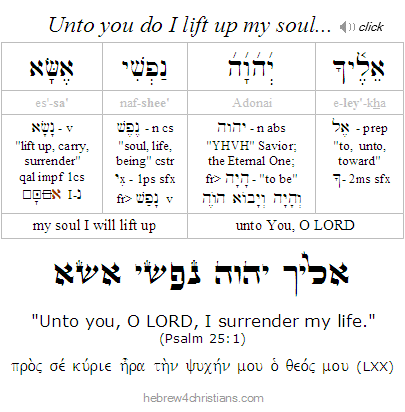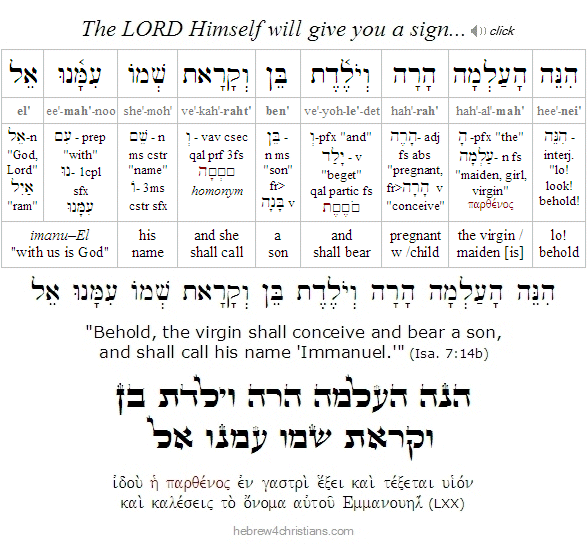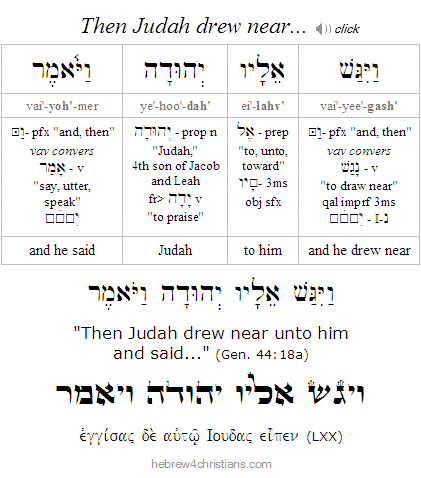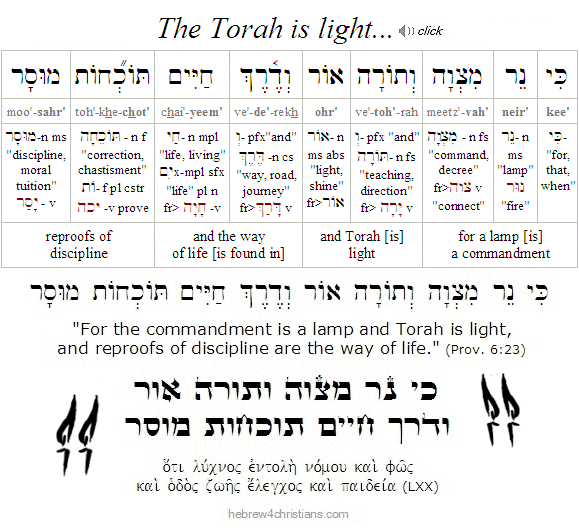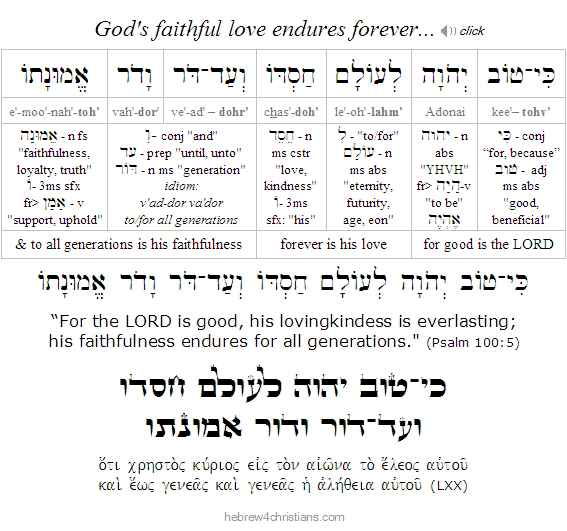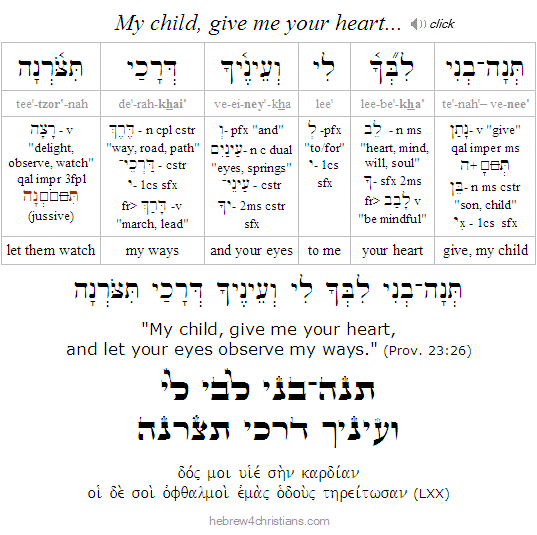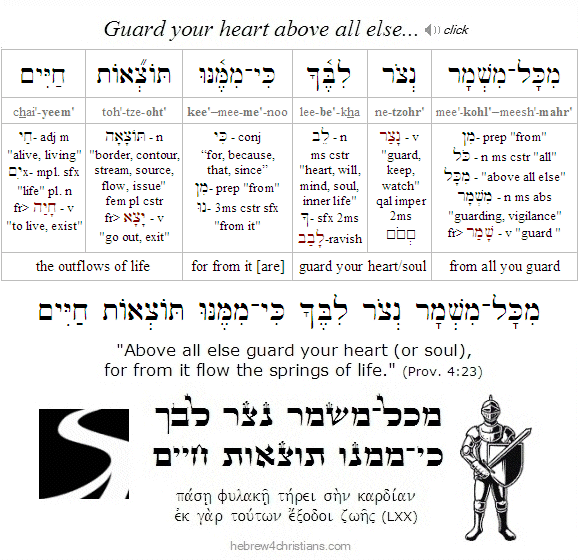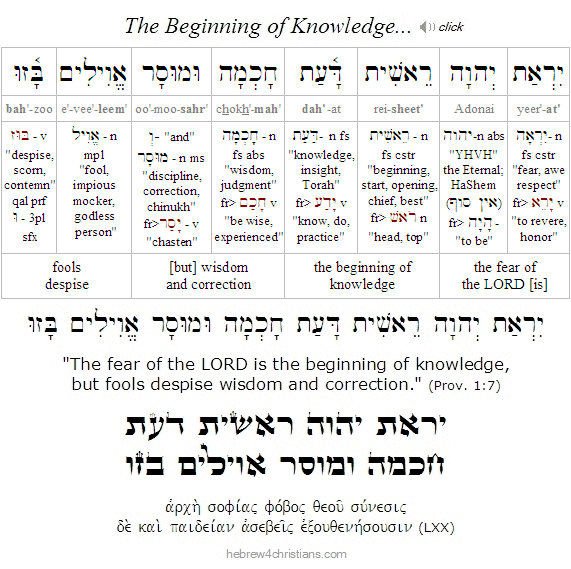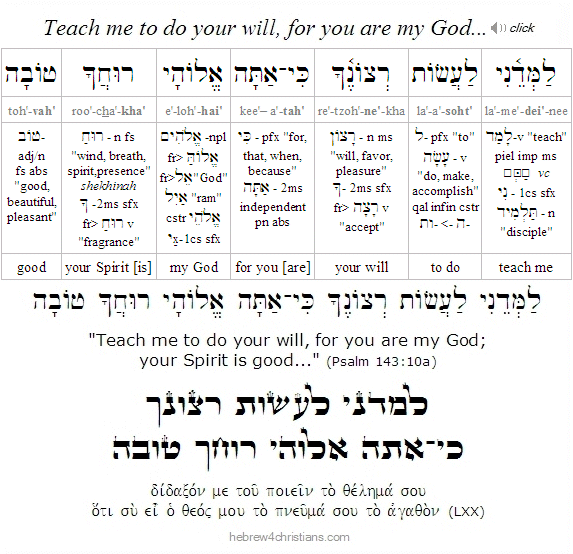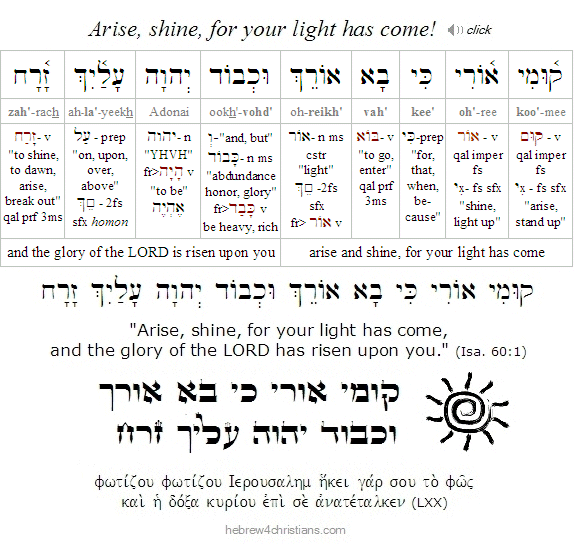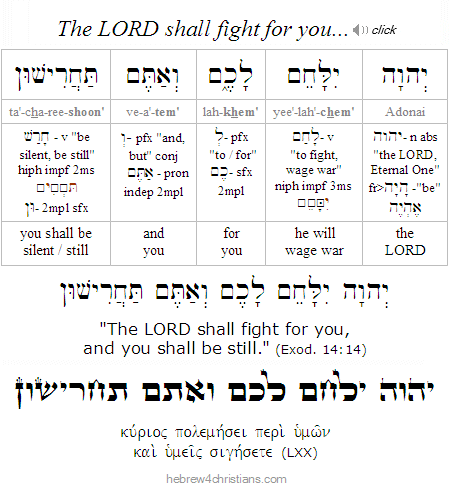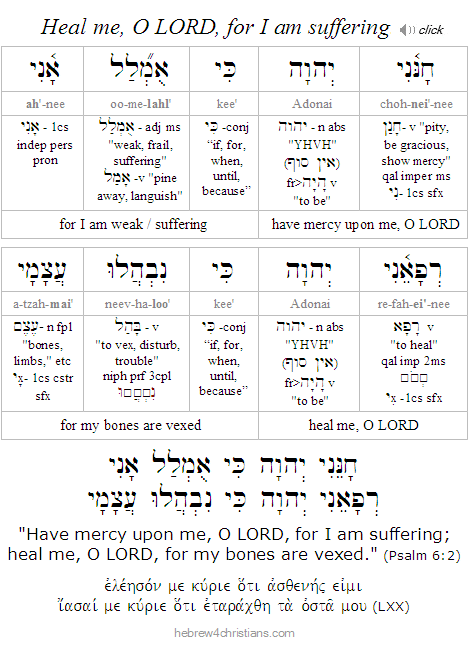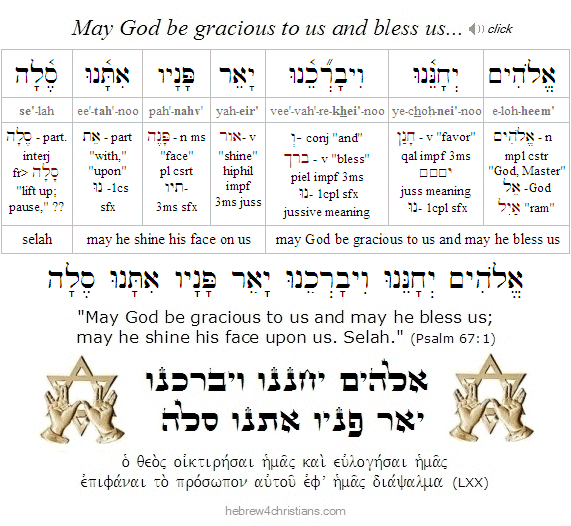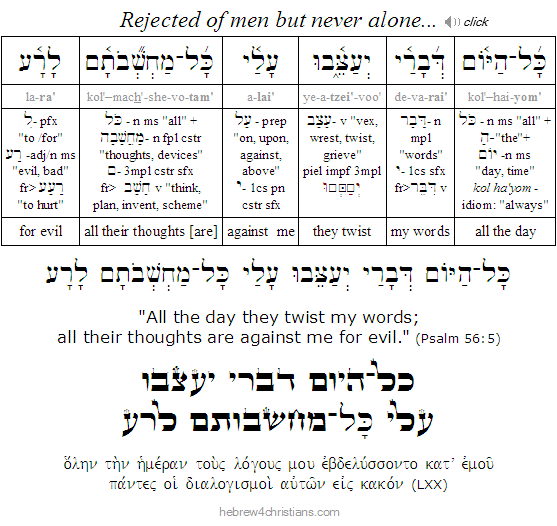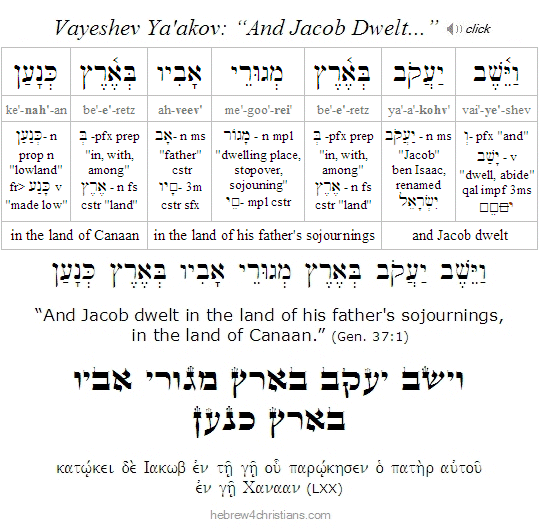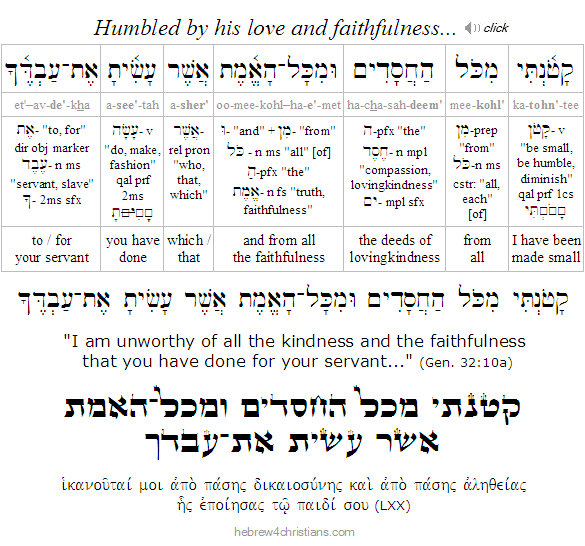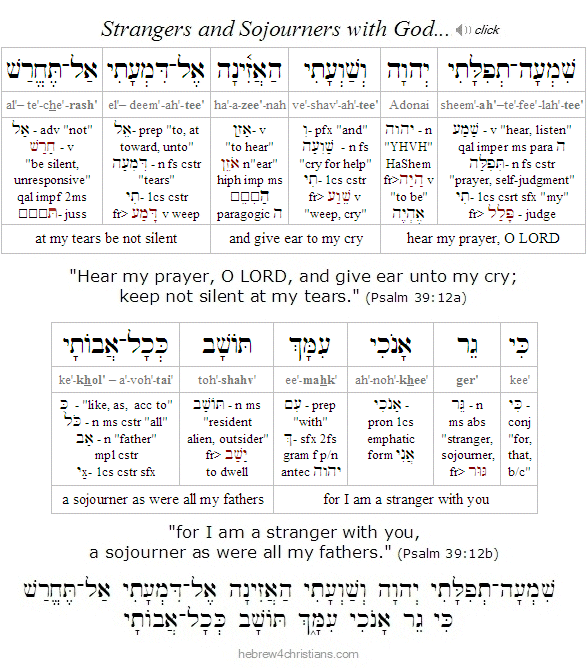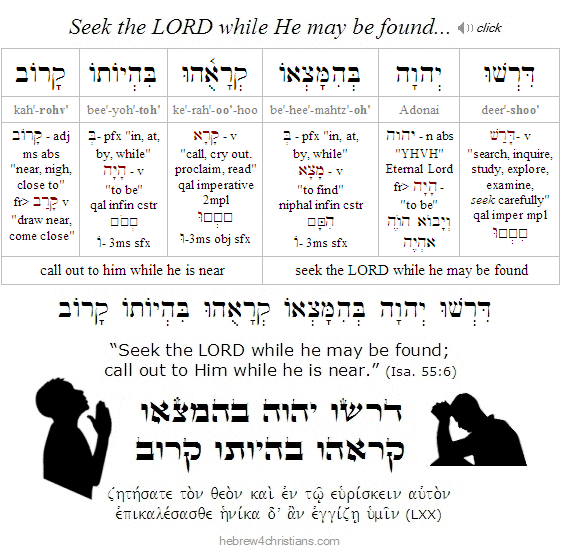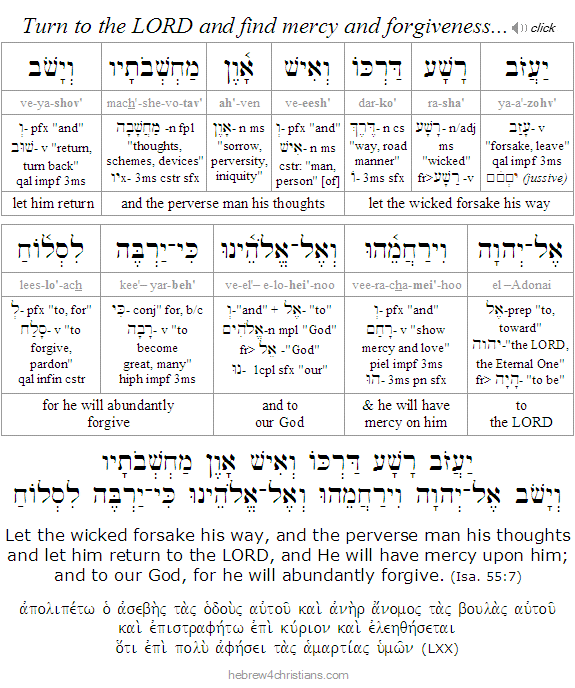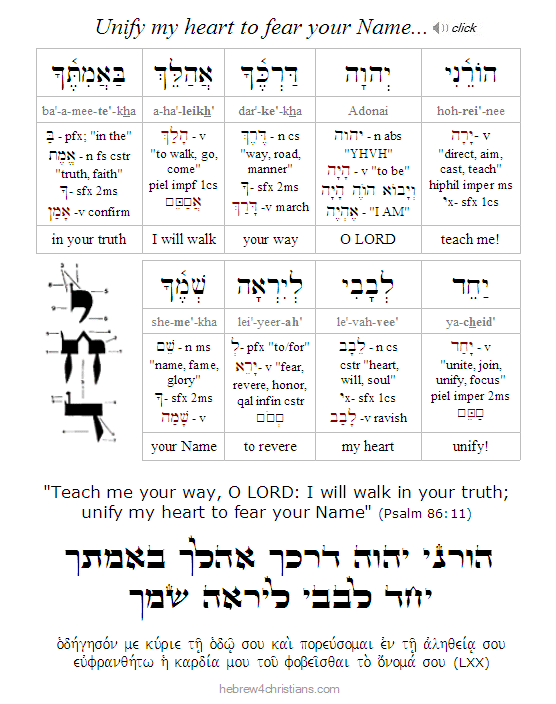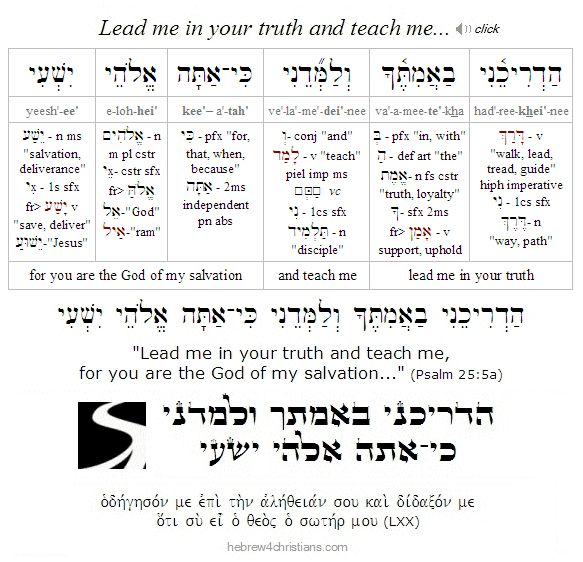|
Jewish Holiday Calendar
For December 2020 site updates, please scroll past this entry....
The Torah divides the calendar into two symmetrical halves: the Spring and the Fall, indicating the two advents of Messiah. The Biblical year officially begins during the month of the Passover from Egypt (called Rosh Chodashim, see Exod. 12:2), and the spring holidays of Passover, Unleavened Bread, and Firstfruits both recall our deliverance from Egypt and also our greater deliverance given by means of the death, burial, and resurrection of the Messiah, the great Passover Lamb of God. Yeshua was crucified on erev Pesach, buried during Unleavened Bread, and was resurrected on Yom Habikkurim (Firstfruits). The holiday of Shavuot (i.e., "Pentecost") both commemorates the revelation of the Torah at Sinai as well as the revelation of the Ruach HaKodesh (Holy Spirit) at Zion, in fulfillment of the promise given by our Lord....
The intermediate months of summer end with the advent of the sixth month of the calendar, called the month of Elul, which recalls the time Moses interceded on behalf of Israel after the sin of the Golden Calf. To commemorate this time of our history, we likewise focus on teshuvah (repentance) in anticipation of Rosh Hashanah and especially in anticipation of Yom Kippur, the great "Day of Atonement." In Jewish tradition the 30 days of Elul are combined with the first ten days of the seventh month (called the "Days of Awe") to set apart "Forty Days of Teshuvah" leading up to the Day of Forgiveness for Israel. Immediately following Yom Kippur, the mood changes as we begin preparing for a joyous week-long celebration called Sukkot (i.e., "Tabernacles") that concludes with the holiday of Simchat Torah.
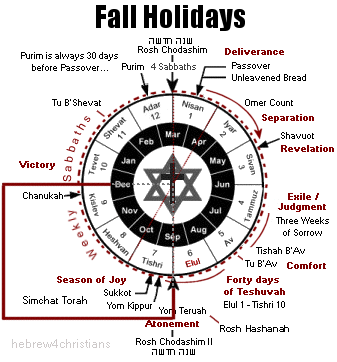 |
The Fall Holidays:

The fall festivals prophetically indicate the Day of the LORD, the second coming of Yeshua, the great national turning of the Jewish people, and the establishment of the reign of the Messiah upon the earth during the Millennial Kingdom in the world to come.
Note that in accordance with tradition, holiday dates begin at sundown. Moreover, some holidays may be postponed one day if they happen to fall on the weekly Sabbath:
1. Month of Tishri (Fri. Sept. 18th [eve] - Sat. Oct. 17th [day]) - Fall holidays begin!
2. Month of Cheshvan (Sat. Oct. 17th [eve] - Mon. Nov. 6th [day])
- Four Sabbaths: Noach, Lekh-Lekha, Vayera, Chayei Sarah
- Yom Ha'Aliyah - Honoring Israel's immigrants (Sat. Oct. 24th; Cheshvan 7)
- Sigd - 50th day after Yom Kippur; Ethiopian Jewish holiday Sun Nov. 15th)
3. Month of Kislev (Mon. Nov. 17th [eve] - Tues. Dec. 15th [day])
- Four Sabbaths: Toldot, Vayetzei, Vayishlach, Vayeshev
- Winter Solstice: Mon. Dec. 21st, Tevet 5)

- Dates for Chanukah 2020 (5781):
- 1st Chanukah candle - Thurs. Dec. 10th [i.e., Kislev 25]
- 2nd Chanukah candle - Fri. Dec. 11th [Kislev 26]
- 3rd Chanukah candle: Sat. Dec. 12th [Kislev 27]
- 4th Chanukah candle: Sun. Dec. 13th [Kislev 28]
- 5th Chanukah candle: Mon. Dec. 14th [Kislev 29]
- 6th Chanukah candle: Tues. Dec. 15th [Kislev 20]
4. Month of Tevet (Fri., Dec. 15th [eve] - Sun. Jan. 26th [day])
- Four Sabbaths: Miketz, Vayigash, Vayechi, Shemot
- Dates for Chanukah (continued):
- 7th Chanukah candle: Wed. Dec. 16th [Tevet 1] (Chodesh Chanukah)
- 8th Chanukah candle: Thur. Dec. 17th [Tevet 2] Zot Chanukah
- Last day of Chanukah: Fri. Dec. 18th [Tevet 3] - until sundown
- Asarah B'Tevet - Fri. Dec. 25th (dawn); fast over the seige of Jerusalem
- Christmas: Fri. Dec. 25th (Tevet 9, 5781)
- Secular New Year: Fri. Jan. 1st, 2021 (Tevet 17, 5781)
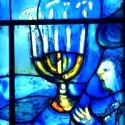 |
Note: For more about the dates of these holidays see the Calendar pages....
December 2020 Updates
Note: If any page content appears to be missing, please refresh the page...
Wisdom for a New Year...
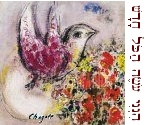
12.31.20 (Tevet 16, 5781) It is tragic that so many people go about their lives as if God doesn't exist... Instead of soberly acknowledging that their days are numbered in this world, they subconsciously assume they will live forever, and they steadfastly ignore any idea of judgment to come. Yeshua warned us, however, that "nothing is hidden except to be made manifest; nor is anything secret except to come to light" (Mark 4:22). We should tremble before such words. Each of us will give account for what we have done with the time given us (Heb. 9:27; 2 Cor. 5:10; Matt. 12:36). Moses therefore prayed to God: "Teach us to number our days, that we may apply our hearts unto wisdom" (Psalm 90:12). Each soul is given a finite amount of time in this world, and therefore Moses asked God to teach us how to live in light of our ultimate end... For this we need wisdom, which primarily consists of knowledge of the holy (דַעַת קְדשִׁים) and the experience of the awe of the LORD (יִרְאַת יְהוָה, Prov. 9:10). Note then the connection between learning to "number our days" and apprehending the sacredness of life. As we learn to esteem our days, so we discover wisdom for our sojourn to eternity. Reflecting on the brevity of life awakens us to consciously reflect upon the course of our lives and to distill the ultimate concerns of our hearts.
Hebrew Lesson:
Psalm 90:12 Hebrew reading (click):
Consider, then, the "measure of your days..." Your life in this world will end far sooner than you expect, and then what will become of you? I am not here thinking of the end of "the" world, but rather the end of your world - when you will die and face the light of eternity. Today, this moment, you are on the way, going someplace; your "latter days" are already come upon you... If you are not prepared today, how will you be better prepared tomorrow? Today is the day of salvation, the hour that matters most. Learn to die to the world now, to let go of what presently holds you captive, so that you are free to meet that which forever shall come. Don't put off genuine teshuvah: turn while there is still time. As Jim Elliot once said: "He is no fool who gives what he cannot keep, to gain what he cannot lose." And may God give us mercy to say from the heart: "For me to live is Messiah, and to die is gain" (Phil. 1:21).
Yet how many of us take all this to heart? How many of us "number our days" that we might attain wisdom? Do we appreciate the brief amount of time we are given in this life? When we are young we believe we will live forever. David prayed, "make me know my end and what is the measure of my days; let me know how fleeting I am!" (Psalm 39:4).
Hebrew Lesson:
Psalm 39:4 Hebrew reading (click):
Turning to a New Year...

12.31.20 (Tevet 16, 5781) The Book of Lamentations is an acrostic (i.e., alphabetical) poem that begins with the Hebrew letter Aleph (א) in the word "eichah" (אֵיכָה), which also marks the Hebrew name of the book. "How (eichah) lonely sits the city that once was full of people!" (Lam. 1:1). The sages note that this word "how" (i.e., eichah) could also be read as "where are you?" (i.e., ayeka: אַיֶּכָּה), God's first word spoken to Adam after he broke covenant in the Garden (Gen. 3:9). Note that God's question is often our own: "Where are you? Where are you, God? Are you here, in the midst of this tedious moment? Do you know my loneliness, my ache for love? Do you understand the troubles of my heart?" And yet how many people have faith that God's call is one of comfort and restoration? God uses our loneliness ("how lonely...") to search our hearts, asking each of us, ayeka – "Where are you?" "Why have you turned away from me and chosen a state of exile?" Our haunting sense of God's absence impels us to seek for him... God awaits our only possible response, "Hashivenu!" -- an imperative (urgent appeal) for the grace to repent: "Turn us back to yourself, O LORD, so that we may return to you; renew our days as of old" (Lam. 5:21).
הֲשִׁיבֵנוּ יְהוָה אֵלֶיךָ וְנָשׁוּבָה
חַדֵּשׁ יָמֵינוּ כְּקֶדֶם
ha·shee·vei'·noo · Adonai · ei·ley'·kha · ve·na·shoo'·vah
cha·deish · ya·mei'·noo · ke·ke'·dem

"Turn us back to yourself, O LORD, and we shall be turned;
renew our days as of old" (Lam. 5:21)

Hebrew Lesson:
Lamentations 5:21 Hebrew reading (click):
Our response to the questioning love of the LORD is called teshuvah ("turning [shuv] to God"). Teshuvah is an "answer" to a shelah, or a question. God's love for us is the question, and our teshuvah – our turning of the heart toward Him – is the answer. As Jeremiah confessed in the hour of great trouble: "I called upon thy name, O LORD, from the depths of the pit; Thou hast heard my voice: hide not thine ear at my breathing, at my cry. Thou drewest near in the day that I called upon thee: thou saidst, Fear not" (Lam. 3:55-57).
The Will to Believe...

12.31.20 (Tevet 16, 5781) "Pray that you may never have to endure all that you can learn to bear." Yes, though we must also believe that God "will not let us be tested beyond what we are able to bear, but with the test will also provide the way of escape (τὴν ἔκβασιν) so that we may be able to endure it" (1 Cor. 10:13). Indeed, in light of suffering what we really need is perseverance, or what the New Testament calls hupomone (ὑπομονή), a word that means "remaining [μένω] under [ὑπο]" the Divine Presence while being tested (the English word "suffer" comes from the Latin word sufferre, from sub- (under) + ferre, to carry, and therefore denotes "bearing under" difficulty). When we suffer, especially when we find no answer to our agony, we need to find the will to believe, the strength to stay constant, and the rise of hope that gives utterance to simple prayers that focus the heart upon the Lord's Presence: "God have mercy..." "Help me, O God..." "I need Thee, O Lord..." When we receive grace to faithfully suffer, we hear the Spirit whispering back to us: "Be not afraid..." "Live in me..." "Walk in the light..." "I am with you always..." "You are loved..."
רַבּוֹת רָעוֹת צַדִּיק
וּמִכֻּלָּם יַצִּילֶנּוּ יְהוָה
ra·boht · ra·oht · tza·deek
oo·mee·koo-lam · ya·tzee·le'·noo · Adonai

"Many are the afflictions of the righteous
but the LORD delivers him from them all." (Psalm 34:19)
Download Study Card

Hebrew Lesson:
Psalm 34:19 Hebrew reading (click):
Life itself weans us from life as we learn that nothing ultimately belongs to us... We must learn to make peace with our sorrows and disappointments, to let go of them and to accept that this day, despite its frailty and trouble, is a precious gift from above. "My peace I give to you" (שלי שלום אני אתן לך), said Yeshua, "not as the world gives, I give to you" (John 14:27). Not as the world gives... When we let go, when we put everything in God's hands, we acknowledge that all we have is a gift from God.
Appearance and Reality...

12.31.20 (Tevet 16, 5781) The Hebrew word for "world" or "age" is olam (עוֹלָם), which is derived from a root verb (עָלַם) that means "to conceal" or "to hide." God "hides" His face from us so that we will seek Him, and that means we must press through ambiguity to earnestly take hold of divine truth. Centuries before the time of the philosopher Plato, King David proclaimed that there was a "divided line" between the realm of the temporal world and realm of the hidden and eternal world. The temporal world is finite, subject to change, yet pointed beyond itself to an eternal world, which was the source of real significance, meaning, and life itself (2 Cor. 4:18). Therefore King David said, בַּקְּשׁוּ פָנָיו תָּמִיד/ bakeshu fanav tamid: "Seek His face at all times" (Psalm 105:4). Note that the numerical value for the word "fanav" (i.e., "His face") is the same as that for the word "olam." When we truly seek God's face (i.e., His Presence) we are able to discern the underlying purpose for our lives.
Hebrew Lesson:
Psalm 105:4 Hebrew reading lesson (click):
The ancient Greek version of the Torah (i.e., the "Septuagint" or LXX) translates this verse as, "Seek the LORD and be strengthened; seek His face through everything (διὰ παντός)." Unlike Plato, however, who "saw through" the temporal world and regarded it as less than real, King David understood that how we live within the intersection of these two realms reveals our inner character of faith -- and therefore our ultimate destiny....
Blessed Discontent...
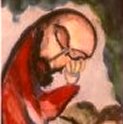
12.30.20 (Tevet 15, 5781) "Love not the world, neither the things that are in the world. If any man love the world, the love of the Father is not in him" (1 John 2:15). The way of faith always represents collision with the world (κόσμος) and its philosophy of the "good life." Happy are those who "hunger and thirst" for righteousness, who refrain from this world and make themselves poor because of inner heartache. For them no amount of the world's pleasures can obscure the difference between what is and what ought to be... This world is at best a corridor to the world to come, a "valley of decision" about what we ultimately choose to believe and to love...The heart of faith looks forward to "the city that has foundations, whose designer and builder is God" (Heb. 11:10).
There is a great danger to become so assimilated into this world that there is no longer any collision, no longer any protest, but merely the whimper of the soul that begs to be left alone from the general toil and troubles of this age... Conscience is seared; natural affections have been abandoned; and the "life" of the soul becomes a mere cipher, a phantom, a ghost... This is the scheme of the worldly dialectic that traps the human soul into living and dying for the sake of sheer vanity. May God help us not to so waste our days... The core prayer of the godly soul is always, "Help me, O LORD my God! Save me according to your steadfast love" (Psalm 109:26). Empty our hearts from vanity, O LORD, and afflict us with hunger and thirst for You, for you alone are what we really need....
עזרני יהוה אלהי
הושׁיעני כחסדך
ohz·rei'·nee · Adonai · E·loh·hai
ho·shee·ei'·nee · khe·chas·de'·kha

"Help me, O LORD my God!
Save me according to your faithful love!"
(Psalm 109:26)

Hebrew Lesson:
Psalm 109:26 Hebrew reading lesson (click):
Stupidity and the Mass Mind...

12.30.20 (Tevet 15, 5781) The defining characteristic of our age may be summed up by the word "stupidity," which may be defined as the impaired spiritual, moral, and mental condition of acculturated people (even seemingly intelligent ones) that has rendered them incapable of honestly evaluating truth claims and thinking logically (Rom. 1:28). Such "stupidity" has been inculcated by pop culture, comedians, vulgar music, and scripted by mass media; it has been propagated by the "dumbing down" of our educational system, and disseminated by godless political correctness propaganda for several generations now... Today we live in a morally insane and lawless culture that is incapable of self-governance -- a culture that has become entirely reprobate before the eyes of heaven. The Judgment is a hand.
Dietrich Bonhoeffer, who was surrounded by the atrocious evil of Nazi Germany, regarded the stupidity of his age as more dangerous than outright evil, since stupidity is a type of irrationality, a chosen ignorance of what is real and true. Against such willed ignorance we are often defenseless, since logical reasoning that appeals to objective truth for its premises finds no traction, carries no weight, and has no effect. The devil, then, seeks first of all to stupefy people, that is, to flatter and persuade them that there is no need for them to engage in serious thinking or to humbly question their assumptions... As William James observed: "A great many people think they are thinking when they are merely rearranging their prejudices." The antidote to unthinkingly accepting the biases and inculcated prejudices of the world is to be awakened to the reality of God: "The fear of the LORD is the beginning of wisdom, and the knowledge of the Holy One is understanding" (Prov. 9:10).
Hebrew Lesson:
Proverbs 9:10 Hebrew reading lesson (click):
The central axiom of all right thinking about reality is "wonder," or the humble awareness that life itself is something mysteriously beautiful, amazing, and therefore inherently sacred. This is sometimes called yirat Adonai (יִרְאַת יְהוָה), "the fear of the LORD" that leads to wisdom. Right thinking therefore begins with consciousness of the good (הַכָּרַת טוֹבָה), that is, with an awareness that life itself a gift, a mystery, and a hallowed question... We seek our origin, our essence, and our purpose -- and in our seeking we seek the LORD. We long for deliverance from what keeps us from healing, from love, from real hope. And as we seek, the wonder of the LORD God never ends. As Yeshua said, "Ask, and it will be given to you; seek, and you will find; knock, and it will be opened to you" (Matt. 7:7).
The Great Need to Wake Up...

12.29.20 (Tevet 14, 5781) We are living in perilous times, and for all the more reason we must "pay more careful attention to what we have heard so that we do not drift away" (Heb. 2:1). We must be anchored to the truth lest we become shipwrecked in our faith. Drifting is often imperceptible, and occurs slowly, though the end result is as deadly as openly turning away from God in outright apostasy. As C.S. Lewis once wrote, "The safest road to hell is the gradual one - the gentle slope, soft underfoot, without sudden turnings, without milestones, without signposts." The grave danger today is to quietly and invisibly give up hope, to unconsciously "go with the flow," to become comfortably numb, to fall asleep, and therefore to die inside... It is far more dangerous to ignore God's mercy, or to make a pretense of knowing God's grace, than it is to blatantly break his law. Therefore the urgent need is to remember, to hear, and to awaken the soul to face the truth about reality. We must focus the heart, concentrate the will, and consciously "set" the Lord always before us (Psalm 16:8). Each day we must awaken from our emptiness to reaffirm the central truth: "Shema Yisrael, Adonai Eloheinu, Adonai echad; and you shall love the LORD your God with all your heart and with all your soul and with all your might" (Deut. 6:4-5). "Awake, you who sleep, Arise from the dead, And Christ will give you light" (Eph. 5:14).
We must press on to secure our high calling in Messiah: "Let us know; let us press on to know (i.e., נִרְדְּפָה, "pursue after") the LORD; His going out is sure as the dawn; He will come to us as the showers, as the spring rains that water the earth" (Hos. 6:3). May God help us pursue him be'khol levavkha - with all our heart - because He has promised, "You will seek me and find me, when you seek me with all your heart" (Jer. 29:13). And may the love of the LORD indeed be upon us, even as we put our hope in Him (Psalm 32:22).
יְהִי־חַסְדְּךָ יְהוָה עָלֵינוּ
כַּאֲשֶׁר יִחַלְנוּ לָךְ
ye·hee · chas·de·kha · Adonai · a·ley'·noo
ka·a·sher · yee·chal'·noo · lakh

"May your love, O LORD, be upon us,
even as we hope in You"
(Psalm 33:22)

Hebrew Study Card
Whatever the heart genuinely seeks, it will find. We are constantly "asking, seeking, and knocking" (Matt. 7:7), even if we are often unaware of our heart's search. It is impossible to be neutral in all of this, and we are either walking in faith or drifting away. "Take care, brothers, lest there be in any of you an evil, unbelieving heart, leading you to fall away from the living God. But exhort one another every day, as long as it is called "today," that none of you may be hardened by the deceitfulness of sin. For we have come to share in Messiah, if indeed we hold our original confidence firm to the end" (Heb. 3:12-14).
Hebrew Lesson:
Psalm 33:22 Hebrew reading lesson (click):
The Torah of Love...

12.29.20 (Tevet 14, 5781) God does not love you based on your obedience, but his love for you will lead you to obedience... It is only after accepting that you are accepted despite yourself -- despite your inherent inability to please God, despite your incurably sick heart, despite your disobedience, sin, and so on -- it is only then that earnest, Spirit-enabled obedience may spontaneously arise within your heart. In that sense "obedience" is like falling in love with someone. It is your love that moves you to act and to express your heart, and were you prevented from doing so, you would undoubtedly grieve over your loss... Therefore the "law of the Spirit of Life in Messiah" is first of all empowered by God's grace and love. We walk by faith, hope, and love - these three. And this explains why the very first step of teshuvah (repentance) is to love God: Shema! Ve'ahavta et Adonai... The first work of faith is to believe in the miracle that God's love is "for-you-love..."
If you still find yourself operating from a sense of God's conditional acceptance, you will undoubtedly need to repeat the same sins over and over until your heart is finally convinced of its incurably wretched state. You must first be utterly sick of yourself to believe in the miracle of God's deliverance. Only after this does the good news of the gospel find its opportunity to speak...
Hebrew Lesson:
Jeremiah 31:3b Hebrew reading lesson (click):
Paradox and Suffering...
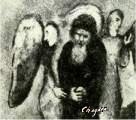
[ The following may be of interest to those who are interested in theologies of suffering... ]
12.29.20 (Tevet 14, 5781) There is a gap between the "real" and the "ideal," between our present sense of exile and our hope that one day we will be in our heavenly home; there is an inherent and ongoing dualism we experience as we sojourn through our days. On the one hand, if we make time to reflect on what is "real," we will eventually encounter the "Parmenidean" realm of "being," that is, the totality of sheer existence, the inescapable presence that surrounds and pervades any "thing" whatsoever: the "ground" of existence; the timeless sense of unity, perfection, and so on. The heart's response to this awareness is humble acceptance - to surrender to all that is -- in wonder over the miracle of consciousness and the sheer gift of life itself. The "real" is what "is" and that is a monolithic mystery...
On the other hand we encounter the everyday "Heraclitean" flux of life, the experience that all things flow (πάντα ῥεῖ ), and that we are all part of the endless river. The only "universal" is change itself, or the inscrutable process of becoming. The heart's response is to engage life, to learn to swim, and to go with the flow, however, since everything is in process, fighting injustice and seeking good outcomes are essential, and therefore there is a duty to refuse to passively be carried away in the drift, indifferent to the suffering and needs of others. We seek stability within the ongoing flux by identifying "universals" or principles, and it becomes our responsibility to improve the world, to lessen suffering, and to hold to whatever ultimately "is" -- the substance (or substratum) of everything, is good and worthy of our struggle...
 |
As a matter of practical living, this dualism shows up in our hearts as a disposition or temperament that arises when we encounter seemingly pointless suffering in our lives (or in the lives of others). Even if our theology encourages us to "see through" the dark cloud of suffering and accept its ultimate resolution, misery and chronic pain defy our best explanations, often leaving us speechless, in the whirlwind of mystery and confusion, hoping to find the will to believe despite our inner fracture or the crucifixion of our world...
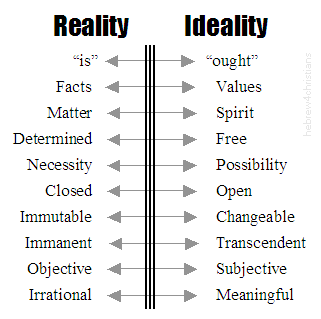 |
Friedrich Nietzsche once said that he could accept any "what" of suffering if he had a "why," though that dialectic is never really finished, since the faith to regard suffering as purposive or pointless is an ongoing, and ultimately terminal, struggle... Of course having a sense of meaning, a "story" that accounts for your suffering is important, yet it is a story being told as you live it, and you will have days of fortitude as well as days of weakness... As Kierkegaard once said: "Truth is not something you can appropriate easily and quickly. You certainly cannot sleep or dream yourself to the truth. No, you must be tried, do battle, and suffer if you are to acquire the truth for yourself. It is a sheer illusion to think that in relation to the truth there is an abridgment, a short cut that dispenses with the necessity for struggling for it."
The question as to whether suffering and death are "essential" to what is real or merely "accidental" is an academic one, but when the issue comes up-close and personal through intimate afflictions, the question becomes a matter of the heart answered by how we choose to respond, especially when our best explanations (or rationalizations) fail us... For most people this "answer" to the problem of suffering is to deny there is any problem at all, as Blaise Pascal once ironically noted: "Being unable to cure death, wretchedness, and ignorance, men have decided, in order to be happy, not to think about such things" (Pensees). Such collusion to deny the reality of suffering is ironically exposed in our addictions, our obsessions, and in our constant use of various "tools of distraction." Denying the reality of death is ultimately foolish, however, since it makes a deal with the devil to become "comfortably numb" at the expense of our very souls... "This your last chance. After this there is no turning back. You take the blue pill, the story ends. You wake up in your bed and believe whatever you want to. You take the red pill, you stay in Wonderland, and I show you how deep the rabbit hole goes. Remember, all I'm offering is the truth. Nothing more" (The Matrix: 1999). The ancient sage Socrates would unhesitatingly have swallowed the red pill: "It is better to be a human being dissatisfied than a pig satisfied; better to be Socrates dissatisfied than a fool satisfied. And if the fool, or the pig, is of a different opinion, it is only because they only know their own side of the question" (J.S. Mill: Utilitarianism, 1861).
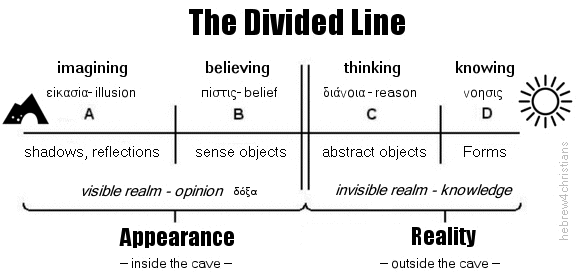 |
Another response to the problem of mortal suffering is to try to "fix" or circumvent it through various medical technologies. Instead of accepting the age-old struggle of learning to suffer (and to die) well, the modern world creates another layer of denial - pretending that death and disease are a problem that can be resolved by palliative technology and science. At the very least, medical technologies supply "end of life" care that is engineered to hide the truth from the culture at large... The rise of "trans-humanism" is a romantic idealization of this view.
A characteristically spiritual approach seeks to transform suffering and death to be the means of sanctification - a sorrowful yet necessary prelude to deliverance and ultimately to salvation. Suffering is the price we pay for the blessing of existence, and God uses it to educate or rectify the soul for the perfections of heaven. Now while such a "soul building" theodicy may rationalize some of the common hardships of life in this world, it rings a bit hollow when we consider certain forms of suffering, such as the death of a very young child or the unjust and senseless murder of a bystander in a bad neighborhood... It makes a mockery of the pain we feel in grief, by acts of terrorism, though political tyranny, and so on.
Often enough these different approaches to suffering are intermixed within the heart, as, for example, when a person receives a terminal medical diagnosis but then wrestles through accepting what is happening yet also doing whatever is possible to fight for life. This struggle arises when the intellectual "problem of evil" becomes a mystery of the heart, and the person both surrenders and yet wrestles over God's role in the darkness of their unknown. This is a sacred place , the "garden of pain," where we face the essential truth of our own vulnerability and mortality, our suffering and our fear, and yet it is precisely there that we cry out to God for the strength to accept his will without hatred and despair...
Intellectually we may be tempted to regard our suffering as the way to reconcile our sins with God's justice (karma), but this is not the message of the gospel, of course, which proclaims Yeshua was made "sin for us" to bring us forgiveness and life (Rom. 4:5; 1 Pet. 3:18; 2 Cor. 5:21; Rom. 8:1). Indeed Yeshua sacrificed on our behalf "reconciles" God's justice with the truth of his love (Psalm 85:10; 89:14). That said, we return again to the realm of paradox, since though we are not forensically punished so that we are made good, we are "corrected" by our Heavenly Father as we partake of suffering to be conformed to the image of Messiah (Heb. 12:5; Col. 1:24; Rom. 8:17; 8:29; 1 Cor. 15:49, etc.). The divine exchange given at the cross is the miracle of substitutionary atonement - and yet we still suffer in this life, we still might wonder if there be a hidden message of rebuke -- even while we are assured that all things (including our afflictions) work together for our ultimate good and for the glory of God.
Hebrew Lesson:
Psalm 119:75 Hebrew reading lesson (click):
It is an "already-not-yet" mode of existing, friend, as we partake of the heavenly gift and promise and yet await its consummation in the future... Meanwhile while God does not take away those pains and fears common to all men in this fallen world, he does impart courage produced by the Holy Spirit that yields conviction of His love and presence. Even if the world totters and shakes we find comfort because the LORD is near.
There is always a gap between what we are and what we could be, between the "is" and the "ought," and between the real and the ideal in our lives... Our conversion imparts to us a new spiritual nature, but we still must struggle through our deep inadequacies so that we might learn to truly love God and others (Shema). God graciously saves us by faith, and he sanctifies us the selfsame way, though in the latter case this means learning to keep focus, to persevere, and persist in hope - despite the shortfall of our lives. So where are you going today? Are you keeping faith in God's promises for your life? Are you catching up with the miracle of what God has done for you?
This dualism of life shows up within our hearts as we wrestle with our faith and with our "double-mindedness," that is, the ambivalence that results from not having our minds made up. On the one hand, we need to confess the truth of our radical sinfulness, our depravity, our brokenness, and so on, while on the other we must learn to know ourselves as the "beloved" and to find faith that God's blessing indeed belongs to us -- that Yeshua gave his life for us -- despite ourselves. We have to be willing to take God's new name for us and believe that God has transformed our deepest nature for eternal good. We have to be renamed from "Jacob" to "Israel," and yet we know ourselves as both... In other words, we must learn to "put on" the new nature and to "put off" the carnal reasoning of our former life. The answer for us is found in the word "miracle," as God in great mercy and compassion regenerates us, comforts us, and then guides our way back to the truth of his salvation.
הֵן־אֱמֶת חָפַצְתָּ בַטֻּחוֹת
וּבְסָתֻם חָכְמָה תוֹדִיעֵנִי
hein - e·met · cha·fatz'·ta · va·too·chot
oov·sa·toom · chokh·mah · to·dee·ei'·nee

"Behold, you delight in truth in the inward being,
and you will teach me wisdom in the secret heart"
(Psalm 51:6)

Hebrew Lesson:
Psalm 51:6 Hebrew reading lesson (click):
Often the only prayer we have is "Help, LORD!" (עזור לי יהוה). I use this one on a daily basis, that is, whenever I am confronted with the truth of my condition... Living in the "already-not-yet" state of redemption is a soul-building venture that helps us to acquire the precious middah (quality) of patience: "In your patience possess ye your souls" (Luke 21:19). Testing produces endurance (Rom. 5:3), but God surely is faithful "to keep you from falling, and to present you faultless before the presence of his glory with exceeding joy" (Jude 1:24). May He come speedily, and in our day. Amen.
The Providential Prince...

12.29.20 (Tevet 14, 5781) Though Joseph was given great wisdom to interpret Pharaoh's dreams and to serve as Egypt's regent, his foresight did not prevent the famine from coming in the first place, and the testing that came was part of God's hidden plan. The role of the true prophet is to bear witness to God's truth and to shepherd God's people through the unfolding vision. Joseph could not control the outcome, though he worked within the context of revelation to bring about deliverance. In both the "fat times and the lean" we look to God for comfort and strength: We "show up" every day to ready ourselves for what is coming, even if we currently find ourselves in darkness. We refuse fear because we trust that the LORD our God is guiding our way...
The term hashgachah pratit (הַשְׁגָּחָה פְּרָטִית) refers to God's personal supervision of our lives (hashgachah means "supervision," and pratit means "individual" or "particular"). Since He is the Master of the Universe, God's supervision and providence reaches to the smallest of details of creation - from subatomic particles to the great motions of the cosmos. God not only calls each star by its own name (Psalm 147:4), but knows each particular wildflower and sparrow (Matt. 6:28-30, 10:29). Each person created in the likeness of God is therefore under the direct, personal supervision of God Himself -- whether that soul is conscious of that fact or not. As Yeshua said, even the hairs on your head are all numbered (Matt. 10:30). The God of Israel is also called אלהֵי הָרוּחת לְכָל־בָּשָׂר / Elohei ha-ruchot lekhol-basar: "The God of the spirits of all flesh" (Num. 16:22), and that means that he has providential purposes for every human being brought into this world (John 1:4).
Return to Sanity...
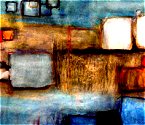
12.28.20 (Tevet 13, 5781) "Hear, O heavens, and give ear, O earth: for the LORD hath spoken, I have nourished and brought up children, and they have rebelled against me.... Ah, sinful nation, a people laden with iniquity, offspring of evildoers, children who deal corruptly! They have forsaken the LORD, they have despised the Holy One of Israel, they are utterly estranged. Why will you still be struck down? Why will you continue to rebel? The whole head is sick, and the whole heart faint. From the sole of the foot even to the head, there is no soundness in it, but bruises and sores and raw wounds... Your country lies desolate; your cities are burned with fire; in your very presence foreigners devour your land; it is desolate, as overthrown by foreigners...." (Isa. 1:2-7).
"Hear this, O foolish and senseless people, who have eyes, but see not, who have ears, but hear not. Do you not fear me? declares the LORD. Do you not tremble before me? Therefore "hear, O earth; behold, I am bringing disaster upon this people, the fruit of their devices, because they have not paid attention to my words; and as for my Torah, they have rejected it." (Jer. 5:21-25).
Repentance is a return to sanity which begins with the resolution to question your presuppositions and to change your thinking... There are three requisites for genuine repentance, that is, for turning to God in the truth, namely: 1) seeing eyes; 2) hearing ears; and 3) an understanding heart, ready to be healed (Isa. 6:10). God alone does the miracle but it is nevertheless our responsibility to believe that the miracle is personally for us. Repentance is the first step of salvation, as Messiah said: "Repent and believe in the good news" (Mark 1:15), and apart from repentance man has no real existence. As Yeshua said, "Truly, truly, I say to you, unless one is born again he cannot see the kingdom of God" (John 3:3). Repentance is the expression of trust in God's love, and by means of it we affirm: "I am ready to exist as a person of worth." Come alive, friends!
Hebrew Lesson:
Isaiah 43:11 Hebrew reading lesson (click):
Sowing and Reaping...
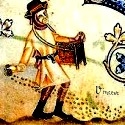
12.28.20 (Tevet 13, 5781) "Do not be deceived: God is not mocked, for whatever one sows, that will he also reap. The one who sows to his own flesh will from the flesh reap corruption, but the one who sows to the Spirit will from the Spirit reap eternal life" (Gal. 6:8). Here we see the importance of feeding the divine nature given to us in Messiah - to "sow" or "plant" truth within our hearts so that we will yield the "fruit of righteousness." However, feeding the lower nature, gratifying the desires of the flesh, disregarding the truth of eternity for the sake of temporal pleasure, and so on, leads to corruption and to death. Spirituality (רוּחניוּת), then, is of utmost importance to us, as we learn to "renew our minds" and yield ourselves to the truth of God (Gal. 5:16). We are engaged in the battle daily - an internal struggle to direct our hearts and to make the decision to be awake to the Lord's Presence or to surrender to our fallenness, fear, and despair. The Lord has promised us his very strength for the battle, but we must choose to believe in order to receive the blessing. Since God will surely help us as we seek to do His will (see 1 John 5:14), let us therefore draw near to the throne of grace with confidence, so that we may receive mercy and find grace to help in time of need (Heb. 4:16). God makes the way of escape (1 Cor. 10:13). The LORD God Almighty says to your heart: "Fear not, for I am with you; be not dismayed, for I am your God: I will strengthen you, yea, I will help you, yea, I will uphold you the right hand of my righteousness (Isa. 41:10).
Hebrew Lesson:
Isaiah 41:10 Hebrew reading lesson (click):
Reverence and Freedom...

12.28.20 (Tevet 13, 5781) Reading the news of the world is a demonstration of Romans 1:28: "Since they did not see fit to acknowledge God, God gave them up to a debased mind to do what ought not to be done." This is the word that describes our godless and brazen generation: "Because they hated knowledge and did not choose the fear of the LORD (יראת יהוה), they refused my counsel and despised my reproof, therefore they shall eat the fruit of their way, and have their fill of their own devices" (Prov. 1:29-1:31). God is patient and loving, of course, though there comes a time when his patience runs out, when -- after repeated warning and appeals -- a culture tragically hardens its heart further and further until God withdraws and people are left to their own vain imaginations and darkened impulses.
A widely accepted maxim of the Talmud is: "All is in the hands of God except the fear of heaven (yirat shamayim)" (Berachot 33b; Niddah 16b). In other words, though God constantly showers the world with grace and light, He does not "force" us to revere His Presence but rather leaves that choice with us. Of course God could overwhelm us all so that we had no choice but to see and fear Him, but He "withdraws" Himself and restrains His influence in our lives so that we can exercise faith. As Blaise Pascal said, "there is enough light for those who want to believe, and enough shadows to blind those who don't." The Hebrew word for seeing (ראה) and the word for fearing (ירא) share the same root. We cannot genuinely "choose life" apart from personally seeing it, but we cannot see it apart from the reverence of God. The reverence of God sanctifies our perception and enables us to see clearly. Therefore the righteous "walk by faith, not by sight" (2 Cor. 5:7).
Hebrew Lesson:
Psalm 27:14 Hebrew reading lesson (click):
About the Secular New Year...

12.27.20 (Tevet 12, 5781) In most countries of the world, "New Year's Day" is celebrated (usually as a "carnival" or revelry) on January 1st, though this date comes from the decree of the consuls of ancient (and pagan) Rome -- certainly not from anything taught in the Torah and the Hebrew Scriptures. According to Torah, however, there are two mirroring "New Years" observed during the year. The first occurs two weeks before Passover (Nisan 1) and the second occurs ten days before Yom Kippur (Tishri 1). The first is called Rosh Chodashim (see Exod. 12:2), which commemorates the month of the redemption of the Jewish people (i.e., the month Yeshua was sacrificed for our sins), whereas the second is called Yom Teru'ah that is associated with the "Feast of Ingathering" at the "end of the year" (Exod. 23:16, 34:22). Later Yom Terua'h became known as Rosh Hashanah ("the head of the year") which began a ten-day "trial" of humanity climaxing on the Day of Atonement (Yom Kippur).
The two "new years" of the Jewish calendar mirror each other and reveal the two advents of Messiah. For more on the secular New Year and its relationship to the calendar of Torah, see the H4C article: "The Gregorian Calendar and Pagan Assumptions."
Hebrew Lesson:
Exodus 12:2 Hebrew reading lesson (click):
Vayechi - "And He Lived..."
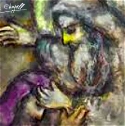
[ Shalom friends! Our Torah for this week is Parashat Vayechi, the final portion from the Book of Genesis, which includes Jacob's great prophecy of the coming Messiah... ]
12.27.20 (Tevet 12, 5781) Our Torah reading for this week, parashat Vayechi (i.e., Gen. 47:28-50:26), recounts how the great patriarch Jacob adopted Joseph's two sons (Ephraim and Manasseh) as his own children. When Jacob blessed the boys, however, he intentionally reversed the birth order by putting the younger before the older, signifying that the old struggle he had faced as a child was over, and he now understood things differently. And note Ephraim and Manasseh's reaction: the older did not envy the younger, nor did the younger boast over the older. The family had apparently learned that blessing from God is for the good of all, and that there is no real blessing apart from genuine humility that esteems the welfare of others. Following this, Jacob was ready to summon his family to hear his final words. Among other things, he foretold how the King of Israel, the Messiah, would descend from the tribal line of Judah, and then he careully instructed his sons to bury him only in the promised land, and not in the land of Egypt (Gen. 49:10-12; 49:29-32).
Hebrew Lesson:
Genesis 47:28a Hebrew reading lesson (click):
After his death, Joseph and his brothers, with various dignitaries of Egypt, formed a funeral procession and returned to Canaan to bury Jacob in the Cave of Machpelah in Hebron. After the funeral, they returned to Egypt, but Joseph's brothers feared that he would now repay them for their former betrayal and threw themselves on his mercy. Joseph reassured them that they had no reason to fear him and reminded them that God had overruled their earlier intent by intending him to be a blessing to the whole world (Gen. 50:20).
The portion ends with the account of the death of Joseph, who made the sons of Israel promise to take his bones with them when the LORD would bring them back to the land of Canaan (alluding to the great Exodus to come). Joseph's faith in the Jewish people's return to the Promised Land is summarized by his statement: "God will surely remember you" (Gen. 50:24). He died at age 110, was embalmed and placed in a coffin in Egypt, full of faith that he would be raised from the dead in the land promised to Abraham, Isaac, and Jacob.
Note: This Shabbat we will finish reading the Book of Genesis (סֵפֶר בְּרֵאשִׁית) for the current Jewish year... This incalculably great book begins with an account of the creation of the universe by the LORD and ends with Joseph being put into a coffin in Egypt. Note that the word translated "coffin" is the Hebrew word aron (אֲרוֹן), a word used elsewhere in the Torah to refer exclusively to the Ark of the Covenant (the ark that Noah built and the ark that Moses was placed in are both called "teivah"). Throughout their desert wanderings after the Sinai revelation, the Israelites actually carried two special arks - one holding the bones of Joseph and the other holding the tablets of the Ten Commandments.
Hebrew Lesson:
Genesis 1:1 Hebrew reading lesson (click):
Hebrew Lesson:
Deut. 31:6b Hebrew reading lesson (click):
God's Providential Passion...

12.25.20 (Tevet 10, 5781) "The LORD will perfect that which concerns me: Your love, O LORD, endures for ever: do not forsake the works of your hands" (Psalm 138:8). Here is the confession that all that we are or ever hope to be comes entirely from God, and therefore we can take heart. The LORD will finish the work he has begun in you: "Fear thou not, for I AM with you; be not dismayed, for I AM thy God; I will help you; yea, I will strengthen you, yea, I will uphold you with the right hand of my righteousness" (Isa. 40:10). Understand that the LORD's purposes are sure and his promises will invincibly be fulfilled, "for his lovingkindness is infinite" (כִּי לְעוֹלָם חַסְדּו). God will never forsake you nor abandon the work of his hands, but will providentially preserve his handiwork and consummate his vision of love (John 17:22; Eph. 1:10). Amen, "He who began a good work in you will bring it to completion for the Day of Yeshua the Messiah" (יוֹם יֵשׁוּעַ הַמָּשִׁיחַ, Phil. 1:6). "Now to him who is able to keep you from stumbling and to present you blameless before the presence of his glory with great joy, to the only wise God our Savior (μόνῳ σοφῷ θεῷ σωτῆρι ἡμῶν), be glory, majesty, dominion, and authority, before all time and now and forever. Amen" (Jude 1:24-25).
יְהוָה יִגְמר בַּעֲדִי
יְהוָה חַסְדְּךָ לְעוֹלָם
מַעֲשֵׂי יָדֶיךָ אַל־תֶּרֶף
Adonai · yeeg·mor · ba·a·dee
Adonai · chas·de·kha · le·o·lam
ma'a·sei · ya·dey'·kha · al-te·ref

"The LORD will perfect that which concerns me:
Your love, O LORD, endures forever:
Do not forsake the works of your hands."
(Psalm 138:8)

Hebrew Lesson:
Psalm 138:8 Hebrew reading lesson (click):
From the Torah we read: "God sent me before you to preserve you..." (Gen. 45:7). The mercy of God goes ahead of you to prepare a place for you (John 14:2). We may not know the details of our journey, but the "how" and the "way" is promised to us, as is our ultimate destination – the heavenly place of God, the Presence of our Beloved...
Happy holidays and love to you, friends....
He was Born to Die...

12.24.20 (Tevet 9, 5781) Though the promised birth of Yeshua may have occurred during the holiday of Sukkot (Tabernacles), with the incarnation occurring during Chanukah (the Festival of Light), many people of good faith observe the traditional "Gregorian Calendar" date of December 25th. Regardless of your particular conviction regarding the date of Yeshua's birth, the most important thing to remember is that He was born to die (Heb. 10:5-7). After all, the story of his birth is only significant in relation to His sacrificial death for us (Mark 8:27-33), and the "manger" scene leads directly to the altar of the cross. Indeed, in Jewish tradition the day of one's death is more important than the day of one's birth, since death summarizes the meaning and significance of a person's life in this world. Birth represents potential, whereas death represents inheritance... Therefore the Jewish custom is to commemorate the anniversary of a person's death (i.e., yahrzeit: יארצייט) and not the date of his or her birth. This custom is derived from the Scriptures themselves: "A good name is better than precious oil, and the day of death than the day of birth" (Eccl. 7:1):
טוֹב שֵׁם מִשֶּׁמֶן טוֹב
וְיוֹם הַמָּוֶת מִיּוֹם הִוָּלְדוֹ
tov · shem · mee·she'·men · tov
ve·yom · ha-ma'·vet · mee·yom · hee·va·le·do

"A good name is better than precious oil,
and the day of death than the day of birth."

Hebrew Lesson:
Ecclesiastes 7:1 Hebrew reading lesson (click):
The day of Yeshua's death (on Erev Pesach) represents the message of the Gospel story itself: "God so loved the world that He gave His only begotten Son, that whoever believes in Him should not perish but have eternal life" (John 3:16). This is of "first importance": Yeshua was born to die for our sins, to make us right with God, and was raised from the dead to vindicate the righteousness of God (1 Cor. 15:3-5). "For our sake God made Him to be sin who knew no sin, so that in him we might become the righteousness of God" (2 Cor. 5:21). The birth of the Messiah (or rather His incarnation) was the "first step" toward His sacrifice for our deliverance (Heb. 2:9-18). As Paul said, "I decided to know nothing among you except Yeshua the Messiah - and him crucified" (1 Cor. 2:2).
Yeshua came to earth and emptied himself (κένωσις) of His regal glory and power in order to be our High Priest of the New Covenant. The life he lived in complete surrender to the Father was meant to demonstrate that He alone is the efficacious Healer and High Priest (Mediator) of us all: "But [He] made himself nothing (εκενωσεν), taking the form of a slave, being born in the likeness of men; and being found in human form, he brought himself low by becoming obedient to the point of death, even death on a cross" (Phil 2:7-8). "There is therefore now no condemnation for those who are in Yeshua the Messiah. For the law of the Spirit of life has set you free in Yeshua the Messiah from the law of sin and death. For God has done what the law, weakened by the flesh, could not do. By sending his own Son in the likeness of sinful flesh and for sin, he condemned sin in the flesh, in order that the righteous requirement of the law might be fulfilled in us, who walk not according to the flesh but according to the Spirit" (Rom. 8:1-4).
Though Christmas is customarily the time that many people observe the birth of the Messiah and Savior, it is surely appropriate to celebrate Yeshua's glory as our risen King and Lord every day of our lives.... Therefore I sincerely wish each and every one of you a wonderful Christmas Season. May we all take time to reflect upon the profound gift of the One who was so great that He emptied Himself (κένωσις) of all His regal glory and power to be clothed in human flesh in order to die as our sin offering before the Father.
A closing thought...
Finally let me add that it is one thing to speculate on the anniversary of the birth date of Messiah, and quite another to submit to His rule in your heart at this present hour... We must be careful. "The natural person does not accept the things of the Spirit of God, for they are foolishness to him, nor is he able to know them because they are spiritually discerned" (1 Cor. 2:14). Note that the "natural person" mentioned here is not carnal or bodily-focused (σαρκικός), but is soul-focused (ψυχικὸς), emphasizing the life of the intellect and rationality. The "soulish" person may find the idea of God or matters of religion "interesting," but not as a matter of life and death. The Spirit of God must first awaken a person to reveal their need for a healing so radical that everything will be transformed, and a new "spiritual person" (πνευματικός) will be quickened to receive the truth of God. The Scripture says we are to ask in order to receive, but we do not know enough to truly ask until we accept the reality about our condition. When we ask according to God's will, however, God sets in motion the miracle and the answer to our heart's cry. Regarding these matters, I quote Augustine of Hippo:
In necessariis unitas (in essentials unity),
In dubiis libertas (in doubtful things liberty),
In omnibus autem caritas (but in all things love).
Every Soul's Struggle...
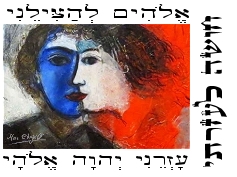
12.24.20 (Tevet 9, 5781) "Everybody wants to go to heaven, but nobody wants to die..." Everybody wants the finished product of a surrendered life, but no one wants the process, the painful shattering, the revelation of the end of themselves... And yet it is only by means of affliction that the "outer shell of the seed" is broken so that new life can burst forth: "I tell you the solemn truth, unless a kernel of wheat falls into the ground and dies, it remains by itself alone. But if it dies, it produces much grain" (John 12:24). If the seed does not fall to the ground and die, αὐτὸς μόνος μένει - it remains alone - by itself...
Since we will not surrender without struggle, God must intervene and save us from ourselves. Each of us must "go to Peniel" to wrestle with the Angel; each of us must be renamed from Ya'akov ("a supplanter") to Israel ("a prince with God"). Like Jacob, we will prevail with God when we give up the fight and accept our brokenness. We win by surrendering.
It's been said that we can never know that God is all we need until God is all we have left (John 15:5). Therefore "blessed are the poor in spirit, for theirs is the kingdom of heaven; blessed are those who mourn, for they shall be comforted; blessed are those who hunger and thirst for righteousness, for they shall be filled..."(Matt. 5:3-6).
טֶרֶם אֶעֱנֶה אֲנִי שׁגֵג
וְעַתָּה אִמְרָתְךָ שָׁמָרְתִּי
te'·rem · e·e'·neh · a·nee · sho·geig
ve·a·tah · eem·ra·te·kha · sha·mar'·tee

"Before I was afflicted I went astray,
but now I keep your word."
(Psalm 119:67)

Hebrew Lesson:
Psalm 119:67 Hebrew reading lesson (click):
His Star Still Leads...
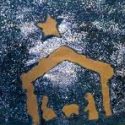
12.23.20 (Tevet 8, 5781) "A Star shall lead from of Jacob..." Amazingly, the pagan seer Balaam – who may have been the forebear of the "magi of the east" (Matt. 2:1-2) – foresaw the coming of the Messiah: "I see him, but not now; I behold him, but not near: a Star shall lead from Jacob (דָּרַךְ כּוֹכָב מִיַּעֲקב), and a Ruler shall arise from Israel" (Num. 24:17). Balaam's prophecy described the coming of the Messiah and his reign in two distinct aspects: "A star from Jacob shall lead the way (i.e., דָּרַךְ)," this refers to Messiah's first coming as the way of life (John 14:6), "and a scepter (i.e., Ruler) shall ascend (וְקָם שֵׁבֶט) from Israel," this refers to Messiah's second coming to establish the kingdom after the final redemption.
דָּרַךְ כּוֹכָב מִיַּעֲקב
וְקָם שֵׁבֶט מִיִּשְׂרָאֵל
da·rakh · ko·khav · mee·ya·a·kov
ve·kahm · she'·vet · mee·yees·ra·el

"A Star shall lead from Jacob,
and a Ruler shall rise from Israel.
(Num. 24:17)

Hebrew Lesson:
Numbers 24:17b Hebrew reading lesson (click):
As I mentioned the other day, the very purpose and goal of salvation is for us "to turn from darkness to light and from the power of Satan to God" (Acts 26:18). Hashivenu, Adonai... When the darkness seems to enshroud your way, pray for God's star light to be rekindled within your soul. Happy holidays and love to you, friends.
Humility of the Messiah...
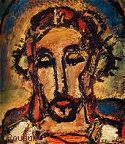
[ The "Christmas" season gives us an opportunity to focus on the truth of incarnational theology, to celebrate the revelation of God in Yeshua, and to proclaim the miracle that God "emptied Himself" by being clothed in human flesh as the great Lamb of God.... ]
12.23.20 (Tevet 8, 5781) Though the world system corrupts the message of the birth of Messiah for the sake of avarice and greed, take a moment to reflect on its ongoing spiritual significance, namely, that God emptied Himself (κένωσις) of His regal glory and power to become your High Priest, able to fully sympathize with your weakness, frailty, shame, and chronic sinfulness (Heb. 4:15-16; Phil 2:7-8). Almighty God, the Presence of Love, the Heart of Reality, clothed himself in human flesh and bone to become Immanu'el (עִמָּנוּ אֵל) - "God with us" - so that we could be touched by Him, healed by Him, and redeemed by Him... In light of this, it is only fitting we should join the refrain of heavenly host: "Glory to God in the highest, and upon earth peace, good will toward men" (Luke 2:14). Amen! Yeshua is the Eternal Sign and Wonder of the LORD God Almighty...
כָּבוֹד לֵאלהִים בַּמְּרוֹמִים
וְשָׁלוֹם עֲלֵי אֲדָמוֹת בְּקֵרֵב אַנְשֵׁי רְצוֹנוֹ
ka·vohd · le·lo·heem · ba·me·ro·meem
ve·sha·lom · a·lei - a·da·moht · bee·ke'·rev · a·nee·shei · re·tzo·no

"Glory to God in the highest,
and upon earth peace, good will toward men."
(Luke 2:14)

Hebrew Study Card
Consider the absolute humility of God as He chose to enter into this world as "baby Jesus." Meditate on the glory and sheer paradox of God's love! "Baby Jesus" is the perfect disguise to hide the truth from the proud eyes of the flesh, though the humble of heart can see... "For since in the wisdom of God the world by its wisdom did not know God, God was pleased to save those who believe by the foolishness of preaching" (1 Cor. 1:21). For "who comprehends the mind of the LORD, or gives him instruction as his counselor?" Through his great plan to redeem people from the dominion of Satan and his agents in this evil world, God emptied Himself to become clothed in the frailty human flesh, born in a barn as the great Lamb of God, and born to die as the ransom for all who will believe. Ah, what would we do without the gift of God, friends? What hope would we have? Regardless of the exact date of his birth of His birth, let's thank God that our Moshia (Savior) was willing to be born into this dark world to offer Himself as our sacrificial Redeemer! "For from him and through him and to him are all things. To him be glory forever. Amen."
Hebrew Lesson:
Psalm 8:2a Hebrew reading lesson (click):
But what will you do, then, if you sincerely seek to follow the Torah's calendar in light of entrenched Christian customs? Well, we certainly may commemorate the birth of Messiah during the holiday of Sukkot (or Shavuot, etc.), though we must be careful to show charity and use the "good eye" toward those who may adhere to the traditional date for "Christmas." Likewise we commemorate the death and resurrection of Messiah during Passover and Firstfruits, respectively, though we do not begrudge those of good faith who honor these great events of salvation during what they call the "Pascha" or even the "Easter" season. Often we are tested in exactly this way, chaverim! We must not miss the "weightier matters" of extending love to others, as Yeshua clearly taught (Matt. 23:23). Moreover it is written, "Let every man be fully persuaded in his own mind" (Rom. 14:5; Col. 2:16).
Friends, we must test the spirits -- and that includes our own! How do we treat the "stranger" among us? How do we regard the "weaker brother?" Do we demand that our doctrine be esteemed, or do we allow room for others to seek the Lord and his wisdom? Ask yourself: Does this person (or group) honor Yeshua as God the Son, the Redeemer of Humanity who died for our sins and rose from the dead? If so, then keep your heart warm and soft toward him or her, even if he or she has yet to discover the Jewish roots of their faith. "Strive for peace with everyone" (Heb. 12:14). "Let those of us who are mature think this way, and if in anything you think otherwise, God will reveal that also to you" (Phil. 3:15). Though we desire unity with one another (John 17:11), we cannot reasonably insist on doctrinal uniformity, especially in light of the frailty of our shared human condition... The truth of God is known in humility and love.
Birth Date of Jesus Revisited...
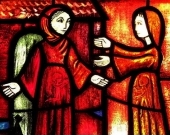
12.22.20 (Tevet 7, 5781) Was Jesus (Yeshua) really born on December 25th, as the Western Christian Tradition maintains, or does the careful study of Scripture allow us to infer a different time for His advent here on earth? Two cases can be reasonably made: one case for a Tishri (Sukkot) birth, and the other for the traditional late December (or early January) date. As I hope you will see, the crux of the arguments both for and against the late December dating of the birth of Yeshua depend upon when we think Zechariah (John the Baptist's father) was in the Temple when he was visited by the angel Gabriel...
The Scriptures teach that King David divided the sons of Aaron (i.e., the priests) into 24 "courses" or groups to create an orderly schedule by which the Temple of the LORD could be staffed for the year (1 Chr. 24:1-4). Once these courses were established, lots were drawn to determine the sequence each group would serve in the Temple (1 Chr. 24:7-19) beginning with the first course in the Spring on Nisan 1 (Rosh Chodashim). Each of the 24 courses of priests would begin and end their service on the Sabbath day for a tour of duty of one week (2 Chr. 23:8, 1 Chr. 9:25).
Now recall that Jewish calendar begins in the spring (i.e., Nisan 1), so the first course of priests would serve for seven days and the following week the second course would serve. The third week would mark the festival of Passover when all priests would be present for service, so the schedule would be suspended until the following week when the third course of priests would serve. The weekly arrangement would then resume until the holiday of Shavuot (Pentecost) when the schedule was suspended again for the ninth week. By the tenth week the eighth course (of Aviyah) would be called for Temple service and the courses would continue without further interruption until the 24th course was completed (see table below). Note that after the 24th course served, the first half of the calendar would be complete and the schedule would then reset for the second half of the year. By means of this arrangement each group of priests would serve in the Temple twice per year (in addition to the three major festivals of Passover, Shavuot, and Sukkot).
 |
Note that this weekly schedule of the Temple service allows us to infer the birth date of both John the Baptist and Yeshua the Messiah. Of particular interest is the eighth course of the priests, called the "Course of Aviyah" (mentioned in 1 Chr. 24:10) which was the course that Zechariah served (Luke 1:5). Now since the eighth course would serve either during the month of Sivan or later during the month of Kislev (see the table above), we have two possibilities regarding establishing the birth date of Yeshua the Messiah. If the visitation of Gabriel occurred during Zechariah's first course of service (i.e., the 10th week), then John would have been conceived sometime during the month of Sivan (Luke 1:23-4), and adding 40 weeks to this (the normal time of human gestation) John would have been born sometime in the month of Nisan, perhaps around the time of Passover. Furthermore, since Yeshua was conceived six months after John was conceived (Luke 1:24-27, 36), adding six months (or 24 weeks) to the end of Sivan implies his conception would have occurred in mid to late Kislev (near the time of Chanukah). Adding 40 weeks to this (again, the approximate time of human gestation), Yeshua then would have been born sometime in the month of Tishri, during the season of Sukkot (i.e., "Tabernacles"). On the other hand, if the visitation by Gabriel occurred during Zechariah's second service (i.e., 35th week), then John would have been conceived after Yom Kippur (Luke 1:8-23) and born 40 weeks later in month of Tammuz. Again, since Yeshua was conceived six months after John was conceived (Luke 1:24-27, 36), adding six months (or 24 weeks) would imply he was conceived during Passover and born later during the month of Tevet, near the traditional late December birth...
For more on this topic see "Christmas Day: Was Jesus Really Born on December 25th?" or download the printable version here:
Note: The fact that different church groups have chosen one date over another to memorialize certain historical events (such as the birth date of the Messiah) is simply something we must tolerate, especially because the Scriptures do not provide enough information to conclusively determine the matter, and we are instructed to follow after peace (Heb. 12:14)... This is not a question regarding the historicity of the person of Yeshua, since that is not seriously questioned by historical scholars. However, the Scriptures do accommodate divergent convictions on such matters, as Paul gave the principle: ῝Ος μὲν κρίνει ἡμέραν παρ᾽ ἡμέραν, ὃς δὲ κρίνει πᾶσαν ἡμέραν. ῞Εκαστος ἐν τῷ ἰδίῳ νοῒ πληροφορείσθω - "One person esteems one day as better than another, while another esteems all days alike. Each one should be fully convinced in his own mind" (Rom: 14:5). "So then let us pursue what makes for peace and for mutual upbuilding" (Rom. 14:19).
You might not agree with my tentative conclusions here, but if you want to make a case for a different date, please do your own research on the question. Read the relevant Hebrew texts, do the math, consult the Jewish calendar, read the New Testament, check the Greek, and determine whether you think Zechariah was serving at the Temple during the month of Sivan or later, during Tishri, perhaps during the time of Yom Kippur. Shalom!
The Nativity Prophecies...

12.22.20 (Tevet 7, 5781) Regarding the birth of Messiah it is written in our Scriptures: "For unto us a child is born, unto us a son is given; and the dominion shall be upon his shoulder, and his name shall be called: 'the Wonderful Counselor (פֶּלֶא יוֹעֵץ), the Mighty God (אֵל גִּבּוֹר), the Father of Eternity (אֲבִיעַד), the Prince of Peace'" (Isa. 9:6). "Unto us a child is born" - this is the first advent - when the Messiah would be rejected, suffer, and die for our sins; and "unto us a son is given" - this is the second advent - when the Messiah will reign as David's greater regent in the kingdom promised to Zion.
כִּי־יֶלֶד יֻלַּד־לָנוּ בֵּן נִתַּן־לָנוּ
וַתְּהִי הַמִּשְׂרָה עַל־שִׁכְמוֹ
וַיִּקְרָא שְׁמוֹ פֶּלֶא יוֹעֵץ
אֵל גִּבּוֹר אֲבִיעַד שַׂר־שָׁלוֹם
kee · ye'·led · yoo·lad · la'·noo, · ben · nee·tan - la'·noo
va·te·hee · ha·mees·rah · al - sheekh·mo
va·yee·kra · she·mo · pe'·le · yo·etz
el · gee·bor · a·vee-ad · sar-shalom

"For unto us a child is born, unto us a son is given;
and the dominion shall be upon his shoulder,
and his name shall be called: the Wonderful Counselor,
the Mighty God, the Father of Eternity, the Prince of Peace."
(Isa. 9:6)

Hebrew Lesson:
Isaiah 9:6a Hebrew reading lesson (click):
Hebrew Lesson:
Isaiah 9:6b Hebrew reading lesson (click):
Notice that the four terms used to describe this coming King clearly transcend the historical figure of any earthly king of Israel. For example, the word "pele" in pele yo'etz (wonderful counselor) is used in Judges 13:18 regarding the name of the Angel of the LORD (who in verse 22 is identified as God). El Gibbor (Mighty God) is clearly a title for the Holy One of Israel (Isa. 10:20-21; Psalm 24:8). Avi'ad (Father of Eternity) refers to God as Avinu Malkenu (see Isa. 63:16, 1 Chron. 29:10; Psalm 68:5; Mal. 2:10). And as for Sar Shalom (Prince of Peace), both the Talmud and Scripture refer to "the Name of God as Peace" (Shab. 10b, Judges 6:24). It is clear, therefore, that these terms are designations for the LORD God of Israel and not merely that of a human being (for more on this, see this page).
Many Christians focus on Isaiah 9:6 and rightly link it to the nativity account of the gospels, but it is important to understand that the promise is also linked to the eschatological future: "Of the increase of his government and of peace there will be no end, on the throne of David and over his kingdom, to establish it and to uphold it with justice and with righteousness from this time forth and forevermore. The zeal of the LORD of hosts will do this" (Isa. 9:7; Luke 1:32-33). Notice that the phrase "his rule will be increased" (לְםַרְבֵּה הַמִּשְׂרָה) is spelled using a closed Mem (ם) instead of the usual open Mem (מ), which suggests that the authority of the One to whom the rule will be given is final and complete. The "child that was born" will be soon be revealed as "the Son that is given" to Israel. One day soon Yeshua will indeed return to Zion (i.e., Jerusalem) to establish His kingdom and fulfill God's promises to Israel. That great day and hour draws close... Come quickly, LORD!
The Good Eye of Faith...

[ The following is related to this week's Torah reading, Parashat Vayigash... ]
12.22.20 (Tevet 7, 5781) Among other things, the story of Joseph reveals how God's hidden hand moves for good in our lives. Despite the terrible betrayal of the pit, the unjust suffering of the prison house, and the sorrow of losing his family, there was light, exaltation, and joy to come forth. God knows how to take our emptiness to yield "storehouses in Egypt..." As Joseph later told his brothers, "you meant evil against me, but God meant it for good" (Gen. 50:20). Resist the temptation to judge by mere appearances. Forbid your sorrow to blind the eyes of faith. Do not unjustly judge God's purposes or try to understand His ways; accept that He works all things together (συνεργέω) for good -- making even the very wrath of man to praise Him...
Faith "sees what is invisible" (2 Cor. 4:18) and understands (i.e., accepts) that the "present form of this world is passing away" for purposes that are good (1 Cor. 7:31). It affirms that underlying the surface appearance of life (chayei sha'ah) is a deeper reality (chayei olam) that is ultimately real, abiding, and ultimately designed for God's redemptive love to be fully expressed. In this world we must "see through" a mirror (i.e., indirectly) to begin to see the dawn of our eternal home; but one day we will behold God panim el panim (פָּנִים אֶל־פָּנִים), "face to face" (1 Cor. 13:12). In the meantime, faith beholds the invisible light, the truth of God's love that overcomes all the powers of darkness, hate, and fear.... "I believe. I believe in the sun even when it is not shining; I believe in love even when feeling it not; and I believe in God, even when God is silent" (from an anonymous poem found on the wall of a cellar in Cologne, Germany, where some Jews hid from the Nazis).
"Faith in divine providence is the faith that nothing can prevent us from fulfilling the meaning of our existence. Providence does not mean a divine plan by which everything is predetermined, as in an efficient machine. Rather, providence means that there is a creative and saving possibility implied in every situation, which cannot be destroyed by any event. Providence means that the demonic and destructive forces within ourselves and our world can never have an unbreakable grasp upon us, and that the bind which connects us with the fulfilling love can never be disrupted." - Paul Tillich
Hebrew Lesson:
Psalm 31:5 Hebrew reading lesson (click):
For more on this important topic, see "Joseph and the Good Eye."
Suffering and Hope...

12.21.20 (Tevet 6, 5781) Reflecting on the role of suffering in the heart of faith, Dietrich Bonhoeffer once wrote: "Here is the decisive difference between Christianity and all religions. Man's religiosity makes him look in his distress to the power of God in the world: God is the deus ex machina. The Bible directs man to God's powerlessness and suffering: only a suffering God can help" (Letters and Papers from Prison). Bonhoeffer's comment alludes to the difference between an "Elohim" (אֱלהִים) conception of God as the omnipotent power and Judge of reality, and the "YHVH" (יהוה) conception of God as the compassion Source and Breath of life - the Suffering God who empties himself to partake of our condition - to know our pain, to bear our sorrows, to heal us from the sickness of spiritual death, and to touch us in the loneliness of our exile... The Spirit enables us to "groan" in compassion, directing us away from the impulse to "kill the pain" to accept it as part of our lament and need for connection with God.
Hebrew Lesson:
Lamentations 2:13 Hebrew reading lesson (click):
Unlike cognitive faith (i.e., emunah: אֱמוּנָה) that assents to theological conformities, trust (i.e., bittachon: בִּטָחוֹן) emotionally commits to God's presence in the sorrows of our lives and retains hope that we are not finally alone, abandoned, helpless... Trust goes beyond the "idolatries of theology," that is, various theological conceptions of God as impassive, inexpressive, and distant in his decrees of transcendence, to engage God personally, existentially, and from within the whirlwind of harrowing pain and pain's great loneliness. Authentic theology is dialectical or "dialogical" -- a conversation of the heart with God - seeking, yearning, protesting, lamenting, and struggling with life's inscrutabilities and unfathomable questions as it appeals to God for the assurance of genuine hope. Trust finds courage to give voice to our sorrow and fears, inviting God into the midst of our brokenness, often yielding to tearful silence in unknowing expectation. As Dorothy Soelle wrote: "Prayer is an all-encompassing act by which people transcend the mute God of an apathetically endured reality and go over to the speaking God of a reality experience with feeling in pain and happiness" (Soelle: Suffering). This is perhaps the deepest meaning of the Shema - to listen for God's heart in the midst of your struggle; it is learning to encounter God's compassion in the place of your brokenness and need.
"Unto thee O Lord, do I lift up my soul" (Psalm 25:1). Before we can lift up our soul as an offering before the LORD in sacrifice, that is, yielding to his will, surrendering our desires, our hopes, yea, our very lives to him, we must first be broken and confess our heart's unwillingness to let go of its pain, its mistrust, and its cowardly evasion of suffering...
Hebrew Lesson:
Psalm 25:1 Hebrew reading lesson (click):
When I feel hopeless, I seek hope; when in pain, I seek comfort; when in despair over besetting sins, I yearn again for a place I can call home... In the midst of these things, my heart wonders whether my suffering has come because I deserve it or somehow "need" it. I reason that it may make sense that God extends special care for his godly ones, for those who are righteous and who seem free from the vexation of despair, but does it make sense for me, one who is undone, broken, alone, and unworthy? My heart protests that this is not the whole story of my life, and that more to be said. I need God and I know that he cares for me. I recall his promises to heal us, to bind up the broken of heart, and extend his comfort for our afflictions. Might pain herald the advent of something new to come? Might there be a deeper beauty and surpassing good as we go "through the wound" instead of objecting to it?
"In time of trouble say: "First, He brought me here. It is by His will I am in this straight place; in that I will rest. Next, He will keep me here in His love, and give me grace to behave as His child. Then, He will make the trial a blessing, teaching me the lessons He intends me to learn, and working in me the grace He means to bestow. Last, In His good time He can bring me out again – how and when He knows. [Therefore] let me say I am here, (1) by God's appointment; (2) in his keeping; (3) under His training; and (4) for His time." (Andrew Murray)
Deep within I discover that I can bless the Lord, losing sight of myself as I affirm my deepest purpose and heritage: "My (boundary) lines have fallen to me in pleasant places; indeed, my inheritance is beautiful to me" (Psalm 16:6). Though I might have felt bereft and even tempted to curse my estate, by God's grace I am made able to give thanks and to bless, even in the midst of my troubles and pain: "I will bless the LORD who has counseled me; my conscience disciplines me in the night" (Psalm 16:7). Therefore שִׁוִּיתִי יְהוָה לְנֶגְדִּי תָמִיד - "I have set the Lord always before me" – especially in desperate moments when I can barely endure – since I have learned that "because he is at my right hand, I shall not come undone" (Psalm 16:8). God gives me strength to renew my hope: therefore "my heart is made glad, my whole being rejoices, and my body rests in trust" (Psalm 16:9).
Hebrew Lesson:
Psalm 16:9 Hebrew reading lesson (click):
Suffering and hope, the two go together... Separate one from the other and you become unbalanced and double-minded (i.e., δίψυχος, "two-souled"). Those who turn away from hope in their suffering fall into despair; those who hope to turn away from suffering enter into delusion. The message of suffering presents both the call to hope and offers us comfort. Only the One who suffers "with us" (עִמָּנוּ אֵל), who clothes himself with our sorrows, our infirmities, and who understands the cry of our hearts can help truly help us. "If I must boast, I will boast about the things that show my weakness; for God has said: "My grace is enough for you, for my power is made perfect in weakness." So then, I will boast most gladly about my weaknesses, so that the power of Messiah may reside in me" (2 Cor. 11:30, 12:9).
The Disguised Egyptian...
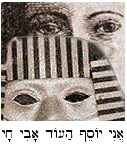
[ The following is related to this week's Torah reading, Parashat Vayigash... ]
12.21.20 (Tevet 6, 5781) According to midrash (i.e., ancient Jewish commentary), just before Joseph revealed his true identity he turned to his brothers and said, "You told me that your brother Joseph died. Are you sure?" "Yes, we are; he's dead," the brothers replied. Joseph then became angry and said, "How can you lie? You sold him as a slave. I bought him myself and can call him right now." Joseph then called out, "Joseph, son of Jacob, come here right now to speak to your brothers!" Terrified, the brothers turned to see if Joseph was coming....
When he overheard his brothers contritely preparing to meet their brother and to beg for his forgiveness, Joseph then looked at them and said in a loud voice: "Who are you looking for? אֲנִי יוֹסֵף הַעוֹד אָבִי חָי - I am Joseph. Is my father still alive?" (Notice that Joseph revealed himself to his brothers using Hebrew speech as the token of his identity.) When he saw his brothers draw back in fear at his shocking disclosure, Joseph reassured them by saying, ge'shu na elai - "Please come near to me; come and see..."
On a peshat level (i.e., literal sense), when Joseph revealed his identity he was asking his brothers if his father Jacob was still physically alive (ani Yosef - ha'od avi chai: "I am Joseph; is my father still alive?"). This is puzzling, since in earlier encounters the brothers attested that Jacob was very much alive... On a sod level (i.e., in a mysterious sense), since Joseph is a picture of Yeshua (Mashiach ben Yosef), the question can be phrased, "I am Yeshua - is My father alive?," that is, do you now understand the righteousness of God the Father in raising me from the dead and promoting me to His right hand? Yeshua therefore evokes the confession of faith from the beloved Jewish people: "I am your brother Yeshua: do you now understand that My Father is alive?"
Note: For more on this fascinating topic, see "The Disguised Egyptian."
The Word Made Flesh...

12.20.20 (Tevet 5, 5781) At Sinai we heard the voice of God (קוֹל אֱלהִים) speaking from the midst of the Fire (Deut. 4:33), an event that foreshadowed the great advent of the King and Lawgiver Himself, when the Eternal Word (דְבַר־יְהוָה) became flesh and dwelt with us (Phil. 2:6-7; John 1:1,14). Any theology that regards God as entirely transcendent (i.e., God is beyond any analogy with the finite) will have a problem with divine immanence (i.e., God is inherent and involved within the finite), since the highness, holiness, and perfection of God will make Him seem distant, outside of us, far away, and unknown... Incarnational theology, on the other hand, manifests the nearness of God to disclose the divine empathy. Indeed, the LORD became Immanuel (עִמָּנוּ אֵל), "God with us," to share our mortal condition, to know our pain, and to experience what it means to be wounded by sin, to be abandoned, alienated, forsaken. It is God's own bittul hayesh (בִּטּוּל הַיֵּשׁ) - his self-nullification for the sake of love and truth. The "Eternal made flesh" bridges the gap between the realm of Ein Sof (אין סוף), the infinitely transcendent One, and the finite world of people lost within their sinful frailty. Of course we believe Adonai Echad (יְהוָה אֶחָד) - that the "LORD is One" - both in the sense of being exalted over all things but also in the sense of being compassionately involved in all things (Rom. 11:36). We therefore celebrate the giving of the Torah both at Sinai and especially at Bethlehem with the birth of Messiah. We celebrate that God is indeed the King and Ruler over all, but we further affirm that God's authority and rule extends to all worlds - including the realm of our finitude and need...
As I've mentioned elsewhere, the climax of Sinai was the revelation of the Sanctuary. The two tablets of the law, summarizing the Ten Commandments, were stored inside the famous Ark of the Covenant (אֲרוֹן בְּרִית־יְהוָה), a sacred "three-in-one" box placed in the innermost chamber of the Tabernacle called the Holy of Holies (קדֶשׁ הַקֳּדָשִׁים). As such, the Ark served as kisei ha-kavod (כִּסֵּא הַכָּבוֹד), the Throne of Glory itself. Upon the cover (or crown) of the Ark (i.e., the kapporet) were fashioned two cherubim (i.e., angel-like figures) that faced one another (Exod. 25:17-18). According to the Talmud (Succah 5b), each cherub had the face of a child - one boy and one girl - and their wings spread heavenward as their eyes gazed upon the cover (Exod. 25:20). It was here that God's Voice would be heard during the Yom Kippur service, when sacrificial blood was sprinkled upon the crown to symbolize the atonement of sin secured through Messiah, the Word that became flesh for us... In the very heart of the Sanctuary, then, we see the Word of God and the sacrificial blood.
The LORD God Almighty was clothed with human skin: our flesh, our bones... The miracle of the incarnation is the Absolute Paradox, as Kierkegaard said, wherein the infinite and the finite meet in mystery of the Divine Presence. Here God "touches a leper," eats with sinners and prostitutes, sheds human tears, and suffers heartache like all other men... The gloriously great God, the very Creator of the cosmos, has "emptied Himself" to come in the form of a lowly servant (δοῦλος) - disguised to the eyes of the proud and hardhearted, but is revealed as High Priest to those who are genuinely broken and in profound need. The LORD God is God over all possible worlds, and that includes both the celestial realms of the heavens but also the world of the fallen, the ashamed, the alienated, and the lost... God's infinite condescension reveals and augments the majesty of His infinite transcendence. There is no world - nor ever shall there be such - where the LORD God Almighty does not reign and have preeminence.
Do not suppose for a moment that the Torah of Moses does not teach "incarnational" theology. Since God created human beings in his image and likeness, the "anthropomorphic language" of Scripture is meaningful. The LORD reveals himself in human terms - using human language, expressing human emotions, and so on, as it says: Moses spoke to God panim el panim - "face to face" (Deut. 34:10). The Torah always has to take on human form - the Word made flesh - for the sake of human beings who live in flesh and blood reality...
The greatest expression of God's word is found in the Presence of Yeshua. This is the Word of God that "tabernacles" with us, full of grace and truth (John 1:14). Yeshua is the "Living Torah," Immanuel (עִמָּנוּ אֵל), "God with us," who enters our world to rescue us from death. Our Scriptures state that "in these last days God has spoken to us by his Son, whom He appointed the Heir of all things, through whom also He created the worlds" (Heb 1:2). Note that the Greek construction for the phrase translated, "by his son" is ἐλάλησεν ἡμῖν ἐν υἱῷ, which literally means "he spoke to us in Son" -- that is, in the language or voice of the Son of God Himself... God speaks the language "of Son" from the midst of the fire revealed at Zion. "Therefore, since we are receiving a kingdom that cannot be shaken, let us be thankful, and so worship God acceptably with reverence and awe (μετὰ αἰδοῦς καὶ εὐλαβείας) - for our God is Esh Okhelah - a Consuming Fire" (Heb. 12:28-29).
Hebrew Lesson:
Isaiah 7:14b Hebrew reading lesson (click):
Addendum: Consider further the metaphorical and anthropomorphic language of the Scriptures: God "sees," God "hears," the "hand of the LORD" saves, etc. Without an implied incarnational theology, there would be no language that we could comprehend about God who is the Infinite One that transcends all things... God gets angry; God feels sorrow; God is jealous; God is a lover, etc. all these metaphors bring the language of heaven into the world of humanity... The Spirit that imparts revelation does so inside a human brain and is translated into human apprehension. Yeshua is the Substance of the shadowy talk of analogical language; he embodies God-life before us.... Yeshua is the Word of God made flesh -- able to touch us, know us, share in our suffering, heal us of our sin-sickness, etc.
The Revelation of Joseph...

12.20.20 (Tevet 5, 5781) In our Torah portion for Christmas week (i.e., Vayigash) we read about Joseph's dramatic revelation of his identity to his long lost brothers. Recall that Benjamin had been falsely accused of stealing the Viceroy's chalice and was arrested and brought before Joseph for immediate judgment. Judah then "drew near" (vayigash) and offered to bear the penalty for his brother, pleading with Joseph to spare his aged father the loss of yet another son. Joseph was so moved by Judah's act of mesirat nefesh (self-sacrifice) that he decided the time had finally come for him to reveal his identity to his brothers. After clearing the room, he began speaking in Hebrew and said, אֲנִי יוֹסֵף הַעוֹד אָבִי חָי / ani Yosef, ha'od avi chai / "I am Joseph; is my father alive?" When the brothers drew back in dismay, Joseph said, "Draw near to me, please" (from the same verb nagash) and explained how God providentially brought him to Egypt to save the family's life....
Hebrew Lesson:
Genesis 44:18a Hebrew reading (Vayigash):
The revelation of Joseph and his reconciliation with his brothers is a prophetic picture of the acharit hayamim (end of days) when the Jewish people will come to understand that Yeshua is indeed the One seated at the right hand of the majesty on high as Israel's Deliverer. At that time Yeshua will speak comforting words to His long lost brothers and restore their place of blessing upon the earth. Indeed, the entire story of Joseph is rich in prophetic insight regarding our Lord and Savior. Vayigash (וַיִּגַּשׁ) means "and he drew near," referring first to Judah's intercession for the sins of his brothers, and then to Joseph's reciprocal desire for the brothers to draw near to him (Gen. 44:18, 45:4). Joseph initiated the reconciliation by saying, גְּשׁוּ־נָא אֵלַי / ge'shu na elai - "Please draw near to me," and indeed there is a play on the verb nagash (נָגַשׁ), "draw near," throughout this story. Yeshua is depicted both in Judah's intercession (as the greater Son of Judah who interceded on behalf of the sins of Israel) and in Joseph's role as the exalted Savior of the Jewish people in time of tribulation. When Joseph disclosed himself and asked, "Is my father alive," we hear Yeshua evoking the confession of faith from the Jewish people: "I am Yeshua: do you now understand that My Father is alive?" Upon His coming revelation, all Israel will confess that indeed God the Father is "alive" and has vindicated the glory of His Son.
Priests of His Light...
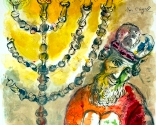
12.18.20 (Tevet 3, 5781) The Chanukah holiday is now over, chaverim, though may its message pervade our souls every day, as we dedicate our lives to serving the Lord and choose to walk in His light... Amen, we are chosen to be a "kingdom of priests," a set-apart people, and a light to the nations (Exod. 19:6; Isa. 42:6; 1 Pet. 2:9). Note the very first responsibility given to the priests was to care for the ner tamid (נר התמיד), the light of the Menorah (Exod. 27:20-21), which represents our consciousness of the Divine Presence (Psalm 18:28; 36:9). The challenge we all face is to remain "in the light as God is in the light" and not to be seduced by the world of fleeting appearances (Isa. 2:5; 1 John 1:7, 2:17). God's eternal light radiates through all things (Isa. 6:3; Psalm 139:11-12), just as the great "yehi ohr" (יְהִי אוֹר) - "Let there be light" - is the first word spoken to creation (Gen. 1:3). To be a priest means being so filled with the truth that you radiate peace; your inner light shines and you glorify your Father in heaven (Matt. 5:16). That is how we draw others to the truth, by receiving the beauty of the LORD (Psalm 27:4).
Of course being a "witness to the light," that is, being a "priest," does not mean you are a "perfect person" who walks about with a blissed-out attitude despite the various trials and tests we all face in this life. No, we all still sin, and we therefore need to confess the truth of our condition to abide in the light (1 John 1:9; James 5:16). Like everything else in Scripture, here we encounter paradox, as Yeshua taught: "Blessed are the impoverished in spirit (πτωχοὶ τῷ πνεύματι), for theirs is the kingdom of heaven; blessed are the ones who mourn (οἱ πενθοῦντες), for they shall be comforted; blessed are the meek (οἱ πραεῖς), for they shall inherit the earth" (Matt. 5:3-5). Yea, "God chose what is foolish in the world to shame the wise; God chose what is weak in the world to shame the strong, God chose what is low and despised in the world, even things that are not, to bring to nothing things that are, so that no human being might boast in the presence of God" (1 Cor. 1:27-29).
The Hebrew word for priest (i.e., kohen: כּהֵן) may come from the word ken (כֵּן) meaning "yes" and the word kivun (כִּווּן) meaning to "direct" or "lead," implying that a priest helps direct a person toward affirming the Reality and Truth of God. The role of a priest is to draw us to God, then, but how is that possible if the mediator cannot genuinely understand our sorrows and struggles? What draws others to God is his love, but how can we come to believe in that love were it not for the priesthood of the leper, the priesthood of the outcast, the priesthood of the reject? Even so Yeshua was afflicted with our infirmities and therefore sympathizes with our brokenness and frailty (see Heb. 4:16).
As a priest of brokenness, you are called to be a wounded healer, and you can testify of God's saving grace and love for you despite your sorrow, anger, weaknesses, and failures... Accepting God's compassion for you - just as you are - allows you to show grace and kindness to others who are also hurting, and therefore you can serve as a priest of God.
Be encouraged, friends... "For the commandment is a lamp and Torah is light, and the reproofs of discipline are the way of life" (Prov. 6:23). Here we may understand the "reproofs of discipline" as the (ongoing) process of consciously turning away from darkness (of fear, anger, etc.) to the behold the divine light. We have to start here, after all... The way of life is teshuvah (repentance, turning to God), which is a painful process to the lower nature, but is necessary to walk in the light. Confession brings light into our hearts (James 5:16; 1 John 1:5-9), and the end of our struggle is healing and life.
Hebrew Lesson:
Proverbs 6:23 Hebrew reading lesson (click):
Keep the flame within your heart burning, friend... A sage once told a person struggling with his faith: "It is written that all creation was brought into being because of people like you. God saw there would be people who would cling to our holy faith, suffering greatly because confusion and doubt would plague them. God perceived that such would overcome these doubts and troubles of heart and remain strong in their belief. It was because of this that God brought forth all creation." Indeed, it was because of this that Yeshua our LORD suffered and died for you... Amen. Therefore never yield to despair, since that leads to further darkness and fear. Press on and keep fighting the "good fight" of faith (1 Tim. 6:12). Remember that you infinitely matter to heaven; your life has great value; you are significant and you are truly loved by our Heavenly Father. There is a "future and a hope" for you; there is "a white stone, and on that stone will be written a new name that no one can understand except the one who receives it" (Rev. 2:17). May "the trial of your faith, being much more precious than of gold that perishes, though it be tested with fire, be found to result in praise and glory and honor at the revelation to come" (1 Pet. 1:7).
"I am sure of this, that he who began a good work in you will bring it to completion (ἐπιτελέω) at the Day of Yeshua the Messiah" (Phil 1:6). The LORD is able to guard you (φυλάξαι) from stumbling and to present you blameless before the presence of His glory with great joy (Jude 1:24). "The LORD upholds all who are falling and raises up all who are bowed down" (Psalm 145:14). "He will sustain you to the end, guiltless in the Day of our Yeshua the Messiah" (1 Cor. 1:8). He who calls you is forever faithful; He will surely do it (1 Thess. 5:24). Yea, "the Lord is faithful (נֶאֱמָן הוּא): He will establish you and guard you against the evil one" (2 Thess. 3:3). The Spirit says, "Fear not, for I AM with you always."
Hebrew Lesson:
Isaiah 41:10a Hebrew reading (click):
Prayer Request: Shalom friends. For the last few months I have been fighting off a cold or virus that attacks my vocal chords -- and I am having difficultly recording Hebrew audio because my voice is very raspy and hoarse. Despite this, I still go ahead and attempt to make the recordings, though I often need to re-record several times, which is exhausting for me... Would you kindly pray that this matter will clear up so that I can continue the Hebrew recordings? Happy Holidays and thank you for your concern and prayers! - John
An Everlasting Radiance...

12.18.20 (Tevet 3, 5781) Though the whole earth is filled with the miracles and glory of the LORD, we must choose to see, to open our hearts, and to become God's partners in calling forth goodness and truth. God is the Source of all Light and truth, and therefore we first turn to receive his radiance within our heart. As Yeshua said, "Let your light so shine before others, that they may see your good works and glorify your heavenly Father" (Matt. 5:16).
כִּי־טוֹב יְהוָה לְעוֹלָם חַסְדּוֹ
וְעַד־דּר וָדר אֱמוּנָתוֹ
kee-tov · Adonai · le·o·lam · chas·do
ve'ad-dor · va'dor · e·moo·na·to

"For the LORD is good; his love endures forever,
and his faithfulness is for all generations."
(Psalm 100:5)

Hebrew Lesson:
Psalm 100:5 Hebrew reading lesson (click):
It's no small thing to affirm that "the LORD is good," since that affirmation implies our trust that that Reality is ultimately friendly, welcoming, and loving, despite the present hour of darkness... As Albert Einstein once said, "I think the most important question facing humanity is, 'Is the universe a friendly place?' This is the first and most basic question all people must answer for themselves." Indeed. Is there hope for a sense of home in the midst of our long exile? Do we affirm that we are accepted by God, despite our present unacceptability? The skeptic enjoys savoring the theological "problem of evil," though to be fair, he also ought reckon with the "problem of the good," since it is a mystery why the universe should produce beauty, love, and hearts that seek timeless universals... The truth that the LORD is good is radical in its implications... Our faith expresses the victory that all things work for our good!
It's been said that God sends each soul into the world with a special message to deliver, a revelation that only he or she can disclose... No one else can deliver your message of praise to this world - only you can do this, though ultimately your message is always done for the glory of God and the benefit of others. "For you are a chosen race, a royal priesthood, a holy nation, a people for his own possession (וְעַם סְגוּלָּה), that you may proclaim the excellencies of him who called you out of darkness into his marvelous light" (1 Pet. 2:9).
 |
Happy Chanukah 5781 friends!
The Source of Light...
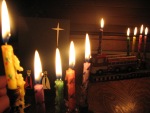
[ Zot Chanukah begins this evening after sundown... Happy Holidays, friends! ]
12.17.20 (Tevet 2, 5781) "God is Light; in Him there is no darkness at all" (1 John 1:5). Yeshua said: "I am come a light into the world, that whoever believes in me should not abide in darkness" (John 12:46). The ultimate message of Chanukah is eschatological and full of hope. This world is passing away and the Kingdom of Heaven will one day be established upon the earth. We live in light of this blessed hope (Titus 2:11-13). The world's rulers are "on notice" from God Almighty: their days are numbered and they will surely face the judgment of the LORD God of Israel (Psalm 2). We must stand against evil by refusing to conform to the world around us (Eph. 6:11-18). Now is the time. "Let your light so shine before others that they may see your good works and give glory to your Father who is in heaven" (Matt. 5:16). Followers of Yeshua are made part of His Dwelling - extensions of His Presence in this dark world - and during this Chanukah season may we remember the call to rededicate our lives to Him! יְהִי אוֹר - May your light shine!
Hebrew Lesson:
Psalm 36:9 Hebrew reading:
Existential Faith and Doubt...
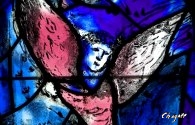
[ Zot Chanukah Same'ach, chaverim! His Light still shines!!! ]
12.17.20 (Tevet 2, 5781) Though it is good to ask questions about what we believe, to seek for understanding, and to study the Scriptures, we must do so using the principle that "faith seeks understanding," rather than the converse principle that "understanding seeks faith," since the latter elevates human reason to be the judge and arbiter of the things of God, a role for which it is both incapable and unsuited (Isa. 55:8-9; Job 9:10; 11:7; Psalm 139:6; Rom. 11:33). God is not a "what" but a "Who," and that affects the means by which we know him (John 4:24). We certainly can know truth about God, though the instrumentality for attaining such knowledge transcends the abilities of unaided human reason (see Deut. 29:29).
Some people talk about "honest doubt" regarding matters of God, and while there may indeed be occasions to confess the limitations of our ability to understand the mysteries of heaven and earth, we must be on guard not to ply a present lack of "semantic closure" as an excuse for despair that hardens our hearts and justifies our sin... The lower nature's machinations are so devious that we must be on guard and "test what manner of spirit" you are (Luke 9:55; 1 John 4:1; James 4:4). In the name of "honest doubt" a soul can invent all manner of difficulties of interpretation, the mind may become jaded and agnostic; the heart cools and steps away from the passion of faith... Doubt introduces hesitancy, compromise, and godless misgivings; it is a leech upon the soul, sapping the strength of conviction, weakening the balm of assurance. Be careful. Honest seeking is one thing, but practiced doubt may be an evasive measure - a diabolical ploy meant to distance yourself from responsibility to God's truth.
Often enough people have a "problem" with faith not because there is insufficient reason to believe -- after all, every soul has intuitive awareness of the reality of God's reality and power (see Rom. 1:19-20; Psalm 19:1-4; Acts 14:17) -- but because secret sin lurking within the heart is cherished as the soul's ultimate concern and most precious value. Such idolatry of heart is the essence of much "doubt," since faith ultimately is an act of will. "The heart has its reasons that reason knows not of" applies both to the realm of God but to the affections of the selfish heart... In that sense doubt serves as a deal made with the devil - an exchange of a "mess of pottage" for the blessing of God!
Charles Spurgeon once wrote: "It seems that doubt is worse than trial. I had sooner suffer any affliction than be left to question the gospel or my own interest in it" (Vol. 29, Sermons). Amen, the gospel cannot be esteemed apart from personal interest in its truth, for otherwise we are merely toying with its message. You must believe that the truth of God - and being properly related to this truth by means of a trusting relationship - is the most inestimably precious and important matter of your very existence... "Find God or die." We cannot escape from the double-mindedness of our way apart from sincerely turning to God and asking Him to show us his glory, his beauty, and the wonder of his great love. A divided house cannot stand. The way of deliverance from yourself - to way to be free of enslaving passions and dark desires that fragment the soul - is by means of the miracle of God: "For the flesh has desires that are opposed to the Spirit, and the Spirit has desires that are opposed to the flesh, for these are in opposition to each other, so that you cannot do what you want' (Gal. 5:17; Rom. 7:15-25), but if you are led by the Spirit, you are free from the law of sin and death and are enabled to live according to a new source of power and life, namely, the law of the Spirit of Life in Messiah Yeshua (Rom. 6:6,14; Gal. 2:20). Living in slavery to sin is to lose yourself - to have no "center," no self that unifies your heart and focuses your reason for being... It is the hell of no longer believing in anything at all, and especially no longer believing yourself.
Soren Kierkegaard once lamented: "The matter is quite simple. The Bible is very easy to understand. But we Christians are a bunch of scheming swindlers. We pretend to be unable to understand it because we know very well that the minute we understand we are obliged to act accordingly." There is a very real danger of "thinking about" truth rather than living it. For instance, you might study the Psalms as literature and attempt to understand the nuances of Hebrew poetry, but that is altogether different than reciting the psalms with inner passion, with simple conviction and the earnest desire to unite our heart's cry with the devotion that gave life to the words... We must read with a heart of faith to unlock the truth that speaks to the heart. If you believe only what you understand, your faith is actually grounded in your own reasoning, not in the Divine Voice of Love...
The way of trust is always a matter of the heart's passion and hope... The Spirit of God speaks gently: "My child, give me your heart, and let your eyes observe my ways" (Prov. 23:26). When we call God "Abba," we are not using a formal name that indicates distance, but rather a term that evokes intimate closeness and reliance. Calling out to God as "Abba" signifies that we genuinely accept that God regards us as his beloved child...
Hebrew Lesson:
Proverbs 23:26 Hebrew Reading (click):
Truth sets us free...

12.17.20 (Tevet 2, 5781) When Yeshua said that the truth would "set us free" (ἐλευθερώσει), he was referring to the acceptance of the Witness of Divine Reality (i.e., the Word, Breath, Spirit, Voice, Message, Meaning, and Love of God) that delivers us from the lies we habitually tell ourselves. If you "persevere in my word" (μείνητε ἐν τῷ λόγῳ τῷ ἐμῷ) he said, "then you are my disciples indeed, and you will know the truth, and the truth will set you free" (ἡ ἀλήθεια ἐλευθερώσει ὑμᾶς, John 8:31-32). In other words, as we identify with his vision and redemptive mission, we will "be free indeed" from the tohu va'vohu (Gen. 1:2) – the "chaos and unreality" – that inescapably besets the way of the lie... We will be delivered from vanity and delusions of this world and its diseased affections; we will be set free from the need to justify ourselves by religion (perfectionism); we will no longer crave other people's approval; we will not be moved by the crowd and its pressures; we will find courage to face our challenges without resorting to escapism; and we will learn how to experience peace even when we encounter frustrations. Despite our daily struggles and tests, we will be released from bondage to anger and resentment as we yield our will in trust that God is working all things together for our ultimate good (Rom. 8:28). Genuine freedom is not an "accidental property" of the heart, depending on "luck" or "fortune," but instead is a decision to believe in the Reality of the salvation of God given in Yeshua our LORD.
Hebrew Reading:
Psalm 119:142 Hebrew Reading (click):
Love not the World...

12.17.20 (Tevet 2, 5781) We are commanded not to love the world (κόσμος), nor the things this world values, since doing so embraces a philosophy of life, or spirituality, that is at war with the Father and contrary to the truth of the Eternal (1 John 2:16; James 4:4). The fallen world values "the flesh" and the "desire of the eyes" that is patterned according to the "arrogance of life"; it is a "beauty pageant" that esteems others based on their accidental qualities instead of their inner and essential qualities....
The world values other people as means to an end rather than as ends in themselves, and therefore is inherently violent and exploitative. The flesh is the realm of the all-too human, the selfish, the natural, the ordinary, and the tit-for-tat, where love and acceptance are extended solely in conditional terms (Matt. 5:46-47). In this connection, let me quote from the late Henri Nouwen and his book "Return of the Prodigal Son":
"At issue here is the question: To whom do I belong? God or to the world?" Many of my daily preoccupations suggest that I belong more to the world than to God. A little criticism makes me angry, and a little rejection makes me depressed. A little praise raises my spirits, and a little success excites me. It takes very little to raise me up or thrust me down....
As long as I keep running about asking: "Do you love me? Do you really love me?" I give all power to the voices of the world and put myself in bondage because the world is filled with "ifs." The world says: "Yes, I love you if you are good-looking, intelligent, and wealthy. I love you if you have a good education, a good job, and good connections. I love you if you produce much, sell much, and buy much." There are endless "ifs" hidden in the world's love. These "ifs" enslave me, since it is impossible to respond adequately to all of them. The world's love is and always will be conditional. As long as I keep looking for my true self in the world of conditional love, I will remain "hooked" to the world - trying, failing, and trying again. It is a world that fosters addictions because what it offers cannot satisfy the deepest craving of my heart."
Hebrew Lesson:
Proverbs 4:23 Hebrew Reading (click):
Note: For more on this vital subject, see the Chanukah article, "Love not the World."
Chanukah vs. Humanism...

[ The following entry very briefly explores some of the reasons why the conflict between the ancient Greeks and the Jewish people was so significant... ]
12.17.20 (Tevet 2, 5781) We read in the New Testament that "the Greeks seek for wisdom" (1 Cor. 1:22), which of course does not refer to the ethical wisdom of the Torah (i.e., chokhmah: חָכְמָה), but rather to the venture of the human intellect to investigate and speculate about the nature of "ultimate reality." Since Greek culture during the time of the Second Temple was without a viable religious outlook (it's earlier pantheon of Olympian gods had been abandoned by that time), various Greek philosophers arose to fill the void by offering an account of the nature of the universe. Some of these philosophers sought abstract essences and archetypal patterns, while others regarded reality as a product of random chance (or fate) that rendered it essentially unknowable. What was common to these speculative approaches, however, was faith in the power of human reason to discover truth apart from older mythological explanations.
Despite the fact that ancient Jewish culture likewise valued truth and wisdom, in general the sages of the Second Temple period regarded Greek humanistic wisdom as chokhmah hachitzonit, "superficial wisdom," since it wasn't deeply grounded in the revelation and conviction of a moral Lawgiver who was the Sovereign Center and purposive cause for everything that existed. For this reason the Greek worldview was deemed spiritually dangerous, since it surreptitiously implied that Torah should be understood in strictly human terms, a product of mere men, rather than as special revelation directly given from the LORD God. At issue, then, was a clash between the role of faith and the role of reason...
It should be noted here that Hellenism was a philosophical outlook of life that offered enlightenment to the ancient world. Indeed, the word "Hellenist" does not refer to the ancient Greeks as much as all those who adopted the Greek cosmopolitan lifestyle, and that of course included many Jews of that period. Nonetheless, the Torah sages regarded such humanistic philosophy as devoid of ultimate value, since it had an inadequate and essentially "heartless" view of the person. The Hellenistic outlook did not regard people as moral agents created in the image and likeness of God Himself, and despite its idealization of the human being, Greek humanism (like humanistic philosophy today) had no metaphysical basis for the worth and dignity of people. Because of this, ancient Greek society, like ancient Egypt, justified slavery, the abuse of women, and ruthless exploitation. Jewish thought, on the other hand, understood people as inherently worthy, "deities in miniature," and therefore they sought to be merciful, chaste, and charitable in their relationships.
The spread of Greek language and culture in the ancient world was a blessing, however, since the translation of the Hebrew Torah into the common Greek (the "Septuagint") in the 3rd century BC prepared the world for the universal message of the gospel, and even today the Septuagint helps us understand the words of the Koine Greek New Testament better. Moreover, the Greek Septuagint provides irrefutable proof that the Hebrew Torah text was well-attested in ancient times, which refutes fallacious claims made by other religions that Jewish people "rewrote" or invented the words of Torah for political purposes. For instance, when proponents of Islam claim that the Koran provides the true Torah and that the Jewish Scriptures were (later) changed to contradict with it (e.g., Ishmael, not Isaac, was offered by Abraham, etc.), the existence of the Septuagint, dating over 1,000 years before the rise of Islam, proves the claim to be wrong (as does the discovery of the Dead Sea Scrolls and the corroboration of the authenticity of the Hebrew texts). Indeed, what is clear is that the Koran's later version of the narratives of the Torah are corrupt, and this is a factual matter that can be clearly established by anyone who cares to investigate the matter honestly...
Hebrew Lesson:
Proverbs 1:7 Hebrew Reading (click):
Honesty and Humility...

12.17.20 (Tevet 2, 5781) An honest person is a humble person, since honesty compels the soul to confess the truth that it is profoundly ignorant, incapable of understanding even the simplest matters of life, and entirely powerless to heal itself... People argue over words, concepts, and abstractions, inflating their opinions above even the Reality they purport to define, but the humble soul acknowledges that he doesn't really know much about anything... And if "all the efforts of the human mind cannot exhaust the essence of a single fly," then how is it that people get puffed up and proud regarding their supposed knowledge of God Himself? Far better to approach God in deep reverence, wonder, love, and childlike trust than to profess a theology based on pride and illusions...
To a visitor who described himself as a seeker after Truth the sage said, "If what you seek is Truth, there is one thing you must have above all else." "I know," said the man, "an overwhelming passion for it." "No," the sage replied, "rather an unremitting readiness to admit you may be wrong."
Thomas Aquinas' most significant work was his Summa theologiae or 'Summary of Theology,' a massive book that attempted to "systematize" all of Christian theology. He worked on it for many years, but when he was nearly finished he underwent a spiritual experience that, as he himself explained, made everything he had written "seem like straw." He thereafter gave up writing about "theology" after he encountered the Reality itself. You may perfect doctrine and exist untruthfully, whereas you might not have perfect doctrine, but exist truthfully. The devil knows how to quote Scripture, and often does so, but is a devil still.
וְארַח צַדִּיקִים כְּאוֹר נגַהּ
הוֹלֵךְ וָאוֹר עַד־נְכוֹן הַיּוֹם
ve·o'·rach · tza·dee·keem · ke·ohr · no'·gah
ho·leikh · va·ohr · ad-ne·khon · hai·yohm

"The path of the righteous is like the light of dawn,
which shines brighter and brighter until full day." (Prov. 4:18)

Hebrew Lesson:
Proverbs 4:18 Hebrew Reading (click):
Of course truth is important, and we ask for God's revelation by the power of the Holy Spirit, but this means knowing from a place of real humility... We must follow the path of peace, even if that requires that we "overlook" some of our doctrinal convictions for the sake of love. I don't mean we should throw away our principles, God forbid, but we rather hold them with an inward passion that is at the same time willing to be overlooked, to suffer, to be misunderstood, and even to be mistreated by others. The key here is not be indulge in self-pity or resentment, which does no good. And above all we ask God for divine wisdom. God is faithful and true; if we ask Him for bread, he won't give us a stone (Luke 11:11).
Hebrew Lesson:
Psalm 51:6 Hebrew Reading (click):
The Beauty of Truth...

12.16.20 (Tevet 1, 5781) It has been said that the Greek mindset regards what is beautiful as what is good, whereas the Hebraic mindset regards what is good as what is beautiful. The difference is one of orientation. Doing our duty before God, in other words, is what is truly beautiful, not merely appreciating the appearance of symmetry, order, and so on. This explains why moral discipline (i.e., musar, מוּסָר) is so prominent in Hebrew wisdom literature. True beauty cannot exist apart from moral truth.
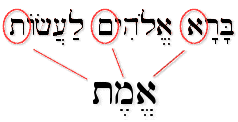 |
The word chinukh (חִנּוּךְ), "education," shares the same root as the word "chanukah" (חֲנֻכָּה, dedication). Unlike the Greek view that regards education as a pragmatic process of improving one's personal power or happiness, the Jewish idea implies dedication/direction to God and His concrete purposes on the earth. Disciples of Yeshua are likewise called talmidim (תַּלְמִידִים) -- a word that comes from lamad (לָמַד) meaning "to learn" (the Hebrew word for teacher is melamad (מְלַמֵּד) from the same root). In the New Testament, the word "disciple" is μαθητής, a learner or a pupil of a διδάσκαλος, or a teacher. True education is therefore foundational to being a disciple of the Messiah...
(Note that the Hebrew word "rabbi" comes from the word rav (רַב), which means "great." The word rabbi (רִבִּי) is formed by adding the 1st person singular ending, i.e., "my great one," or "my reverend." In Yiddish the word is rebbe. Yeshua told us not to call anyone other than Him "rabbi" or "father" since we are all brothers and sisters and He alone is our Master (Matt. 23:8)).
Following Yeshua, then, first of all means submitting to His authority and learning from Him as your Teacher (Matt. 23:8). Only after spending time with Him are you commissioned to go "to all the nations and teach..." (Matt. 28:19). This is accomplished not only by explaining (propositional) doctrine but by kiddush HaShem -- sanctifying the LORD in our lives. We are called to be a "living letter" sent to the world to be "read" (2 Cor. 3:2-3).
During Chanukah we recall the courage and faith of Judah the "Maccabee" and his brothers. The name "Maccabee" is said to be an acronym [מ כּ בּ י] for Moses' affirmation of faith: מִי־כָמכָה בָּאֵלִם יהוה / "Who is like you, LORD, among the mighty?" (Exod. 15:11). Since God alone is the Supreme Ruler of the universe, we do not need to live in fear of man. As King David wrote: יהוה אוֹרִי וְיִשְׁעִי מִמִּי אִירָא / "The LORD is my Light and my Salvation - of whom shall I be afraid?" (Psalm 27:1). Yeshua the Messiah is our true Light (ha'or ha'amiti) and our Salvation (yeshu'ah). He has said, "My peace I give unto you. Let not your heart be troubled; neither let it be afraid. In the world you shall have tribulation: but be of good cheer; I have overcome the world" (John 14:27, 16:33).
Hebrew Lesson:
Psalm 90:17 Hebrew Reading (click):
Note: For more on this topic see: "The Beauty of Truth..."
The Light Still Shines...
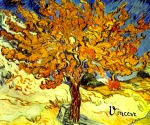
12.16.20 (Tevet 1, 5781) Chanukah is important because it stands in decided opposition to the relentless propaganda of humanism and its ongoing attempt to deny the reality of the Divine Presence in our lives... It makes bold the statement that reality is not reducible to merely natural categories, and it repudiates the "Hellenistic" conceit that all religions are true, and it especially rejects the arrogant notion that the LORD God of Israel is just "one more member" of some globalist pantheon... Chanukah adamantly denies the politically correct dogma that despair is the universal condition of humanity and that darkness will finally extinguish the light. Like the gospel message, Chanukah scandalizes human rationalism and the solipsism that affirms that "man is the measure of all things." "For everyone who has been born of God overcomes the world (νικᾷ τὸν κόσμον); and this is the victory that has overcome the world- our faith" (1 John 5:4).
Think counterculturally. It is written: Do not let your mind be conformed (lit., "squeezed into the mold") of this world, but be transformed (μεταμορφόω, i.e., metamorphosized like a caterpillar is changed into a butterfly) by the renewal of your mind (Rom. 12:2). The Greek word translated "renewal" is ἀνακαίνωσις, from ἀνά, meaning "into the midst," and καινός, meaning "newness." The idea here is that we are inwardly transfigured as we take hold of the truth of the new covenant and make it central to our lives. For this we must "put on the mind of Messiah" and repudiate the world's values and vain philosophy (1 Cor. 2:16). "When the devil is called the god of this world, it is not because he made it, but because people serve him with worldliness." The "god of this world" blinds the eyes of those who do not believe so they cannot see the truth of the gospel of Messiah (2 Cor. 4:4). The philosophy of this world is always based on lies, propaganda, fear, lust, pride, anger, appeals to vanity, and so on. We must be vigilant, friends, and use discernment by testing the world's assumptions against the truth of the Scriptures.
 |
The darkness of this world is forever swept back before the overmastering radiance and power of Yeshua, the King of Glory, the Root and Descendant of David, and the Bright Morning Star (Rev. 22:16). Those who believe in Him are given the "light of life" that overcomes the darkness of this world (John 8:12). Chag Urim Sameach!
Chanukah and Vigilance...

[ The festival of Chanukah runs from Dec. 10th until Dec. 18th at sundown this year... ]
12.15.20 (Kislev 29, 5781) The message of Chanukah is to resist being "assimilated" into this dark world and its benighted culture. As it says, "Do not be conformed to this world, but be transformed (i.e., transfigured by the light) through the renewal (ἀνακαίνωσις) of your mind, that by testing you may discern what is the will of God" (Rom. 12:2). Notice that the Greek word translated "conformed" is a passive verb (συσχηματίζω, derived from σύν, "with," + σχῆμα, "matrix") which means that we must consciously resist being lulled into accepting this world's various ideologies (matrix) that are crafted to ignore Divine the Presence and Truth. In the realm of the spiritual, there is simply no place of neutrality, and if we are not going forward, then it's likely we are going backward... Therefore we are repeatedly commanded to test the spirits and to examine truth claims. We ask God for wisdom and use the discernment that comes from the Holy Spirit.
Hebrew Lesson:
Psalm 143:10a Hebrew Reading (click):
We must exercise diligence to ensure we are not taken captive by the world and its seductive deceptions. Both Passover and Chanukah celebrate spiritual freedom, and indeed the very first word given at Sinai was "I AM the LORD thy God who brought you out (הוֹצֵאתִיךָ)... of the house of slavery" (Exod. 20:2). God's first concern is to be known as your Deliverer, the God of your freedom. Therefore the Spirit of God says, "Thou shalt be free" (2 Cor. 3:17; Gal. 5:1). Set your focus, then, on the Divine Presence and refuse to live in fear of mere men and their political schemes. God has an appointment scheduled with the princes of this world, though we trust he is our Good Shepherd who will keep us from the wrath to come...
The Miketz Prophecies...

[ Our Torah reading for the week of Chanukah is parashat Miketz, i.e., Gen. 41:1-44:17. ]
12.15.20 (Kislev 29, 5781) Our Torah portion this week is called "Miketz" (מקץ), a word that means "at the end," and therefore it points to the prophetic future (i.e., the "end of days" or acharit ha-yamim). Just as Joseph was a "dreamer" who was betrayed by his brothers but was promoted to a place of glory by the hidden hand of God, so Yeshua was betrayed by his people yet was exalted over all the nations (מֶלֶךְ הַגּוֹיִם). And just as Joseph later disguised himself as a "stranger" and an "Egyptian" to his brothers but was finally revealed to be their savior, so will the Jewish people eventually come to see that Yeshua is the true Savior of Israel. Then will come true the hope of Rav Sha'ul (the Apostle Paul) who wrote, "And so all Israel shall be saved: as it is written, 'There shall come out of Zion the Redeemer (גּוֹאֵל) who shall turn away ungodliness from Jacob'" (Rom. 11:26).
Note: For more on this important topic, see "Joseph and his brothers."
Receiving the Light...
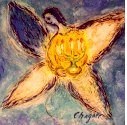
[ The festival of Chanukah runs from Dec. 10th until Dec. 18th at sundown this year... ]
12.14.20 (Kislev 28, 5781) The essence of Chanukah is simply to receive the light, to bear witness of the radiance of God's victory. We celebrate the work of God, his salvation (יְשׁוּעָה), and the triumph of his love. Therefore its message is "wake up, open your eyes, and believe" the good news: darkness and despair will not prevail; your mourning will find comfort, your grief its solace. Your heart's deepest longing shines brightly, even now, if you will but believe... With God's help, we will overcome the darkness of fear...
קוּמִי אוֹרִי כִּי בָא אוֹרֵךְ
וּכְבוֹד יְהוָה עָלַיִךְ זָרָח
koo'·mee · oh'·ree · kee · va · o·reikh
ookh·vod · Adonai · a·la'·yeekh · za'·rach

"Arise, shine, for your light has come,
and the glory of the LORD has risen upon you."
(Isa. 60:1)
Hebrew Study Card

Hebrew Lesson:
Isaiah 60:1 Hebrew Reading (click):
Note: The ultimate fulfillment of Chanuakah is drawing near. The LORD promises to shine His glorious light upon the Jewish people and to reveal His glory, despite the hour of darkness and tribulation that will come upon the earth:
"Arise and shine (קוּמִי אוֹרִי) for your light has come, and the glory of the LORD (כְּבוֹד יהוה) has risen upon you. For behold, darkness shall cover the earth, and thick darkness the peoples; but the LORD will shine upon you (וְעָלַיִךְ יִזְרַח יהוה), and his glory will be seen upon you (וּכְבוֹדוֹ עָלַיִךְ יֵרָאֶה). And nations shall come to your light, and kings to the brightness of your rising. Lift up your eyes all around, and see; they all gather together, they come to you; your sons shall come from afar, and your daughters shall be carried on the hip" (Isa. 60:1-4).
Sometime during the "plague of darkness" that represents the time of the Great Tribulation (i.e., the Day of the LORD and the judgment of the world, or Yom Adonai ha'gadol), Israel will finally turn to the LORD and receive Yeshua as their long-lost Messiah (Zech. 12:10). The veil will finally be taken away, and all Israel will be saved. The Light of Salvation (i.e., ohr ha'yeshuah: אור הישועה) will be revealed and the glory of the LORD (כְּבוֹד יהוה) will radiantly shine (זָרָח) upon the Jewish people. The land of Israel will be like Goshen during the times of the plagues of Egypt as the world powers are all judged and destroyed. Then the survivors of the nations will understand that the LORD is indeed with Israel and will turn to Him in surrender as well. "And the glory of the LORD shall be revealed, and all flesh shall see it together, for the mouth of the LORD has spoken" (Isa. 40:5). Yeshua will return to Zion to establish the Kingdom of God upon the earth (Zech. 2:10-13).
The Revelation of Light...
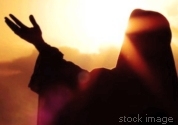
12.14.20 (Kislev 28, 5781) In the Gospel of John it is recorded that Yeshua said, "I am the way, the truth, and the life" (i.e., ᾽Εγώ εἰμι ἡ ὁδὸς καὶ ἡ ἀλήθεια καὶ ἡ ζωή; John 14:6). The Greek word translated "truth" in this verse is aletheia (ἀλήθεια), a compound word formed from an alpha prefix (α-) meaning "not," and lethei (λήθη), meaning "forgetfulness." (In Greek mythology, the "waters of Lethe" induced a state of oblivion or forgetfulness.) Truth is therefore a kind of "remembering" something forgotten, or a recollecting of what is essentially real. Etymologically, the word aletheia suggests that truth is also "unforgettable" (i.e., not lethei), that is, it has its own inherent and irresistible "witness" to reality. In that sense light is a metaphor for truth: "The light shines in the darkness, and the darkness has not overcome it" (John 1:5). People may lie to themselves, but ultimately truth has the final word.
Greek scholars note that the word lethei is derived from the verb lanthano (λανθάνω), which means "to be hidden," so the general idea is that a-letheia (i.e., truth) is non-concealment, non-hiddenness, or (put positively) revelation or disclosure. Thus the word of Yeshua - His message, logos (λόγος), revelation, and presence - is both "unforgettable" and irrepressible. Yeshua is the Unforgettable One that has been manifest as the Word of God (דְּבַר הָאֱלהִים). He is the Light of the world (אוֹר הָעוֹלָם) and the one who gives us the "light of life" (John 8:12). Though God's message can be suppressed by evil and darkened thinking, the truth is regarded as self-evident and full of intuitive validation (see Rom. 1:18-21).
 |
The Hebrew word for truth (i.e., emet: אֱמֶת) comes from a verb (aman) that means to "support" or "make firm." There are a number of derived nouns that connote the sense of reliability or assurance (e.g., pillars of support). The noun emunah (i.e, אֱמוּנָה, "faithfulness" or "trustworthiness") comes from this root, as does the word for the "faithful ones" (אֱמוּנִים) who are "established" in God's way (Psalm 12:1). A play on words regarding truth occurs in the prophet Isaiah: אִם לא תַאֲמִינוּ כִּי לא תֵאָמֵנוּ / im lo ta'aminu, ki lo tei'amenu: "If you are not firm in faith, you will not be firm at all" (Isa. 7:9; see Faith Establishes the Sign). Without trust in the LORD, there is no stability... Truth is something trustworthy, reliable, firm, or sure. In colloquial English, for example, this idea is conveyed when we say, "He's a true friend...", indicating that the loyalty and love of the person is certain. The familiar word "amen" likewise comes from this root. Speaking the truth (dibbur emet) is considered foundational to moral life: "Speak the truth (דַּבְּרוּ אֱמֶת) to one another; render true and perfect justice in your gates" (Zech. 8:16). Yeshua repeatedly said, "Amen, Amen I say to you...." throughout his teaching ministry to stress the reliability and certainty of God's truth (Matt. 5:18, 26, etc.). Indeed, Yeshua is called "the Amen, the faithful and true witness" (Rev. 3:14).
The relationship between the Hebrew and the Greek ideas seems to be that the revelation of God - the aletheia - is reliable and strong. The source for all truth in the universe is found in the Person and character of the God of Israel, blessed be He... The self-disclosure of the LORD is both unforgettable - both in the factual and moral sense - as well as entirely trustworthy. Aletheia implies that truth is something that should never be forgotten, and therefore we are regularly admonished not to "forget" the LORD (Deut. 8:11, Psalm 103:2), to "remember" his covenants, to "keep" his ways, to "guard" His precepts, and so on.
The Scriptures attest that Yeshua is the true Light (אוֹר אֱמֶת) that comes from eternity to give light and revelation for all mankind:
Hebrew Lesson:
John 1:9 Hebrew Reading (click):
הָאוֹר הָאֲמִתִּי
הַמֵּאִיר לְכָל אָדָם
בָּא אֶל הָעוֹלָם
ha·ohr · ha·a·mee·tee
ha·me'·eer' · le·khol · a·dam
ba · el · ha·o·lam

"The true light,
the One who shines to all mankind,
has come into the world."
(John 1:9)
῏Ην τὸ φῶς τὸ ἀληθινόν,
ὃ φωτίζει πάντα ἄνθρωπον
ἐρχόμενον εἰς τὸν κόσμον
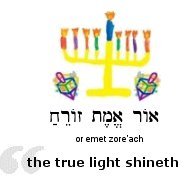
During this Chanukah Season -- and always -- may the LORD God of Israel help us walk in the unforgettable and irrepressible radiance of His glory. May God help us shine with good works that glorify God's Name (Matt. 5:16). "For God, who said, 'Let light shine out of darkness' (יְהִי אוֹר וַיְהִי־אוֹר), has shone in our hearts to give the light of the knowledge of the Glory of God in the face of Yeshua the Messiah" (2 Cor. 4:6).
Hebrew Lesson:
Isaiah 9:2 Hebrew Reading (click):
Questions: Has "the glory of God in the face of Yeshua the Messiah" been revealed to you? Have you seen the great light? In your "land of deep darkness" has his light shined? If so, what does it mean to you to "walk in the light"? How is Yeshua the "light of the world" for you?
Parashat Miketz - מקץ

[ The eight days of Chanukah run from Thurs, Dec. 10th (i.e., Kislev 25) through Friday, Dec. 18th this year. The weekly Torah reading is not suspended for Chanukah (as it is for Passover and Sukkot), though additional Torah readings are read for each of the eight days of the holiday... ]
12.13.20 (Kislev 27, 5781) In our Torah portion for Chanukah week, we will read how Joseph successfully interpreted Pharaoh's dreams and rose to power in Egypt. Because of a famine in the land of Canaan, however, his brothers came to Egypt in search of food. A disguised Joseph then tested his brothers to see whether they were the same people who had callously sold him into slavery, or whether they had undergone teshuvah (repentance).
The eventual revelation of Joseph and his reconciliation with his brothers is a prophetic picture of acharit ha-yamim (the "End of Days") when Israel, in Great Tribulation, will come to accept Yeshua as Israel's true deliverer. Presently, the veil is still over the eyes of the Jewish people and they collectively regard Yeshua as an "Egyptian" of sorts. In this connection, I list some of the ways that Joseph is a "type" or foreshadowing of the coming Yeshua as the Suffering Servant (see "Mashiach ben Yosef").
Note: This year the eight days of Chanukah began on Thursday, Decemeber 10th at sundown (1st candle) and will run through Thursday, Dec. 17th until sundown. The tradition is that on the first night of Chanukah one flame is lit, on the second night two, and so on until the eighth night when eight flames are lit. In this way we remember the 'growth' of the miracle. We also read a small section of Torah for each of the days of Chanukah.
Hebrew Lesson:
Genesis 41:1a Hebrew Reading (click):
A Great Miracle Happened...
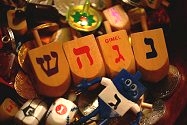
12.11.20 (Kislev 25, 5781) Each side of a dreidel (a four-sided spinning top used for Chanukah) has a different letter of the Hebrew alphabet: Nun (נ), Gimmel (ג), Hey (ה), and Shin (שׁ), which together form the acronym, Nes Gadol Hayah Sham (נֵס גָדוֹל הָיָה שָׁם) – "a great miracle happened there," referring to the victory of the Macabees. In Israel, however, the letter Shin is replaced with the letter Pey (פּ) to form the acronym, Nes Gadol Hayah Poh (נֵס גָדוֹל הָיָה פּה), meaning "a great miracle happened here," referring to Temple and the land of Israel. Because Chanukah represents Yeshua, the true Light of the World, we likewise can say: Nes Gadol Hayah Poh, "a great miracle happened here," referring to the Temple of our hearts, when the Light of the LORD overcame our darkness and gave us everlasting hope and consolation...
Thank God that after Yeshua was crucified and died for our transgressions, the parochet in the Temple (i.e, the veil separating the Holy of Holies from the rest of the Temple) was torn from top to bottom, thereby opening the way of access to the Divine Presence for all who are willing to come in faith... The light of God's love now shines for us all! Shabbat shalom!
His Miraculous Light...
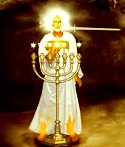
12.11.20 (Kislev 25, 5781) Chanukah isn't "Jewish Christmas," friends, though if Yeshua was born during the time of Sukkot (i.e., Tabernacles), he would have been conceived around the time of Chanukah (the miracle of the Incarnation). At any rate, some people may question whether followers of Messiah should celebrate Chanukah or whether they should reject it because it is associated with Jewish nationalism (and later rabbinical tradition). Well, in response we first must remember that had God not given the victory to the Maccabees, then the Temple would have been razed and Jewish identity would have been lost. Worse yet, Jewish assimilation into Greek culture might have jeopardized the coming of Yeshua himself. Moreover Chanukah is a prophetic holiday: Just as Daniel prophesied about how the Messiah would be "cut off" for the transgression of God's people (Dan. 9:24-27), so he foresaw the ultimate doom of the Antichrist by the hand of the Messiah himself (Dan. 8:23-25). Indeed Yeshua taught that the "little horn" (i.e., Antiochus) prefigured the greater "Abomination that makes Desolation" to come (Matt. 24:15-22, Mark 13:14; cp. Dan. 9:27, 11:31;12:11). Yeshua was of course speaking centuries after Antiochus set up an altar to Zeus and offered a pig in the Temple, and therefore it is clear that He was prophesying of a future "abomination that makes desolation" that would occur later in Jewish history (2 Thess. 2:3-4). Further note that the though the word "Chanukah" is not mentioned in the Tanakh, it is mentioned in the New Testament (John 10:22-ff) where Yeshua testified that he was the promised Messiah.
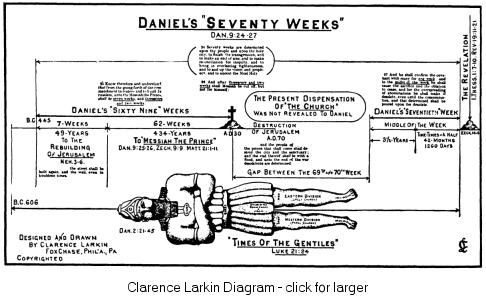 |
Secondly, as I've stated in my Christmas article, it is entirely possible that Yeshua was born during the festival of Sukkot (in the middle of the seventh month), when God chose to "tabernacle" with us (Immanuel), and this implies that Yeshua would have been conceived nine months earlier, during the season of Chanukah. (Put the other way around, if Yeshua were conceived in late Kislev (Nov/Dec), he would have been born 40 weeks later during Sukkot.) Chanukah then would commemorate the miracle of the Incarnation -- when God the Son chose to divest Himself of his regal glory to begin his redemptive advent into this dark world -- an event which undoubtedly is the among the most significant in all of sacred history... In that case the message of Chanukah is that the true Light of the World has come in the Person of Yeshua the Messiah (John 8:12; 9:5).
It is likely there is a Sukkot and Chanukah connection. According to early tradition (preserved in Megillat Antiochus, 2nd Century AD), since the Maccabees were unable to celebrate the holiday of Sukkot at its proper time in the fall, they decided that it should be observed after the Temple was restored, which they did on the 25th of the month of Kislev in the year 164 B.C. Since the festival of Sukkot lasts eight days, this was adopted for the "Winter Sukkot" of Chanukah as well.
Finally let me add that as God the Son, the One who knows neither beginning nor end of days, it is entirely appropriate that that date of his historical birth into this world is shrouded in mystery and obscurity. After all, Yeshua emptied Himself and was a man of "no reputation, a man of sorrows, acquainted with grief, who came as our Atonement with God.
Hebrew Lesson:
Isaiah 9:6a Hebrew Reading (click):
Hebrew Lesson:
Isaiah 9:6b Hebrew Reading (click):
From Darkness to Light...

[ The Festival of Chanukah begins this evening after sundown... ]
12.11.20 (Kislev 25, 5781) It is written in our Scriptures that the very purpose and goal of salvation is for us "to turn from darkness to light and from the power of Satan to God" (Acts 26:18). Hashivenu, Adonai... When the darkness seems to enshroud your way, pray for God's light to be rekindled within your soul. Keep faith that your gloom will soon pass, and that darkness and despair will not be your final end. Your mourning will find its comfort, your tears will be wiped away, and your grief will find its solace... Ask God to transform your heartache into the holy resolve to live and die for the truth of His great love. Amen.
Hebrew Lesson:
Psalm 27:1 Hebrew Reading (click):
The Chanukah Prophecies...

[ The eight day holiday of Chanukah this evening at sundown... ]
12.10.20 (Kislev 24, 5781) Many Bible scholars infer that the prophet Daniel (6th Century BC) foresaw the rise of Alexander the Great centuries beforehand in the vision of a "male goat running from the west" that had a conspicuous horn between its eyes (see Dan. 8:1-12; 21-22). This goat destroyed the power of the kings of Media and Persia (symbolized by two horns on a ram, see Dan. 8:20). Though the "goat" (Alexander) became exceedingly great, eventually its horn was "broken into four [kingdoms]," and out of these four horns arose a "little horn" (i.e., the Seleucid king Antiochus "Epiphanes," c. 175-163 BC) who had authority over "the glorious land" (i.e., Israel). This "little horn" (קֶרֶן מִצְּעִירָה) greatly magnified itself, cast down some of the stars (i.e., righteous souls), took away the sacrifices, and defiled the very Sanctuary in Jerusalem. As we will see, Chanukah ultimately is a prophetic message regarding the End of Days and the victory of our Messiah...
Antiochus is perhaps most notorious for setting up an altar to Zeus over the altar of burnt offering in Temple compound and sacrificing a pig within the Sanctuary of the Temple itself. This sacrilege is otherwise known as the "abomination of desolation" (שִׁקּוּץ מְשׁמֵם) that was decreed to occur 2,300 days into Antiochus' reign (Dan. 8:13-14). Notice, however, that Daniel's prophecy has a "dual aspect" to it, and the description of the rise of the "little horn" (in Dan. 8:9-10) suggested something far more portentous than the reign of a local tyrant. This horn "grew exceedingly great toward the south, toward the east, and toward the glorious land. It grew great, even to the host of heaven. And some of the host and some of the stars it threw down to the ground and trampled on them."
In light of other New Testament scriptures, it is clear that this "exceedingly great horn" refers to future world leader (sometimes called the "Antichrist") who would one day attempt to "assimilate" all of humanity into a "New World Order" (Dan. 9:26-27, 2 Thess. 2:3; Rev. 13:7-9, etc.). It is likely that it was this sense of the "abomination that makes desolation" that Yeshua referred to in Matt. 24:15 and Mark 13:14, and it is this "abomination that makes desolation" that will be overthrown by Yeshua at the end of the Great Tribulation period (Dan. 8:23-25; Matt. 24:30; Rev. 19:11-16; 20:2, etc.).
 |
The intertestamental Book of Maccabees (c. 2nd Century BC) tell us more about this "little horn" and his vicious oppression of the Jewish people. Antiochus installed Hellenistic Jews to the priesthood and demanded the adherence to Hellenistic cultural ideals. He established edicts that prohibited observing the weekly Sabbath and the other biblical festivals. The reading of the Torah was outlawed and all copies of it were ordered to be burned. Temple sacrifices were forbidden; circumcision was outlawed and the penalty for disobedience was death. Women who disobeyed the edict by circumcising their sons were paraded about the city with their babies hanging at their breasts and then thrown down from the top of the city wall (2 Macc. 6:1-11). Many Jews fled and hid in the wilderness and caves and many died kiddush HaShem - as martyrs (see Heb. 11:36-39). Eventually Jewish resistance to this imposed Hellenization meant war. In 164 BC, in Modin, a small town about 17 miles from Jerusalem, Mattityahu (Matthias), a Hasmonean priest, and his five sons took refuge. When Antiochus' soldiers arrived at Modim to erect an altar to Zeus and force the sacrifice of a pig, Mattityahu and his sons rose up and killed the Syrians. They then fled to the Judean wilderness and were joined by other freedom fighters. After some organizing, they soon engaged in successful guerrilla warfare against their Syrian/Greek oppressors. The three-year campaign culminated in the cleansing and rededication of the Temple (for more on this subject, see Chanukah and Spiritual Warfare).
Note: For more on this subject, see "Why Christians should celebate Chanukah."
 |
Happy Chanukah!
Signs of the Time...

12.10.20 (Kislev 24, 5781) Despite the evident and manifold increase in the various prophetic "signs" that herald the return of Messiah, many people today seem apathetic and functionally agnostic regarding the imminence of the "End of Days..." Ironically, this indifference itself indicates the nearness of the hour, since Yeshua noted that just before the time of his return many would fall away because of a chosen ignorance of the truth and pervasive numbness of heart (Matt. 24:12). Therefore he rhetorically asked his followers, "When the Son of Man comes, will he find faith on earth?" (Luke 18:8). We are repeatedly urged to watch, to be vigilant, and to be ready: "Therefore you also must be ready, for the Son of Man is coming at an hour you do not expect" (Matt. 24:44).
יָקוּם אֱלהִים יָפוּצוּ אוֹיְבָיו
וְיָנוּסוּ מְשַׂנְאָיו מִפָּנָיו
ya·koom · e·lo·heem · ya·foo'·tzoo · o·ye·vav
ve·ya·noo'·soo · me·san·av · mee·pa·nav

"God shall arise and scatter his enemies;
those who hate him shall flee from his Presence."
(Psalm 68:1)

Hebrew Lesson:
Psalm 68:1 Hebrew Reading (click):
What does Chanukah mean if not resisting the darkness of the world's ignorance -- the matrix that seeks to coddle the flesh and pretend that there is no need for God's intervention and miracle? This is the victory that has overcome the world-- the light of our faith.
The "Great Reset" draws near...

12.10.20 (Kislev 24, 5781) The hour approaches when a true "great reset" will occur, though not by means of the devices of the princes of this world... Of this evil world it is written, "Why do the people rage and the nations devise schemes that will fail? The kings of the earth set themselves, and the rulers take counsel together, against the LORD and against his Messiah saying, 'Let us tear off the shackles of their yoke, and throw off their ropes from us!' But the enthroned LORD laughs at their insolence and holds them in derision, until the appointed hour when He will speak to them in his wrath and terrify them in his fury" (Psalm 2:1-5). Amen, amen! καὶ αὕτη ἐστὶν ἡ νίκη ἡ νικήσασα τὸν κόσμον, ἡ πίστις ἡμῶν - "This is the victory that overcomes this world, even our faith" (1 John 5:4).
The LORD God Almighty will surely break the pride of the "kings of the earth" with a rod of iron and dash them in pieces like a potter's vessel, and the shattering will be so ruthless that among its fragments not a shard will be found with which to take fire from the hearth, or to dip up water out of the cistern (Psalm 2:9; Isa. 30:14). For from His mouth comes a sharp sword with which to strike down the nations, and He will rule them with a rod of iron. He will tread the winepress of the fury of the wrath of God the Almighty (Rev. 19:15). "As you looked, a stone was cut out by no human hand, and it struck the image on its feet of iron and clay, breaking them in pieces. Then the iron, the clay, the bronze, the silver, and the gold, all together were broken in pieces, and became like the chaff of the summer threshing floors; and the wind carried them away, so that not a trace of them could be found. But the stone that struck the image became a great mountain and filled the whole earth" (Dan. 2:34-35). "And the God of heaven will set up a kingdom that shall never be destroyed ... and it shall stand forever" (Dan. 2:44). One day the edifice of man's godless pride will come crashing down, and there will be no trace left of its rubble... The day and the hour draws near.
The prophet Isaiah foresaw the glory of the Coming Kingdom: "It shall come to pass in the latter days that the mountain of the house of the LORD shall be established as the highest of the mountains, and shall be lifted up above the hills; and all the nations shall flow to it, and many peoples shall come, and say: "Come, let us go up to the mountain of the LORD (הַר־יְהוָה), to the house of the God of Jacob (בֵּית אֱלהֵי יַעֲקב), that he may teach us his ways and that we may walk in his paths." For out of Zion shall go the law, and the word of the LORD from Jerusalem. He shall judge between the nations, and shall decide disputes for many peoples; and they shall beat their swords into plowshares, and their spears into pruning hooks; nation shall not lift up sword against nation, neither shall they learn war anymore" (Isa. 2:2-4; see also Jer. 3:17, Micah 4:1, etc.).
Before this glorious time of the Millennial Kingdom, however, the great "Day of the LORD" will come - a time of worldwide, catastrophic judgment that will befall the kings and princes of this world... "The great day of the LORD is near, it is near and hastening quickly; the sound of the day of the LORD is bitter; the mighty man will cry loud there" (Zeph. 1:14).
Hebrew Lesson:
Zephaniah 1:14 Hebrew Reading (click):
In light of all this, we must be be careful not to cling to this world or be "disheartened when the desolation of the wicked comes" (1 John 2:15; Prov. 3:25). The kingdom of man is at war with the kingdom of God, and whoever wishes to be a "friend" of this evil world makes himself an enemy of God (James 4:4). Regarding this doomed world the LORD speaks thus to His children: "Come out of the midst of her and be ye separate, lest you take part in her sins, lest you share in her plagues." This call to be separate may be more difficult for those who live in the midst of present-day "Babylon" than in other places of the world, because in Babylon it is far too easy to coddle the flesh and to avoid taking a costly stand for the truth... However, the reign of Babylon is spreading like a cancer throughout the world, consolidating power, and soon it will demand complete allegiance of all who dwell upon the earth. During that time of tribulation, all the peoples of the world will be forced to chose whether to accept the "mark of the beast" (i.e., citizenship in world order) or to face persecution, etc. We must not fear man or his devices, for the LORD will protect and strengthen His people.
Hebrew Lesson:
Exodus 14:14 Hebrew Reading (click):
The Battle belongs to the LORD...

12.10.20 (Kislev 24, 5781) With worldly powers conspiring to enslave the world and destroy God's truth and his people, we feel distraught and besieged. Nevertheless, the LORD has repeatedly commanded us to be courageous and to trust in his sovereign power. As godly King Jehoshaphat (יְהוֹשָׁפָט) prayed in the midst of national peril, so we pray: "O LORD, help! We do not know what to do, but our eyes are upon you, for the battle is yours..."
Hebrew Lesson:
Isaiah 41:10a Hebrew reading:
What are you seeking?
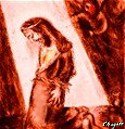
[ The following is related to this week's Torah reading, Parashat Vayeshev... ]
12.09.20 (Kislev 23, 5781) From our Torah this week (i.e., Vayeshev) we read: "And a man found him [Joseph] wandering in the fields. And the man asked him, "What are you seeking?" (Gen. 37:15). The sages say this was not an ordinary man but rather an angel sent to encourage Joseph to keep focused despite his forthcoming trials. Note that the Hebrew text literally says the man asked Joseph "to say (i.e., lemor: לֵאמר), 'What will you seek?'" (i.e., mah-tevakesh: מַה־תְּבַקֵּשׁ). In other words, the man asked Joseph to discover what motivated him by asking himself, "What do I seek? What am I looking for?" Indeed, we are often unconscious of what really matters to us. What does your heart seek first of all? Yeshua said, "Seek first the kingdom of God and his righteousness, and all these things will be added to you" (Matt. 6:33). Because Joseph never lost sight of what mattered, he was able to withstand temptation and tribulation for the sake of God's greater blessing.
So what are you seeking today? (John 1:38) The Spirit of the Living God calls out, "Seek Me and live" (Amos 5:4). If you are feeling empty today, ask God to feed you with His life-giving food. Ask Him for energy, power, and strength... Seek the LORD and His goodness. He is faithful and true and will surely answer the sincere cry of the heart: "You will seek me and find me, when you seek me with all your heart" (Jer. 29:13).
וּבִקַּשְׁתֶּם אתִי וּמְצָאתֶם
כִּי תִדְרְשֻׁנִי בְּכָל־לְבַבְכֶם
oo'vee·kash·tem · oh·tee · oo·me·tza·tem
kee · tee·re·shoo'·nee · be·khol - le·vav·khem

"You will seek me and find me
when you search for me with all your heart"
(Jer. 29:13)

Hebrew Lesson:
Jeremiah 29:13 Hebrew reading:
Note that this verse includes the implication that we will discover that the LORD is the answer to our heart's cry for love, significance, purpose, etc., when we search for Him bekhol levavkhem - with all our hearts (but not the other way around). In other words, if we do not search for God authentically - with the full passion of our hearts - then we will not find Him, since God only reveals Himself in the truth of reality. Some things in life are only known in the passion of faith... things like love, beauty, honor, and so on. As Pascal once said, "The heart has its reasons that reason knows not of..."
The problem with many of us is not that we are so hungry, but rather that we are not hungry enough... We settle for junk food when God spreads out his banqueting table before us; we hanker after cheap thrills instead of experiencing the very love of God... There is a "deeper hunger" for life, a more urgent desire, and I pray we are all touched by such yearning; there is a "blessed need" that expresses our soul's cry for God - a "divine discontent" that leads us to a deeper sense of contentment for the heart (Matt. 5:6).
"Seek first the kingdom of God and his righteousness (בַּקְּשׁוּ רִאשֹׁנָה מַלְכוּת אֱלהִים), and all these things will be added to you" (Matt. 6:33). In the end, if we cannot say we have lived well, then nothing else matters... Seeking God is an ongoing journey, a "how" of life, not a recipe or formula, no matter how venerated. Seeking God is the very aim of life, and in the world to come, I am afraid that most of us will regret that we did not pursue the Lord with all our hearts while we had the opportunity to do so. May God help each of us wake up and put first things first in our lives. Amen.
Breath Prayers...

12.09.20 (Kislev 23, 5781) In times of severe testing people often do not need further teaching, but rather "endurance," or what the New Testament calls hupomone (ὑπομονή), a word that means "remaining [μένω] under [ὑπο]" the Divine Presence while being tested. Suffering people do not need moral platitudes from others, but only the will to believe, the resolution to stay constant, and to ability breathe out simple prayers for help to the LORD: "God have mercy..." "Help me, O God..." "I need Thee, O Lord..." When we receive grace to faithfully suffer, we hear the Spirit whispering back to us: "Be not afraid..." "Live in me..." "Be in the light..." "I am with you always..." "You are loved..."
Hebrew Lesson:
Psalm 6:2 Hebrew reading:
Suffering presents the question of surrender before the Lord and how much you trust God's promises for your life... Would you be afraid or discouraged if the Lord said to you (as he said to Peter): "When you were young, you tied your clothes around you and went wherever you wanted, but when you are old, you will stretch out your hands, and others will tie you up and bring you where you do not want to go" (John 21:18)? We are to take up the cross and "die daily" to everything apart from God's will in our lives. How many of us are up to the task? And yet that's the question being asked of each of us....
Joseph and Messiah...
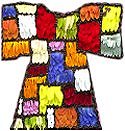
[ The following is related to this week's Torah reading, Parashat Vayeshev... ]
12.08.20 (Kislev 22, 5781) Shalom chaverim. More chapters of the Torah are devoted to the life of Joseph than to the account of creation, the story of Adam and Eve, the flood of Noah, the call of Abram to the promised land, the miraculous birth and (near) sacrifice of Isaac, the transformation of Jacob into Israel, and so on. Perhaps Joseph is given such prominence in Scripture because his life depicted both the Suffering Servant (Yeshua's first advent) and the One who reigns at the right hand of the power on high and delivers Israel (Yeshua's second advent). The life of Joseph provides a "prophetic outline" of Yeshua the Lord, the One who is both Mashiach ben Yosef (מָשִׁיחַ בֶּן־יוֹסֵף), "the Messiah son of Joseph," as well as Mashiach ben David (מָשִׁיחַ בֶּן־דָוִד), "the Messiah the Son of David."
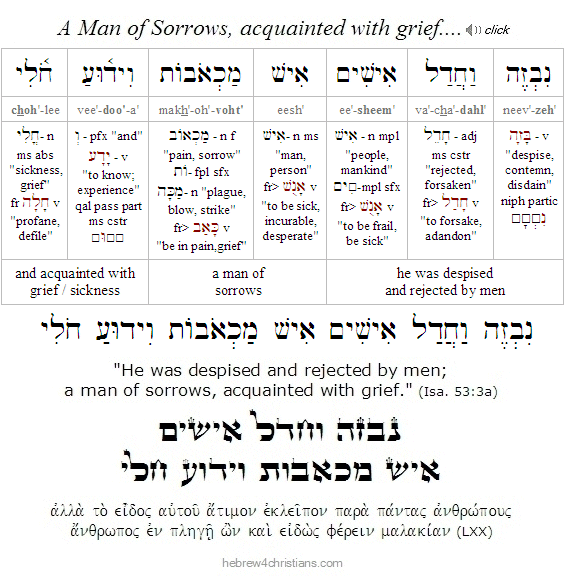 |
For more on this subject, including 60 ways in which Joseph prefigured the advent of Yeshua the Messiah, see "Mashiach ben Yosef."
Chanukah Lights...

[ The eight-day Festival of Chanukah begins at sundown on Thursday Dec. 10th this year... ]
12.08.20 (Kislev 22, 5781) For each of the days of Chanukah we light candles, kindling one for the first day, two for the second, and so on until we reach the climactic eighth day, when all shine together. Some of the sages say the word "Messiah" (i.e., mashiach: מָשִׁיחַ) may be regarded as an acronym for the phrase "we light throughout the eight days of Chanukah," i.e., מַדְלִיקִין שְׁמוֹנָה יְמֵי חֲנוּכָּה: madlikin (מ) shemonah (שׁ) yemei (י) Chanukah (ח). Indeed, the central lamp of the Chanukah menorah is called the shamash (שַׁמָש), the "Servant" that bears the original flame that kindles all the others. The salvations, wonders, and solace that God performed for us "in those days, at this time" therefore prefigure the greater deliverance we have in Yeshua, the Suffering Servant and Light of the World...
Inner Light of God's Love...

12.08.20 (Kislev 22, 5781) "Whoever has my commandments and keeps them, such is the one who loves me. And the one who loves me will be loved by my Father, and I will love him and will manifest myself to him" (John 14:21). Note that the Greek word translated "manifest" means to "shine inside" (i.e., ἐμφανίζω, from ἐν, "in" and φαίνω, "shine"), indicating that the revelation would be inward light of the Presence of Messiah himself (Χριστὸς ἐν ὑμῖν, ἡ ἐλπὶς τῆς δόξης, Col. 1:27). As we receive God's love, as we embrace it as our own, the love of Yeshua our Messiah will become inwardly visible to you. This comes from a place of surrender and acceptance. As Paul Tillich said, "Sometimes in a moment of weakness light breaks into darkness, and it is as though a voice says, 'You are accepted; you are accepted... Do not seek for anything; do not perform anything; do not intend anything. Simply accept the fact that you are accepted.' If that happens to you, then you experience grace, and everything will be transformed." Ultimately Chanukah is about salvation and transformation - beauty for ashes (פְּאֵר תַּחַת אֵפֶר) - and the inner light of God's love for you.
Hebrew Lesson:
Psalm 36:9 Hebrew reading:
The Father of Lights...

[ Chaunukah begins Thursday, Dec. 10th at sundown this year... ]
12.07.20 (Kislev 21, 5781) It is written in our Scriptures: "God is light and in him is no darkness at all" (1 John 1:5). Our Savior is "the Light of the world," the Divine Message that gives light to every soul who is born (John 1:9). As the Source of all light, his power is irrepressible, invincible, and overcomes every shade of darkness. Yeshua is the Logos (Λόγος), the underlying "logic" of all of creation. Unlike the transient radiance of the heavenly bodies, the Divine Light remains constant and supreme over all of creation, without any diminution or variation: God is the "Father of Lights" (James 1:17). And just as we know that the sun still shines even on the most overcast of days, so we understand that the Divine Presence is always there -- always giving, always shining, always loving us... We can trust in the power of our God to help us, since His radiance and truth pervade the darkness to enlighten our way (Psalm 112:4). As Yeshua said of his mission, "I have come into the world as light, so that whoever believes in me may not remain in darkness" (John 12:46). Let us believe and behold the Light! Hashivenu! O LORD God, let your light shine upon us...
אֱלהִים יְחָנֵּנוּ וִיבָרְכֵנוּ
יָאֵר פָּנָיו אִתָּנוּ סֶלָה
e·lo·heem · ye·cho·nei'·noo · vee·va·re·khei'·noo
ya·eir · pa·nav · ee·ta'·noo · se'·lah

"May God be gracious to us and bless us
and make his face to shine upon us, selah."
(Psalm 67:1)

Hebrew Lesson:
Psalm 67:1 Hebrew reading:
True spirituality is inner light that comes from union with Messiah. "God is light, and in him is no darkness at all" (1 John 1:5). We "walk in the light," experiencing inner peace and joy in the Holy Spirit when we heed and obey the Voice of God's love and abide in the secret place of His grace. The people of God are united to one another by the power of God's love. O LORD God, "light up my eyes lest I sleep the sleep of death" (Psalm 13:3). May the light and love of the Lord our God shine within you, friends.
Chanukah and Humanism...
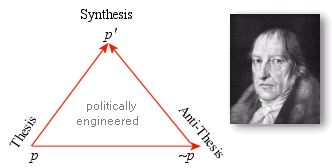
12.07.20 (Kislev 21, 5781) The holiday of Chanukah reminds us that we must remain committed to Torah truth in a godless, and therefore insane, world. After all, since reality is the "handiwork" (i.e., conscious design) of an all-powerful, all-knowing, all-loving, morally perfect, purposive, personal, and spiritual Agency who has been revealed in the Jewish Scriptures, those who deny this reality are living in a state of ongoing delusion. In a sense, the history of humanity - especially as it has been expressed philosophically and politically -- has been nothing less than the conscious design to redefine reality as something that it isn't. "The kings of the earth station themselves, and the dignitaries take counsel together against the LORD and His Messiah" (Psalm 2:1-3). Spiritual warfare is therefore the fight for sanity and truth in a world that prefers madness and self-deception.
In a prophetic sense the story of "Epihpanes" foreshadows the coming time of the "Messiah of Evil" (antichrist) who will one day attempt to "assimilate" all of humanity into a "New World Order" (Dan. 9:27, 2 Thess. 2:3; Rev. 13:7-9, etc.). At first he will appear to be a "world savior" who will broker peace for Israel and the Mideast, but after awhile, like his archetype Epiphanes, he will savagely betray the Jewish people and set up a "desolating sacrilege" in the Holy Place of the Temple (Matt. 24:15). His satanic rise will occur during acharit hayamim - the "End of Days" - otherwise called the period of the Great Tribulation (Matt. 24). The Final Victory of God will be established when Yeshua returns to destroy this Messiah of Evil at His Second Coming. The Holy Temple will then be rebuilt and dedicated by the hand of the true Mashiach of Israel.
The Gemara says that Javan, the descendant of Noah's son Japheth (Gen. 10:2), became the founding father of ancient Greece who inherited Japheth's blessing: "May God give beauty to Japheth (יַפְתְּ אֱלהִים לְיֶפֶת) and let him dwell in the tents of Shem" (Gen. 9:27). This blessing gave him the special ability to found the arts, philosophy, and science, though if these were exercised apart from the influence of Shem, that is, apart from a Torah perspective, such pursuits would ultimately become vain and even dangerous. In other words, even though "all truth is God's truth," human learning must be contextualized in light of the divine revelation. The humanistic mindset deifies knowledge and technique; it understands to believe, instead of believing to understand. For this reason, among others, the spiritual war between Zion and the secular world rages to this hour...
Hebrew Lesson:
Psalm 27:1 Hebrew reading:
Note: For more on this, please see "Chanukah and Spiritual Warfare."
Lonesome Visions...
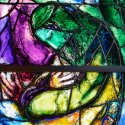
[ The following is related to this week's Torah reading, Parashat Vayeshev... ]
12.07.20 (Kislev 21, 5781) People often resist when they are asked to face reality, and therefore a true prophet is often misunderstood... We see this, for instance, in the case of Joseph, the family's prophet, who, after he related his visions, found the contempt of his brothers and the incredulity of his father (Gen. 37:10-11). This is the heartache of the prophet who is so impassioned about truth that it may lead him to lonely places, set apart from others, yet burdened to share his vision with those who are willing to hear. What good is prophecy, after all, apart from love? Or what good is knowledge, and even faith? (1 Cor. 13:2). The prophet "crosses over" and then is burdened with his vision. Rarely does he gain acceptance, since he asks us to see differently; unsettling our convictions, challenging our certainties. To a culture immersed in its delusions (including religious delusions) the prophet will always be marginalized, since the "world" constantly seeks to escape from reality and therefore cannot tolerate voices of real conviction.
Hebrew Lesson:
Psalm 56:5 Hebrew reading:
"All truth passes through three stages. First, it is ridiculed. Second, it is violently opposed. Third, it is accepted as being self-evident." (Arthur Shopenhauer).
Personal Update: I am battling weariness from some sickness (along with technical problems on the websites), friends. My voice is still very hoarse and I am sleeping a lot. I am still able to share here, though, as God gives me strength.
Parashat Vayeshev - וישב

[ In our Torah for this week we read how Joseph's jealous brothers stripped him of his "coat of many colors" and threw him into a pit -- a providential event that eventually led to the deliverance of the Jewish people by the hand of a "disguised savior." Indeed, the life of Joseph foreshadowed the two advents of Yeshua our Messiah: first as Israel's Suffering Servant and second as the national deliverer of the Jewish people during the time of great tribulation... ]
12.06.20 (Kislev 20, 5781) Last week's Torah (i.e., parashat Vayishlach) recounted how Jacob had wrestled with a mysterious Angel before returning to the Promised Land to be reconciled with his brother Esau. This week's portion (i.e., parashat Vayeshev) begins with Jacob living back in the land promised to Abraham and Isaac with his 12 sons, but the narrative quickly turns to Jacob's favorite son Joseph, who was seventeen years old at the time. The Torah states that Jacob loved Joseph more than all his other sons since he was "the son of his old age," and he was the firstborn son of his beloved wife Rachel. Indeed, Jacob made him an ornamented tunic to indicate his special status in the family.
As the favored son, Joseph's job was to oversee the activities of Jacob's concubines sons (Dan, Naphtali, Gad, and Asher) and to bring "reports" about their activities back to Jacob. However, this role as the overseer and "favored son" was too much for the other brothers, and they became jealous of him and hated him. To make matters worse, Joseph related two dreams to his brothers that foretold that he was destined to rule over them, increasing their envy and hatred of him (the implication of the dreams was that all of Jacob's family would become subservient to him). Jacob rebuked Joseph for arousing his brothers' hatred, but he inwardly took note and waited for the fulfillment of the dreams.
The portion records that one day the brothers went out to pasture their herds, but when they saw Joseph coming to check on them, they conspired to kill him, though later they decided to sell him to some slave traders instead. The brothers then staged Joseph's death by dipping his special tunic into goat's blood and bringing it to their father, who was deceived into thinking that Joseph had been killed by a wild animal.
Meanwhile Jospeh was purchased at a slave trade by Potiphar, a captain of Pharaoh's guard. The LORD was "with Joseph," however, and blessed everything he did. In fact, soon he was promoted to be the head of Potiphar's entire household affairs. Potiphar's wife then began enticing Joseph to have an affair with her, and though he steadfastly refused her advances, she later falsely accused him of attempted rape. Potiphar was understandably outraged (at his wife?) and threw Joseph into the royal prison, but again God showed him favor there and soon was appointed to a position of authority in the prison administration.
The portion ends with two prophetic episodes in Joseph's life that eventually would bring him to the attention of Pharaoh himself. While in prison, Joseph met Pharaoh's wine steward and chief baker, both incarcerated for offending their king (according to Rashi, a fly was found in the goblet prepared by the butler, and a pebble in the baker's confection). Both men had disturbing dreams which Joseph correctly interpreted; in three days, he told them, the wine steward would be released but the baker would be hanged. Joseph then asked the wine steward to advocate for his release with Pharaoh. Joseph's predictions were fulfilled, but the wine steward forgot all about Joseph.
Hebrew Lesson:
Genesis 37:1 Hebrew reading:
Holiday Alert: Chanukah...

This year the eight days of Chanukah begin on Thursday, December 10th at sundown (1st candle) and will run through Friday, Dec. 18th (until sundown). The tradition is that on the first night of Chanukah one flame is lit, on the second night two, and so on until the eighth night when eight flames are lit. In this way we remember the 'growth' of the miracle.
Note: See the Weekly Torah Reading page for additional Chanukah Torah readings.
Raised from the Dust...

[ The following entry is related to this week's Torah reading, parashat Vayishlach... ]
12.04.20 (Kislev 18, 5781) In his heartfelt appeal to God for help, Jacob prayed: "I have been diminished (קָטנְתִּי) from all the kindness and the faithfulness that you have done for your servant" (Gen. 32:10). Jacob was "made small" through the revelation of God's love and truth, and the focus therefore shifted away from himself to God: "He must increase, but I must decrease" (John 3:30). Jacob's subsequent wrestling with the Angel pictured birth pangs, the throes of his spiritual rebirth. Rashi notes that the word translated "wrestled" (i.e., va'ye'avak: וַיֵּאָבֵק, Gen. 32:24) is related to the idea of "raising the dust" (i.e., avak: אָבָק), which suggests resurrection from the dust. The struggle – the "death match" – was to bury the old Jacob and to raise him up as "Israel," a prince of God the King.
Hebrew Lesson:
Genesis 32:10a Hebrew reading:
Yeshua told us we must "forget ourselves" in order to discover what really matters: "If anyone would come after me, let him deny himself and take up his cross and follow me. For whoever would save his life will lose it, but whoever loses his life for my sake will find it" (Matt. 16:24-25). Note that the phrase translated "deny himself" comes from a Greek verb (ἀπαρνέομαι) that means "to affirm that you have no acquaintance or connection with someone," and is the same verb used when Peter denied the Messiah (from α-, "not," + ῥέω, "to speak"). To deny yourself, then, means to be willing to disregard your own personal interests in a given moment -- to "betray" the selfish impulse that seeks to rule the ego in your daily life. It is a "putting off" of the old nature and a "putting on" of the new (Eph. 4:22-24). Put positively, denying yourself means "forgetting yourself" because you are overwhelmed with God's great love for your soul, and therefore you no longer "know yourself" according to the flesh but according to the Spirit of God (2 Cor. 5:16-17).
The Sigh of Faith...

12.04.20 (Kislev 18, 5781) "We groan inwardly as we eagerly await our redemption..." (Rom. 8:23). We sigh deeply because we are suspended between two worlds, living in the ambiguity of an already-not-yet expectation, enduring ourselves as imperfect vessels longing for perfection, trapped between what is and what will be, seeing the unseen, yearning for healing, believing that we shall never die, even as we die (John 11:26). We are restless for our eternal home and long for God's presence as we walk through shadowy vales, facing various temptations, whispering our prayers in the dark. And though we must learn endurance and trust in God's sovereign purposes, our faith nevertheless compels us to cry out, "How long, O Lord?" and "Come, Lord Yeshua" (Rev. 22:20). Our ongoing challenge is to keep a positive attitude despite the struggles we face, and therefore we inwardly pray: "Renew within me ruach nachon (רוּחַ נָכוֹן) - "a spirit that says Yes" (Psalm 51:10). Surrender means accepting God's will for our lives -- saying "yes" to the promise of love, even if we presently feel empty inside and wonder how long we can hang in there... Saying "yes" implies saying "no" to other things - no to fear, anger and doubt, for example. Tragically there are people who have given up hope for bitterness and despair. Asking the Lord to give us a spirit of "yes" is really a prayer for focus, direction, and the willingness to keep pressing on to our heavenly destiny, especially when the way seems dark and hope seems distant.
Hebrew Lesson:
Psalm 51:10 Hebrew reading:
Though life is a struggle, we do not lose heart or faint, since even though the outer self is wasting away, our inner self is being renewed (i.e., ἀνακαινόω, "raised up") day by day. "For this light momentary affliction is preparing for us an eternal weight of glory beyond all comparison, as we look not to the things that are seen but to the things that are unseen. For the things that are seen are transient, but the things that are unseen are eternal. For we know that if the tent that is our earthly home is destroyed, we have a building from God, a house not made with hands, eternal in the heavens. For in this tent we groan, longing to put on our heavenly dwelling, that is, substance and reality..." (2 Cor. 4:16-5:3). Meanwhile we must endure ourselves, deal with our resistance to mortification, and ask God for the great blessing of keeping us from evil so that we are not consumed by grief....
Hebrew Lesson:
1 Chron. 4:10b Hebrew reading (prayer of Jabez):
Courage for this hour...

12.03.20 (Kislev 17, 5781) Our Heavenly Father sees in secret... "The deepest thing in our nature is this region of heart in which we dwell alone with our willingnesses and our unwillingnesses, our faiths and our fears" (William James). It is there, in the secret place of the heart, that the sound of the "knock" is either heard or disregarded (Rev 3:20). May the Lord give us the willingness to do His will and the courage to believe in His love. And may God deliver us from doubt and from every other fear. May we all be strong in faith, not staggering over the promises, but giving glory to God for the miracle of Yeshua our LORD. May we all be rooted and grounded in love so that we are empowered to apprehend the very "breadth and length and height and depth" of the love of God given to us in Messiah, so that we shall all be filled with all the fullness of God (Eph. 3:14-19). Amen.
Hebrew Lesson:
Psalm 39:12 Hebrew reading (click):
A Blessed Reverence...
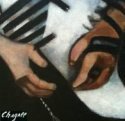
12.03.20 (Kislev 17, 5781) The sages say the verse, "Blessed is the person who fears always" (Prov. 28:14), means that whenever you want to do something, you should first seriously consider the consequences... If you do not think clearly, you will not fear, and such carelessness invariably leads to sin. The sacred is bound up with care; it sets boundaries between the profane and the holy. The "fear of the LORD" is expressed as vigilance against the lusts of the lower nature (yetzer ha'ra)... We "tremble" before God when we are awake to His holiness and wonder (Phil. 2:12). The Temple was destroyed because of our forefathers did not think about their actions; they first exiled themselves from the Divine Presence and then they "caught up with" the pain of their exile for themselves.
אשׁרי אדם מפחד תמיד
ומקשׁה לבו יפול ברעה
ash·rei · a·dam · me·fa·cheid · ta·meed
oo·mak·sheh · lee·bo · yee·pol · be·ra·ah

"Blessed is the one who fears the LORD always,
but whoever hardens his heart will fall into calamity."
(Prov. 28:14)

Hebrew Lesson:
Seeking God in Exile...
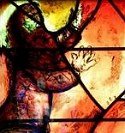
12.03.20 (Kislev 17, 5781) Teshuvah ("repentance") is often described as "turning" back to God, though practically speaking it is an ongoing turning, that is, a turning to God both in moments of ambiguity, pain, and distress, as well as in moments of respite and relative happiness... It is in the midst of the ego's clamor, before the parade of worldly desire or pressure, in the crucible of "everydayness" that we must "come to ourselves" and find true wonder. In that sense, teshuvah is a sort of focus, a direction, a seeking, and a center of life, the place of constant repair for the inner breach we constantly feel. It's a long road home to finally understand you belong at your Father's table...
The question may be asked, however, whether you really want God - the Living God - to be intimately present in your life. "Repentance means unlearning all the self-conceit and self-will that we have been training ourselves into... It means killing part of yourself, undergoing a kind of death" (C.S. Lewis). Indeed, "nothing is more certain: coming close to God brings certain catastrophe [to the ego]. Everyone whose life does not bring relative catastrophe has never even once turned as a single individual to God; it is just as impossible as it is to touch the conductors of a generator without getting a shock" (Soren Kierkegaard). As the Scripture says, "It is a fearful thing to fall into the hands of the Living God" (Heb. 10:31).
It is written in the Mishnah (Avot:15b), "repent one day before you die," but who knows the day of one's death in advance? Therefore "seek the LORD while he may be found; call upon him when he is near" (Isa. 55:6). "In eternity you will not be asked how large a fortune you are leaving behind - the survivors ask about that. Nor will you be asked about how many battles you won, about how sagacious you were, how powerful your influence - that, after all, becomes your reputation for posterity. No, eternity will not ask about what worldly goods remain behind you, but about what riches you have gathered in heaven. It will ask you about how often you have conquered your own thought, about what control you have exercised over yourself or whether you have been a slave, about how often you have mastered yourself in self-denial or whether you have never done so" (Kierkegaard).
Hebrew Lesson:
Isaiah 55:6 Hebrew reading (click):
We may sometimes feel far from God's Presence, lost in a place of exile, yet faith pushes through pain and doubt to find the LORD still near to us; faith hears the Spirit calling out in love: "Seek the LORD while he may be found, call out to him while he is near; let the wicked forsake his way, and the perverse man his thoughts; let him return to the LORD, and He will have mercy on him, and to our God, for he will abundantly forgive" (Isa. 55:6-7).
Hebrew Lesson:
Isaiah 55:7 Hebrew reading (click):
Take a moment to reflect upon these precious words from Scripture. The Lord is extending to you an personal invitation to seek Him and know his heart. Regardless of the troubles of your past, regardless of the mess you have made of your life, God's promise is offered to you: "Let the wicked man (i.e., rasha: רָשָׁע) forsake his way, and the perverted man (i.e., ish aven: אִישׁ אָוֶן) his thoughts; and let him return (i.e., shuv: שׁוּב) to the LORD, that He may have mercy (i.e., rachamim: רַחֲמִים) on him, and to our God, for he will abundantly forgive." God calls out for you to know and receive His compassion, His love, and His forgiveness...
The invitation of divine grace is offensive to various forms of worldly religion based on personal merit and the supposed ability of human beings to flatter blessings from Heaven... Nearly all "karma-based" religions of the world are scandalized and offended by God's unconditional love for the unworthy and helpless sinner. For them, God's love is conditional, based as it is on the observance of certain religious rituals, adhering to certain rules, and playing the approved "language game" (creeds, confessions, etc.). Legalism always attempts to find the "key" to open the door into the Presence of God through various forms of self effort ("don't touch this," "don't eat that," etc. Col. 2:20-23). It's underlying hope is that if I do such and such (or refrain from such and so), I will be accepted. It is therefore a mode of relating to God based on His conditional acceptance. But faith in God's love is the key that opens the door to freedom. Faith is the miracle that makes blind eyes see (John 9:38-39). When we truly "live in the Presence of the LORD" by faith, we are set free from the trap of legalism. We receive the love of God; we accept that we are accepted, and then we walk in God's zealous care for our souls.
"For my thoughts are not your thoughts, neither are your ways my ways, declares the LORD. For as the heavens are higher than the earth, so are my ways higher than your ways and my thoughts than your thoughts. For as the rain and the snow come down from heaven and do not return there but water the earth, making it bring forth and sprout, giving seed to the sower and bread to the eater, so shall my word be that goes out from my mouth; it shall not return to me empty, but it shall accomplish that which I purpose, and shall succeed in the thing for which I sent it. For you shall go out in joy and be led forth in peace; the mountains and the hills before you shall break forth into singing, all the trees of the field shall clap their hands" (Isa. 55:8-12).
The religious leaders of Yeshua's day were offended because he "welcomed sinners" and enjoyed eating meals with them (Luke 15:2). From the perspective of the "holier-than-thou," befriending a sinner was downright scandalous. Such is the hidden sickness lurking within man's theological caste systems, since they often appeal more for their own need to be regarded as "clean" than for the need of others to be touched and shown genuine love...
Live by the Spirit...

12.02.20 (Kislev 16, 5781) "This I say then, live by the Spirit, and you will not be enslaved to the compulsions of the lower nature. For the compulsions of the lower nature are against the Spirit, but the freedom of the Spirit is against the lower nature. These principles are mutually exclusive, creating self-conflict and instability, and keeping you from living a life of real freedom and joy. If you live by the Spirit, however, you will be set free from the chaos of the lower nature and its inner conflict" (Gal. 5:16-19). We escape temptation by choosing to elevate our thinking, by directing our focus toward God in prayer and supplication, and regarding ourselves as spiritual beings that bear eternal significance. This is the way of spirituality (רוּחָנִיוּת), for where the Spirit of the LORD is present, there is liberty (2 Cor. 3:17). When we feel the pull of the yetzer hara (lower nature), we should pray that God would unify our hearts with divine truth, as it is written: רִגְזוּ וְאַל־תֶּחֱטָאוּ - "tremble and you will not sin" (Psalm 4:4), which means that as our eyes open to the awe of God, we will be humbled before the Sacred Presence, and the enticement of the self will flee from us (James 4:7). Resist the temptation to envy or self-pity; rejoice in the godly struggle against the devices of the lower nature: a pure heart sees the truth of God (Psalm 24:4; Matt. 5:8).
Hebrew Lesson:
Psalm 86:11 Hebrew reading (with comments):
The opposite of the fear of the LORD is apathetic double-mindedness - a "two-souled" condition (δίψυχος) where inner vision is doubled and focus is lost. Remedy is found in a purity of heart that wills one thing: "If your eye be single (i.e., haplous: ἁπλοῦς), your whole being will be filled with light" (Matt. 6:22). We must beseech God as King David did: "Teach me your way, O LORD, that I may walk in your truth; unify my heart to fear your name" (Psalm 86:11). David understood that walking in the truth required "uniting his heart," or "repairing the breach" within his inner affections so that he could confidently trust in God's Presence... He needed healing from the inner conflict that split him off from reality. In effect, David prayed: "After You have healed my ambivalent heart, I will thank You with all my heart and I will glorify Your Name forever. My healing comes from Your great love (chesed) toward me, and through your love I am delivered free from the depths of hell" (Psalm 86:12-13).
Every moment of life is an opportunity to ask the question: "How may I see the sacred here?" How may I revere and esteem the gift of life? How may I perceive the awe of God? Seize the moment and walk in God's way, today, now, and in this hour. Open your heart; renew your mind; turn to the light; find the sacred in your midst!
Personal Note: I have pretty much lost my voice chaverim, which is frustrating since I like to provide audio readings with the Hebrew verses I share here. Please pray for a speedy healing for me. Thank you, and shalom and blessings to you all.... - John
The Ladder of Truth... (סולם האמת)
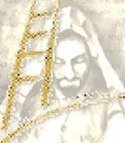
12.02.20 (Kislev 16, 5781) The Hebrew idea of "truth" (i.e., emet: אֱמֶת) is richer than factual description or "correspondence" between language and reality, since it contains moral implications and possibilities: what is true is also right, good, reliable (honest), beautiful, and sacred. The Hebrew word comes from a verb (aman) that means to "confirm" or establish, and the noun form (i.e, emunah: אֱמוּנָה, "faithfulness" or "trustworthiness") expresses the will to live by what is ratified, the "amen" of decision. The Hebrew concept is therefore existential: truth that is not lived is not really truth. Speaking the truth (dibbur emet) and abhorring dishonesty are considered foundational to moral life, as it says: "Speak the truth (דַּבְּרוּ אֱמֶת) to one another; render true and perfect justice in your gates" (Zech. 8:16). Yeshua said, "Amen, amen I say to you...." throughout his ministry to stress the reliability and certainty of God's truth (Matt. 5:18, 26, etc.). Indeed, Yeshua is called "the Amen, the faithful and true witness" (Rev. 3:14). In that sense truth is not a "what" of correspondence but rather a "who," since reality turns on the magnetism of the divine presence (Col. 1:16).
The ancient Greek word translated "truth" is aletheia (ἀλήθεια), a compound formed from an alpha prefix (α-) meaning "not," and lethei (λήθη), meaning "forgetfulness." Greek scholars say the word lethei itself derives from the verb lanthano (λανθάνω), which means "to be hidden," so the general idea is that a-letheia (i.e., truth) is non-concealment, non-hiddenness, or (put positively) revelation or disclosure. Thus the word of Yeshua - His message, logos (λόγος), revelation, and presence - is both "unforgettable" and "irrepressible." Yeshua is the Unforgettable One that is manifest as the express Word of God (דְּבַר הָאֱלהִים). He is the Light of the world (אוֹר הָעוֹלָם) who imparts the "light of life" (John 8:12). Though God's message can be suppressed by evil and darkened thinking, the truth is regarded as self-evident and full of intuitive validation (see Rom. 1:18-21).
Note that the LXX (i.e., the ancient Greek translation of the Torah and OT otherwise known as the Septuagint) dates from the time of the philosopher Plato, though of course the Hebrew text dates back to the time of Moses (13th century BC) and even earlier. About 300 BC, "Theophrastus," a student of Aristotle, wrote of the Jews that 'being philosophers by race, they converse with each other about the Divine." Abraham, who dates from about 2,000 BC, was the first avowed monotheist who openly repudiated the polytheism and idolatry of ancient Ugaritic culture (Abraham long predates the rise of Hinduism and the animistic hymns of the Vedas and their priestly commentary found in the Upanishads by a thousand years, just as ancient Judaism predates "Islam" by thousands of years). Similarly, both David and his son Solomon (10th century BC) wrote "existential" works of philosophy, predating the modern world by nearly 3,000 years...
הַדְרִיכֵנִי בַאֲמִתֶּךָ וְלַמְּדֵנִי
כִּי־אַתָּה אֱלהֵי יִשְׁעִי
אוֹתְךָ קִוִּיתִי כָּל־הַיּוֹם
ha·dree·khei'·nee · va·a·mee·te'·kha · ve·la·me·dei'·nee
kee-a·tah · e·lo·hei · yeesh·ee
oh·te·kha · kee·vee'·tee · kol-hai·yom

"Lead me in your truth and teach me, for you are the God of my salvation;
for you I hope all the day long" (Psalm 25:5)
Hebrew Study Card

Hebrew Lesson:
Psalm 25:5a Hebrew reading (click):
Remaining Steady...

12.01.20 (Kislev 15, 5781) The essential thing is to remain focused on what is ultimately real, true, and abiding. We do this by praying "without ceasing," which means intentionally focusing our thoughts and desires in light of God's Presence. King David said that he always "set" the LORD before him and therefore he was made strong in times of testing (Psalm 16:8). To know the truth means choosing before the audience of God's reality, before the holy witnesses of heaven and the sacredness that inheres in all things, as it is written: "Sanctify yourselves and be holy; for I am holy" (Lev. 11:44; 1 Pet.1:16). We know this truth as we live it - as we esteem God's greatness by regarding the sacred in our decisions. Most especially we must learn the truth of God's comfort in Yeshua, for he promises never to leave nor forsake us (Isa. 40:10). Do not lose sight of your blessed end; "remember the future" that awaits you... it's just up ahead!
Hebrew Lesson:
Psalm 63:8 Hebrew reading (click):
Through the Wound...

12.01.20 (Kislev 15, 5781) "Find God or die" is a slogan for those who are desperate for deliverance. Many of us have felt abandoned at some time, perhaps because of a tragic event that happened when we were vulnerable or unable to defend ourselves. The painful message implied in any kind of abandonment is, "You are not important; you are not of value." Because of this, we may endlessly search for approval from others, even supposing that God's very love is conditional... We may be tempted to engage in "magical thinking" that God can be bribed with ritual acts or flattery.
Part of the healing process is to discover that God comes "through the wound." Despite the pain of our past, we come to trust that all of our life is redeemed -- not only that which we can accept, but also that which we can do nothing but agonize and protest. God's grace goes there, too. Yeshua said, "I will not leave you comfortless: I will come to you... Because I live, you shall live also" (John 14:18-19). Amen, the promise of God says: "You shall not die, but live, and declare the works of the Lord" (Psalm 118:17). God will wipe away your tears.
Hebrew Lesson:
Psalm 118:17 Hebrew reading (click):
Telling God your name...
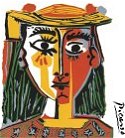
[ The following entry is related to this week's Torah reading, parashat Vayishlach... ]
12.01.20 (Kislev 15, 5781) Some people make it the business of theology to know God's Name, but God begins by first asking for our name instead. Recall that Jacob had disguised who he really was in the hope of obtaining the blessing (Gen. 27), though his duplicity forced him into an exile that lasted until he was finally willing to be honest with himself. And like Jacob, each of us must answer God's question: "What is your name?" (Gen. 32:27). When we "wrestle through" this question to face who we really are, we encounter God and find our blessing, that is, our true identity. Each of us has to go through the process of being renamed from "manipulator" (i.e., Yaakov) to "one in whom God rules" (i.e., Israel). But note the order: it is only when we "tell God our name," that is, own who we really are, that He meets with us "face to face" (Gen. 32:30). You will not be able to say, "I will not let you go unless you bless me," until you are willing tell God your name (Gen. 32:26-27).
Let me add that while "telling God your name" can be painful and even frightening, it is not the last word about who you really are. We are faced with an inner dualism as we struggle to take account of our lives. On the one hand, we need to confess the truth of our sinfulness, brokenness, and so on, while on the other we must endure ourselves and find faith that God's blessing nevertheless belongs to us, despite the mess we've made of our lives.... We have to be willing to accept God's new name for us and to believe that God will miraculously transform our inner nature for good. We are renamed from Yaakov to Israel, though we still know ourselves as both. Jacob was renamed "Israel" but afterward he walked with a limp, seeing both the new and the old natures within him. Jacob still struggled, though his struggle was now focused on walking as God's beloved child in this world: the limp was given to help him lean on the Lord for support.
Part of spiritual growth involves learning to "endure yourself." Many are able, it seems, to receive the hope that they are forgiven for their past sins, but they are subsequently scandalized by encountering their own inner struggles, and they eventually despair over their ongoing weakness... Tragically, some are even tempted to regard the warfare within the heart as a sign of being devoid of all saving grace! We must remember, however, that there is a real struggle between the desires of the flesh and the desires of the Spirit (Gal. 5:17). We must never move away from simple trust in the message of God's unconditional love demonstrated at the cross; we must never seek to legitimize our place in God's heart. When we walk by the Spirit, we are no longer under the law (Gal. 5:18), which is to say, we no longer need to justify ourselves but instead trust in God's power to transform us. Just as we are saved by the love of God, so are we changed, so do we grow.
|




